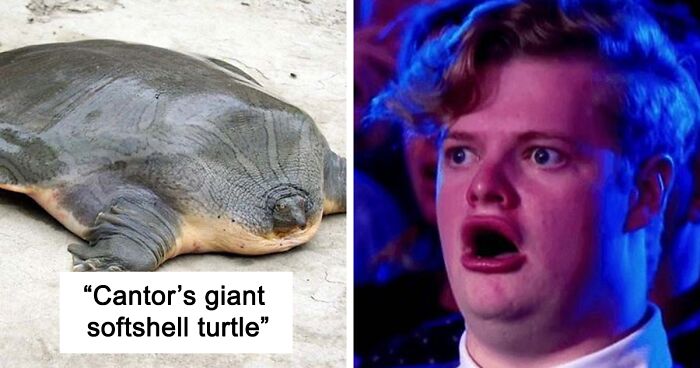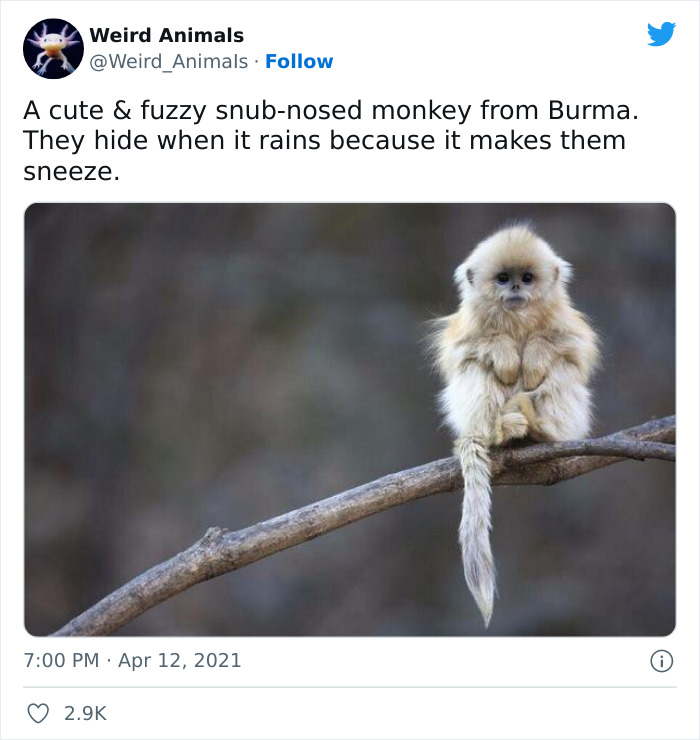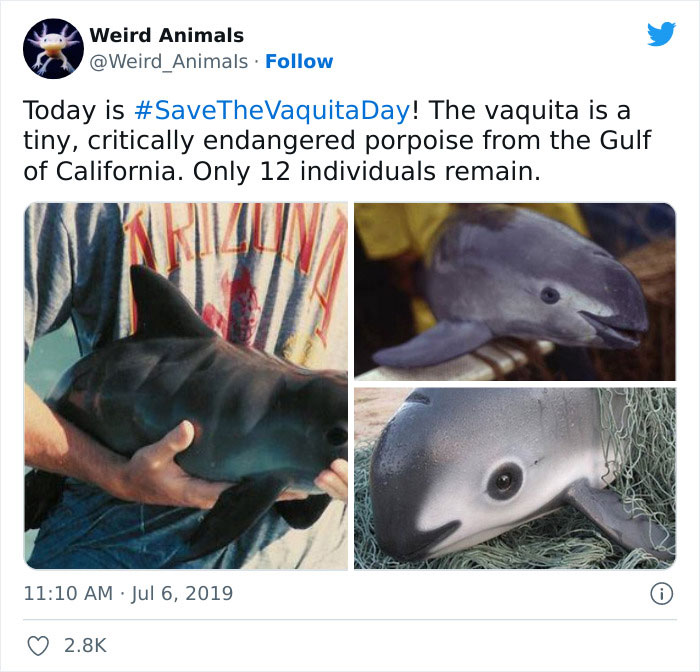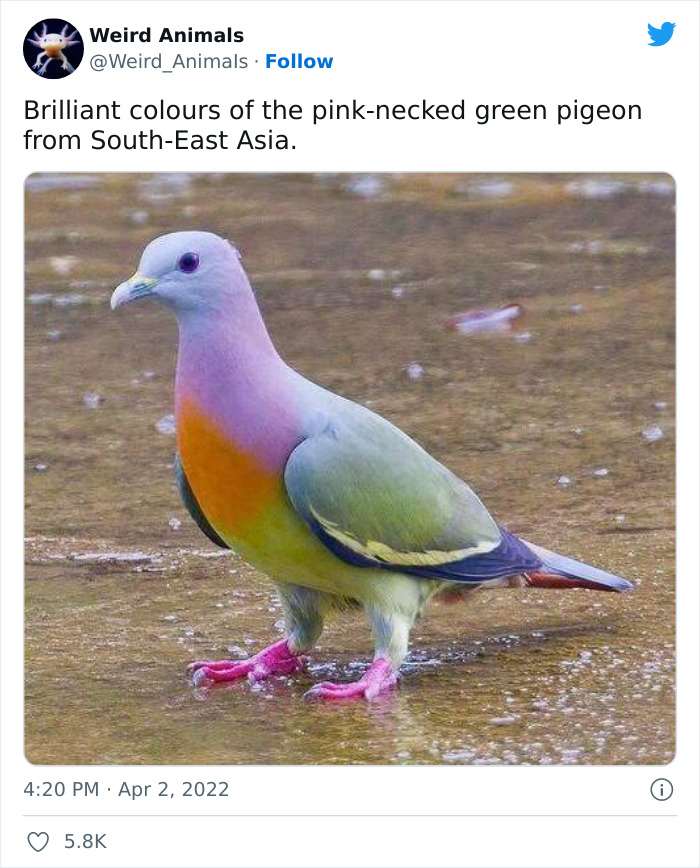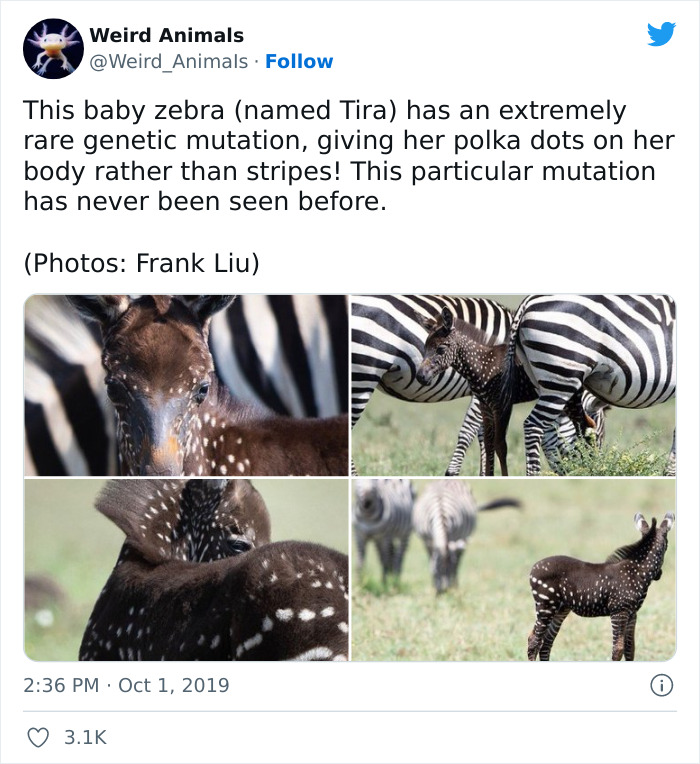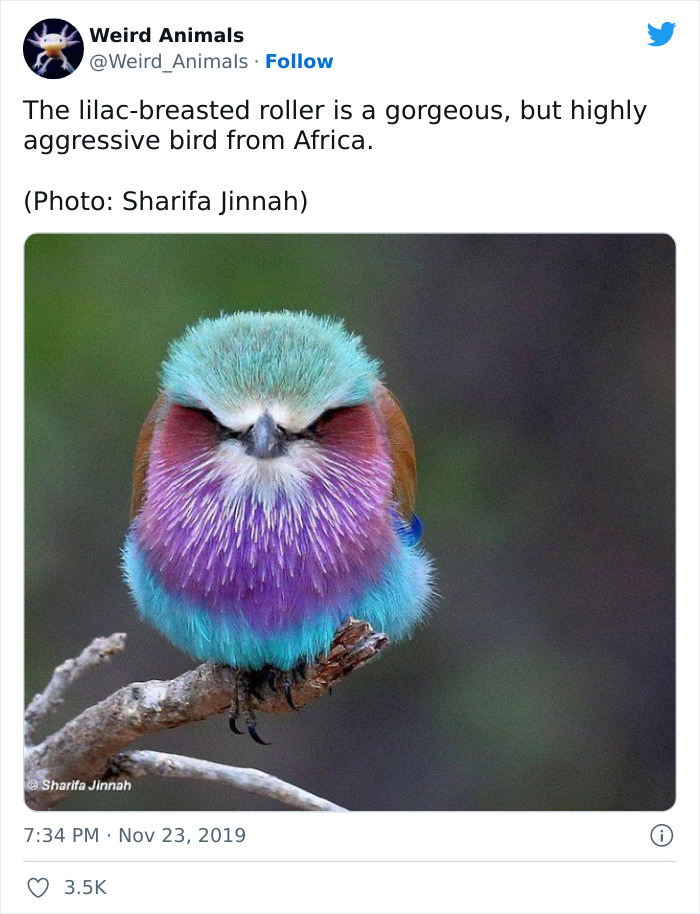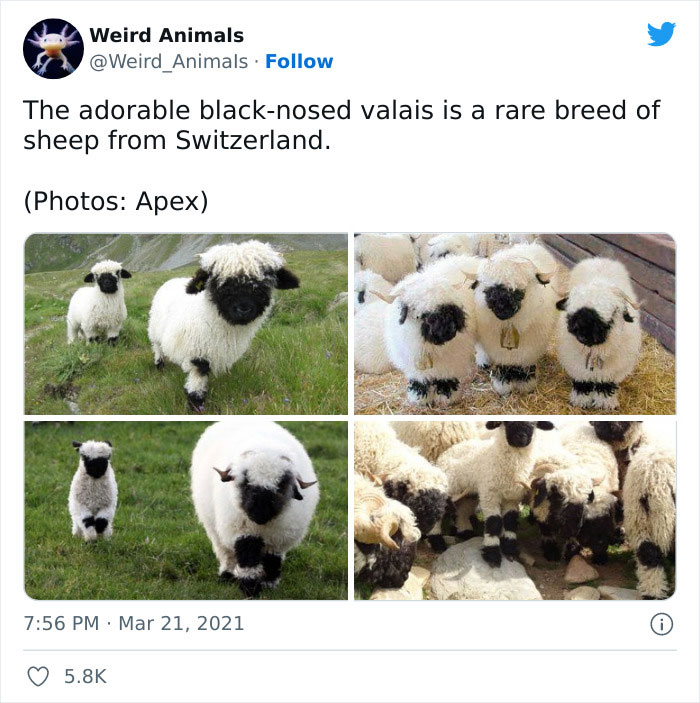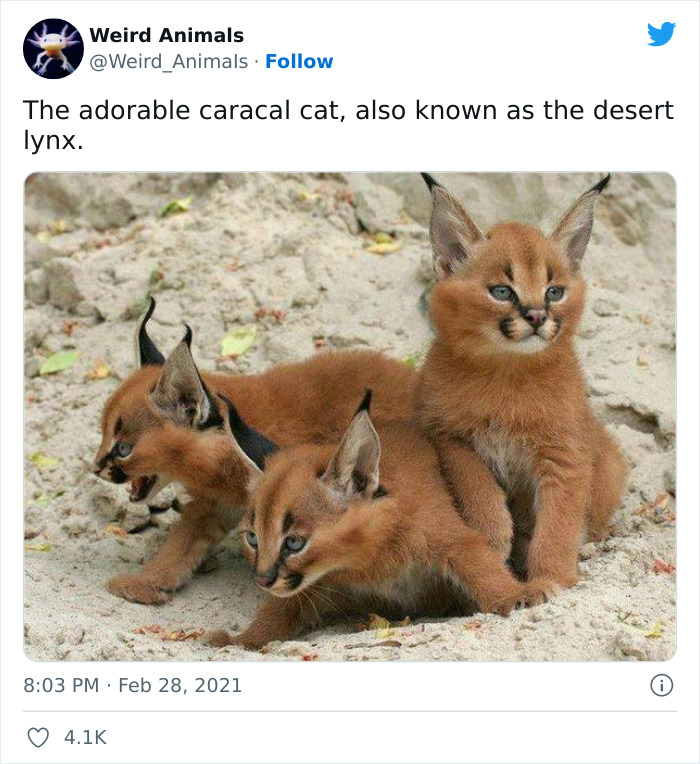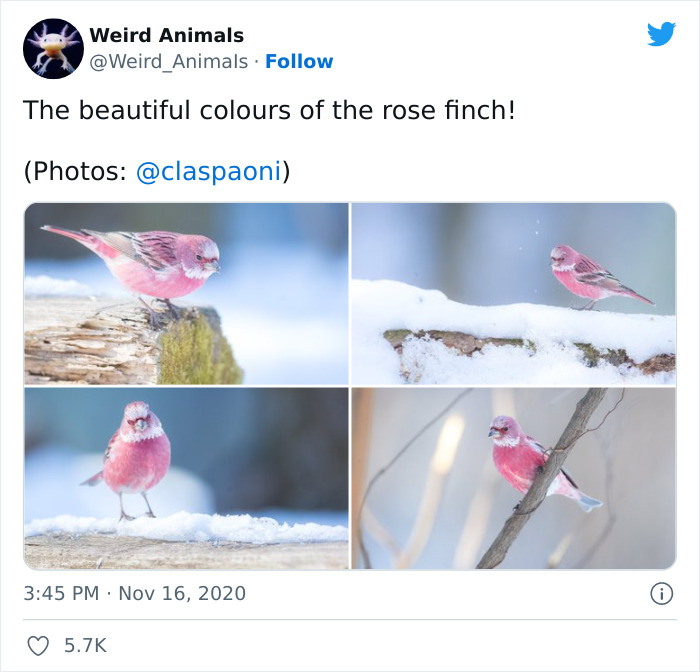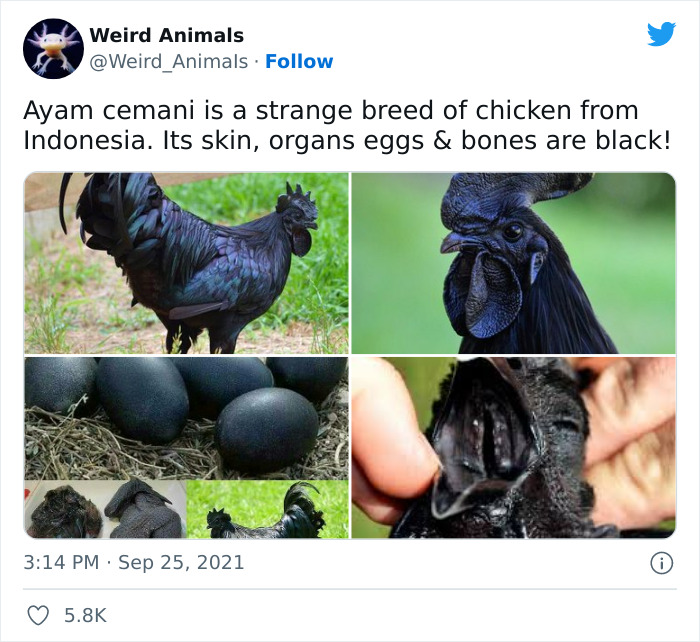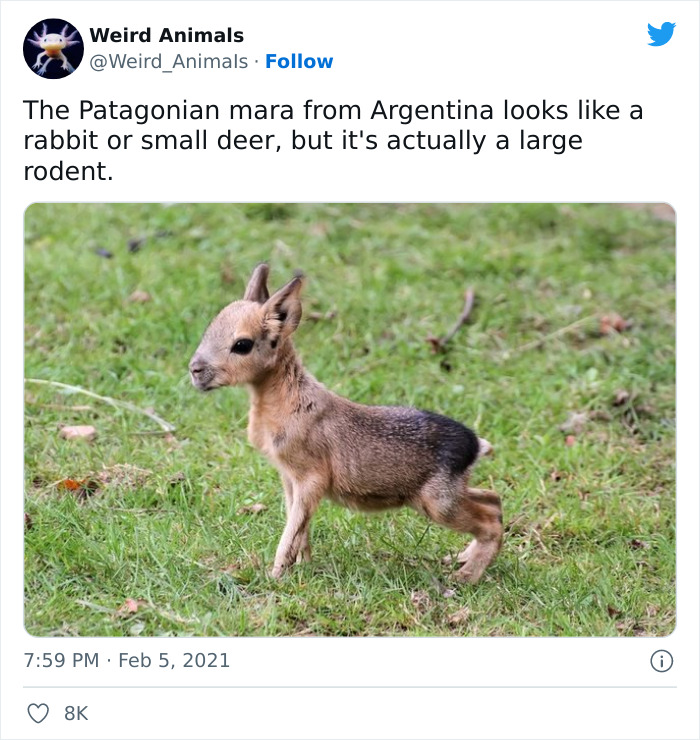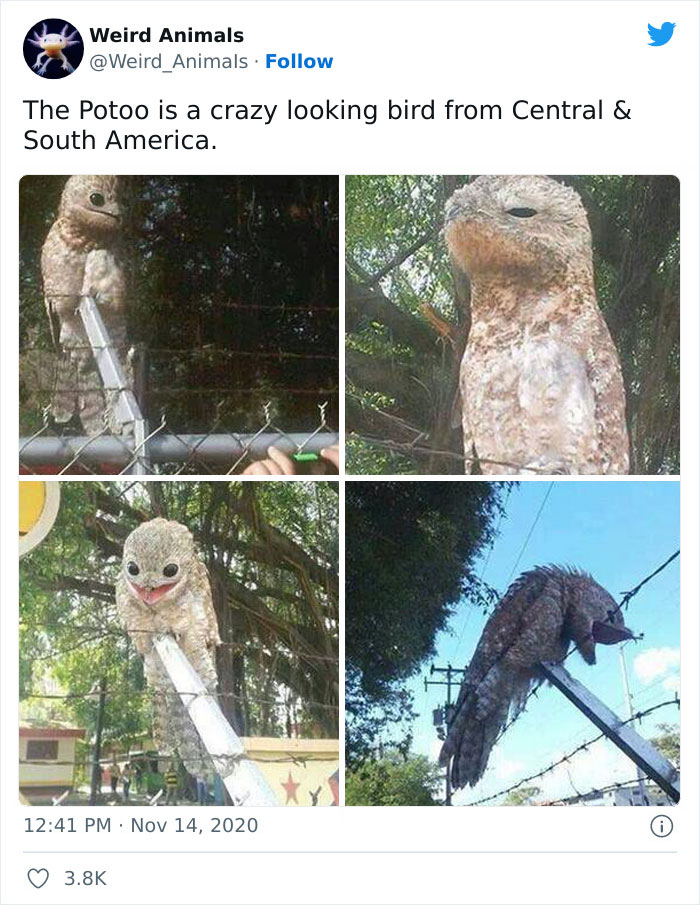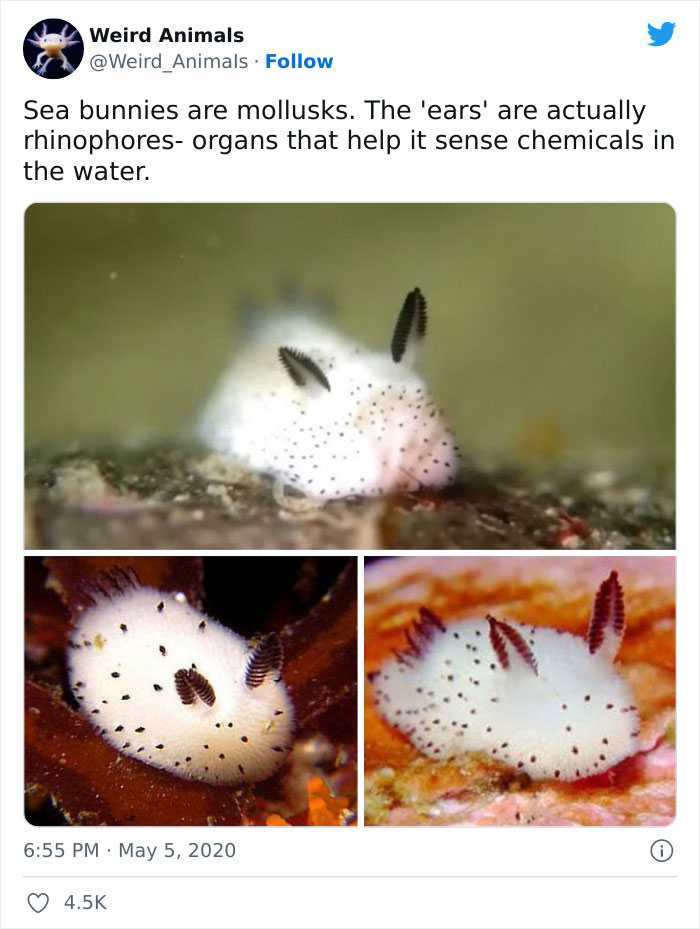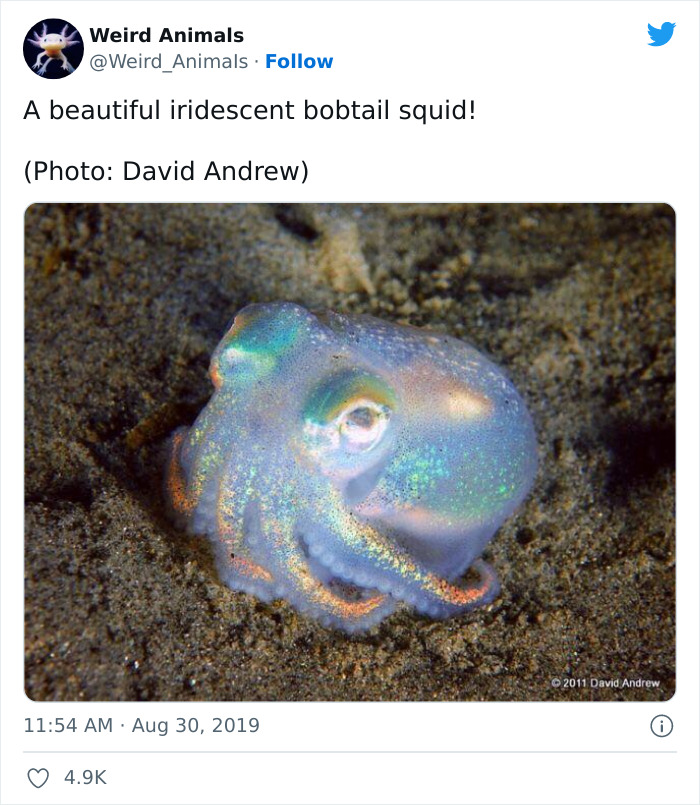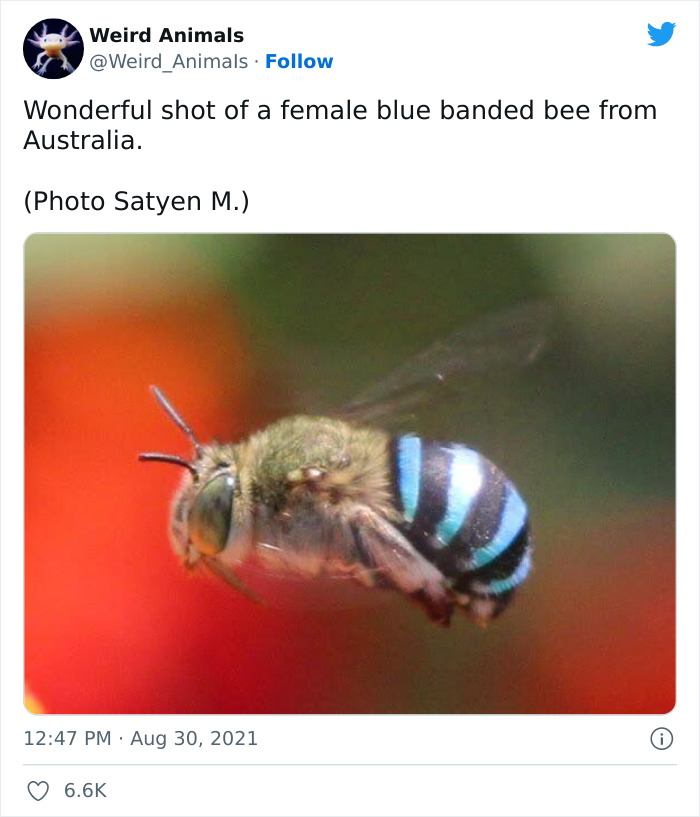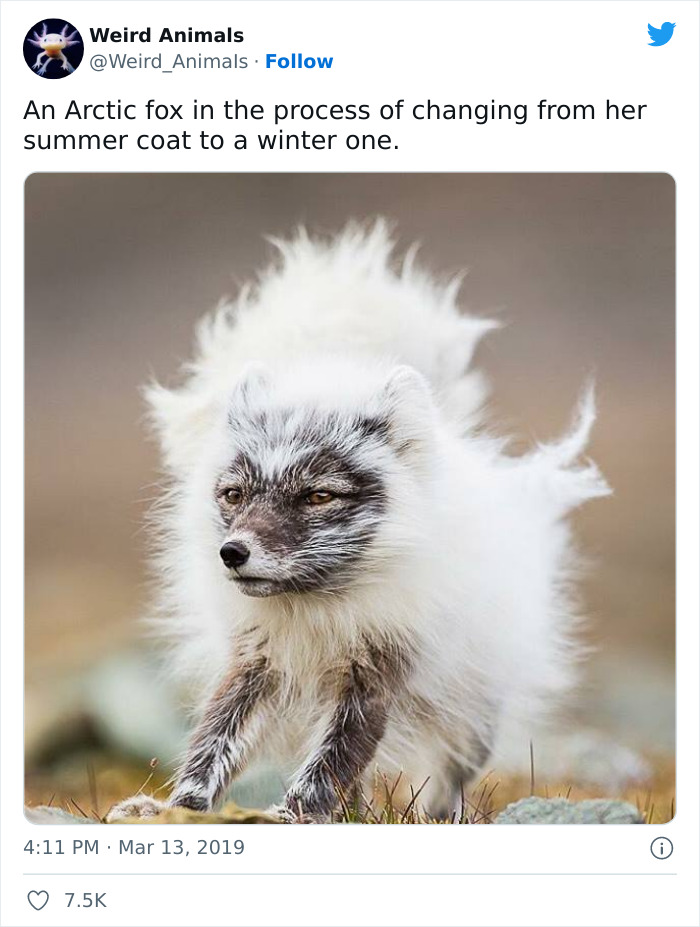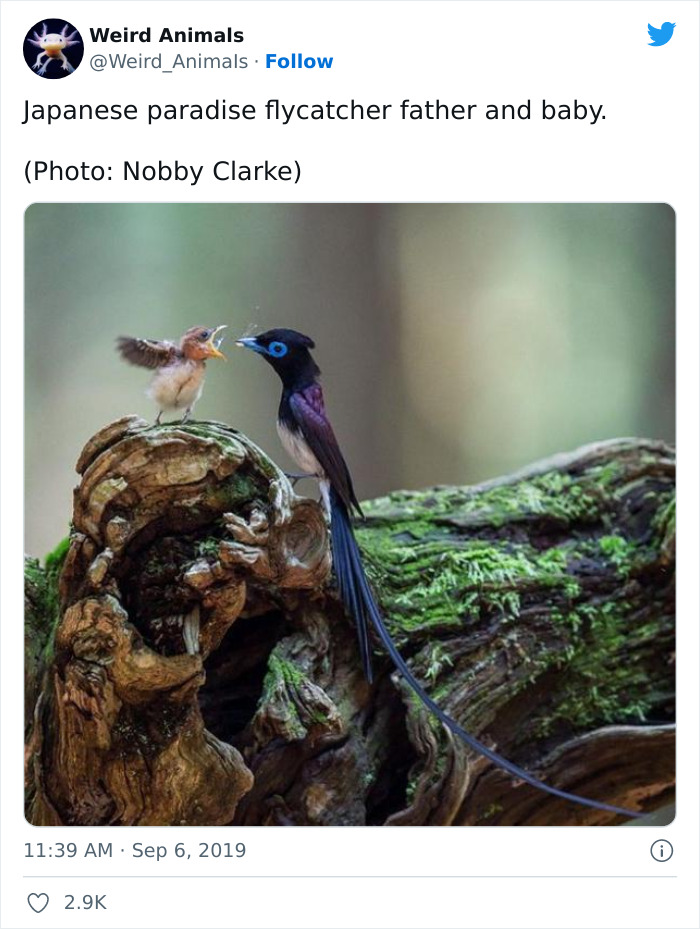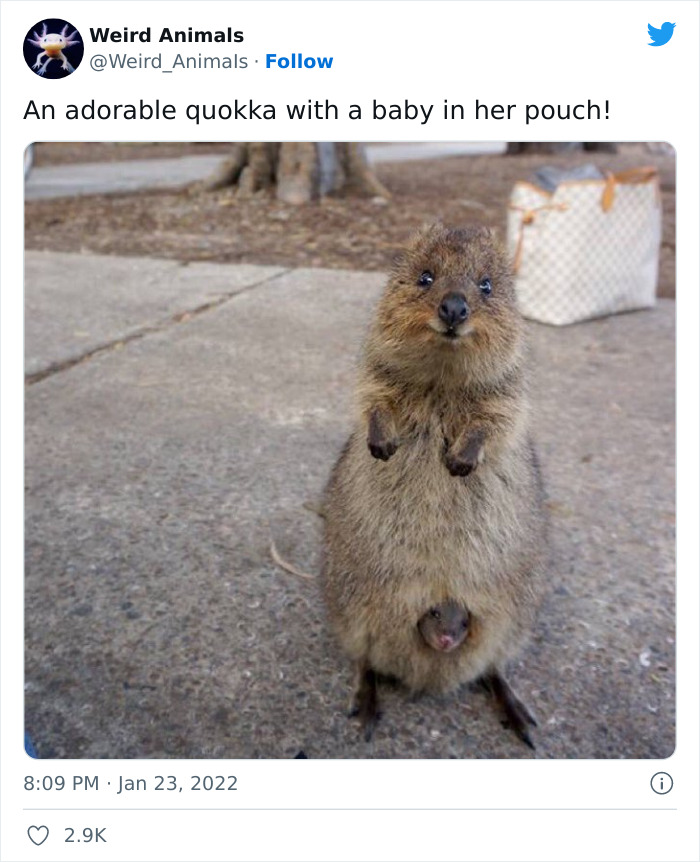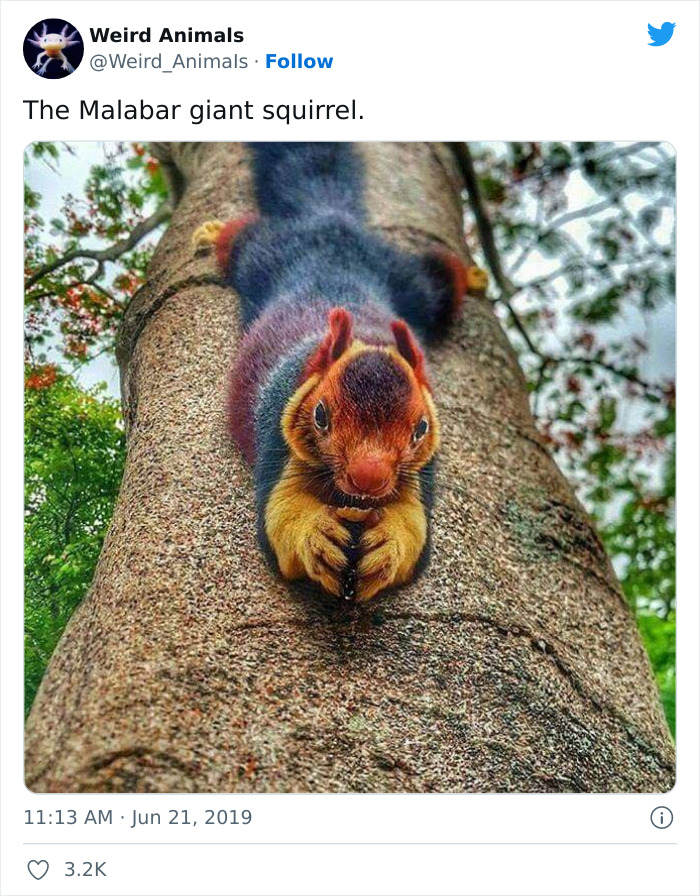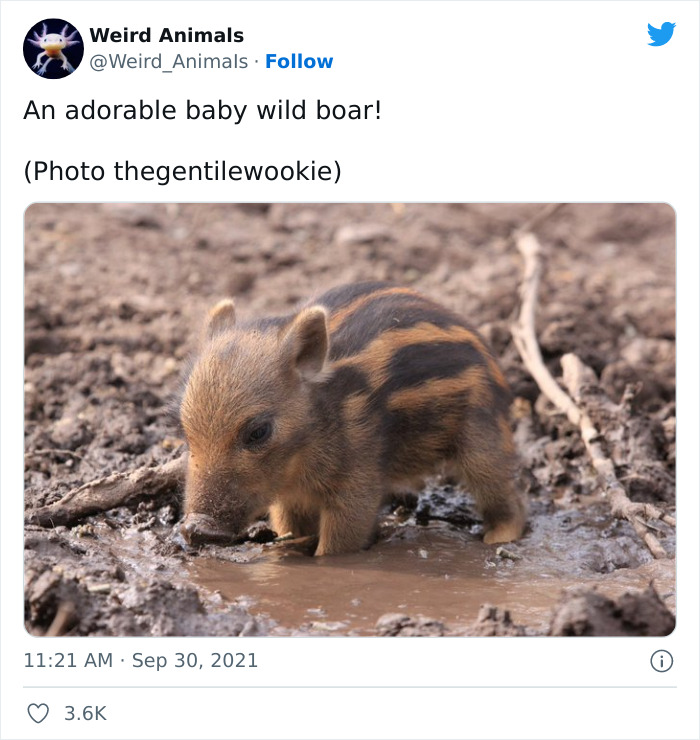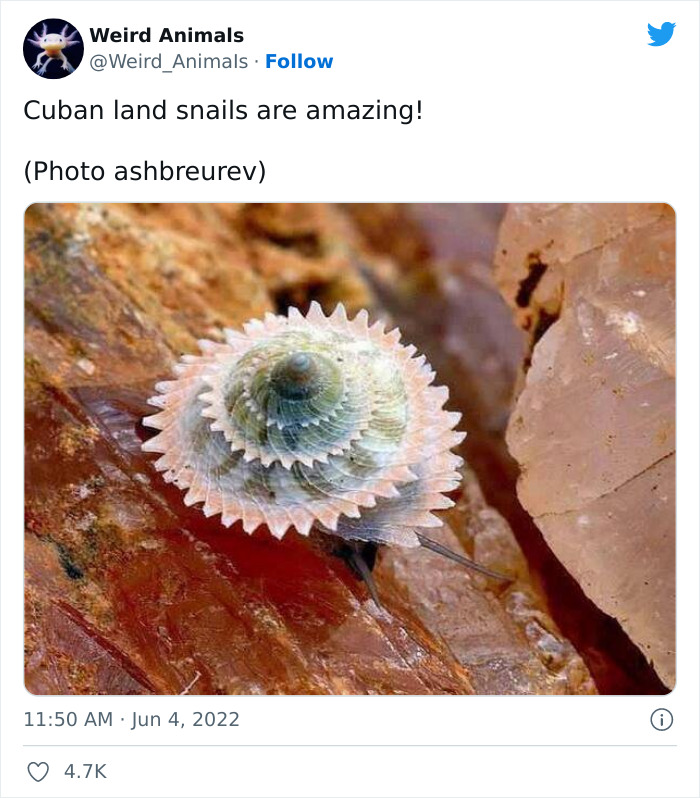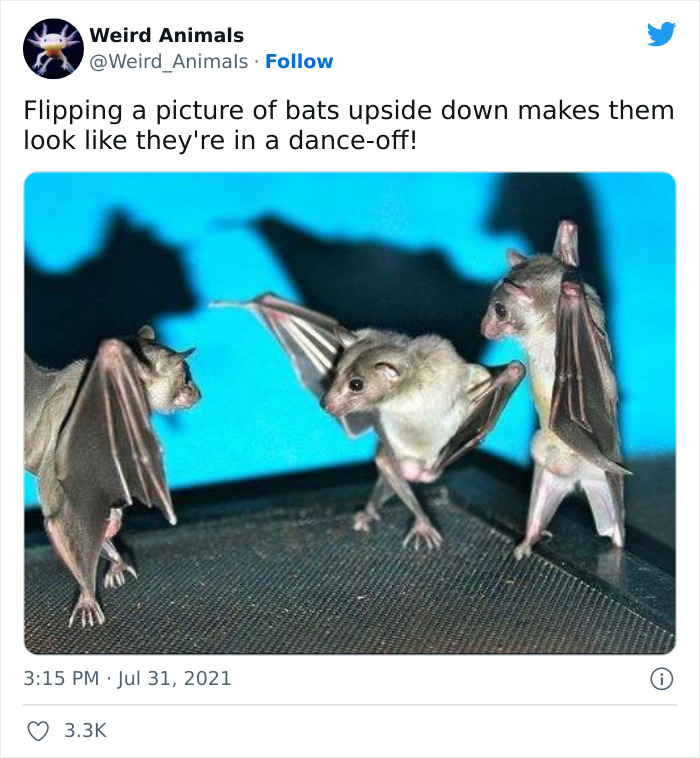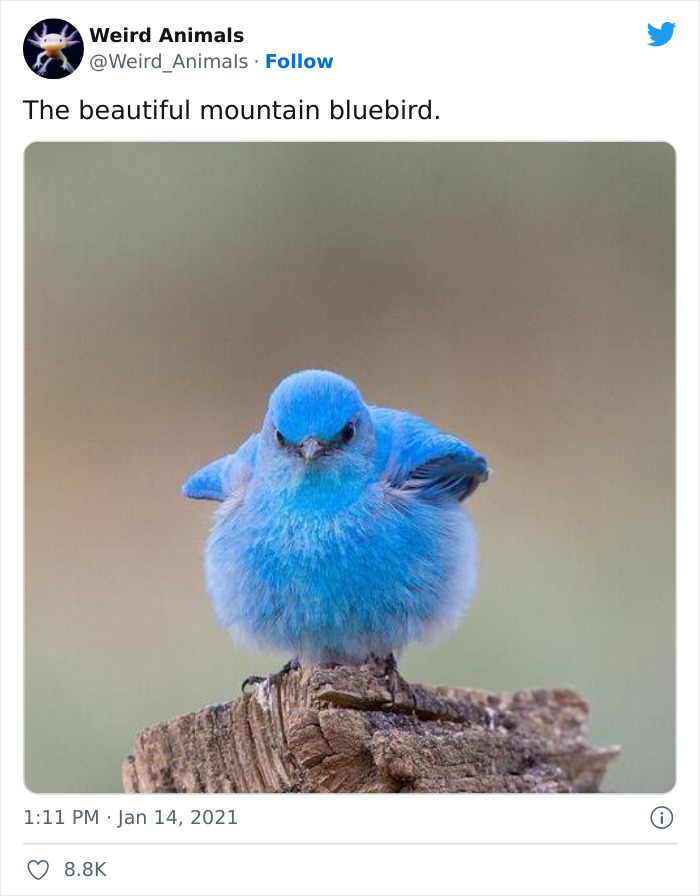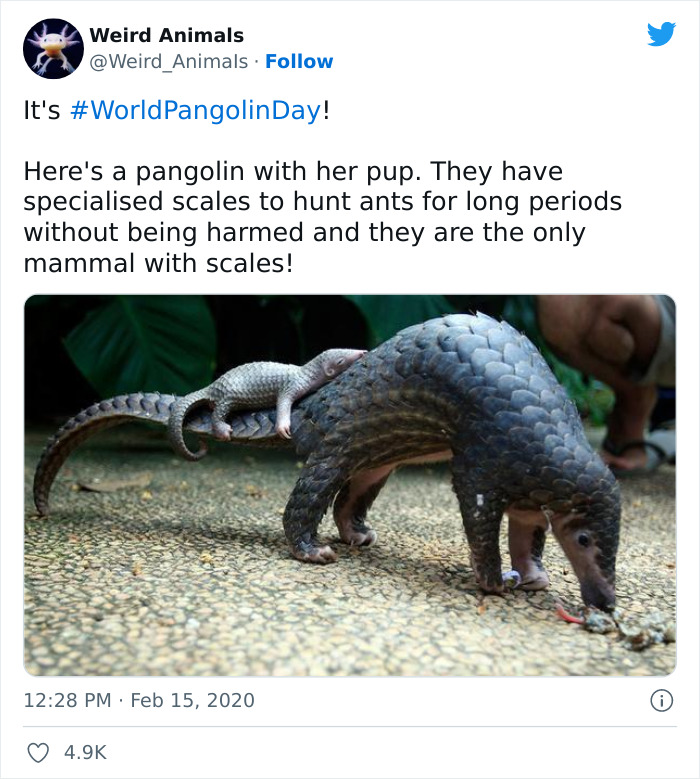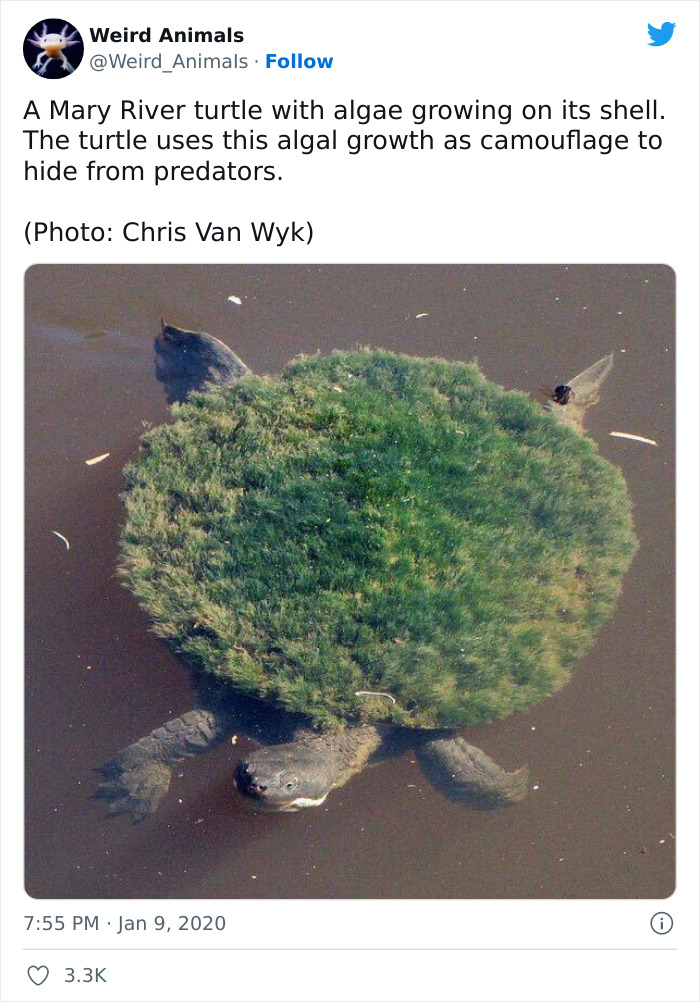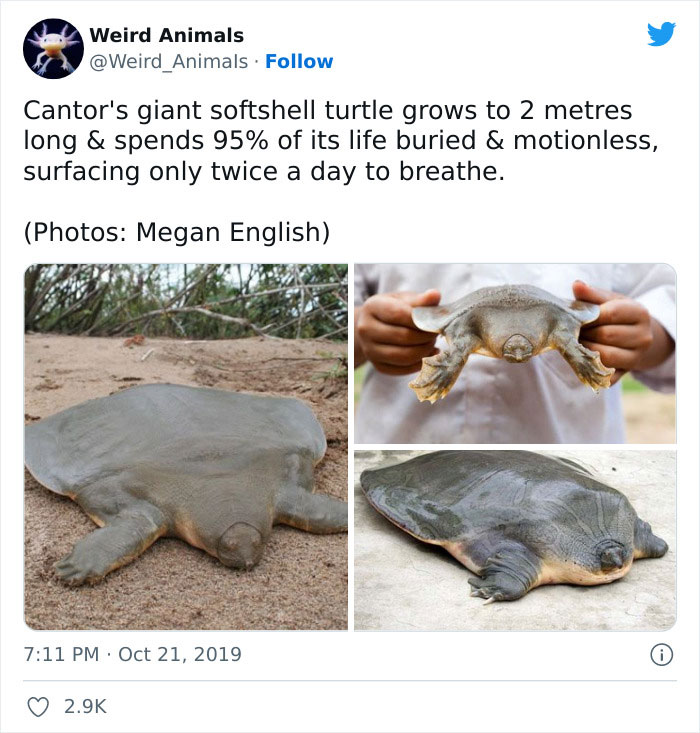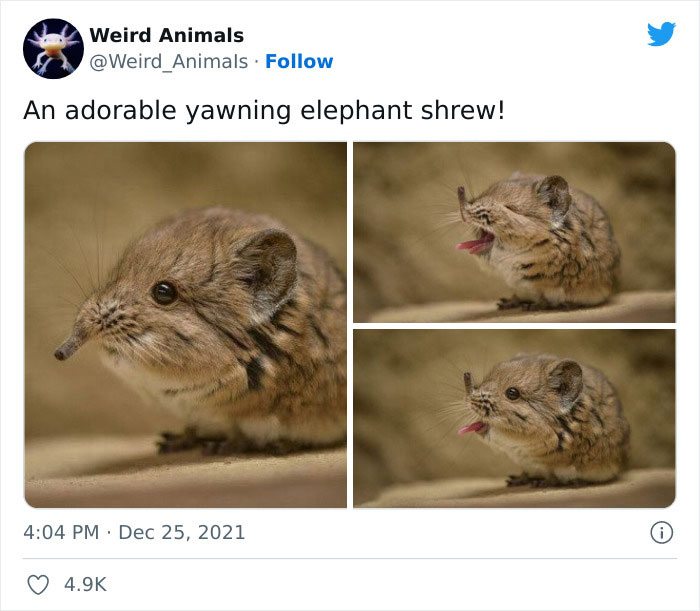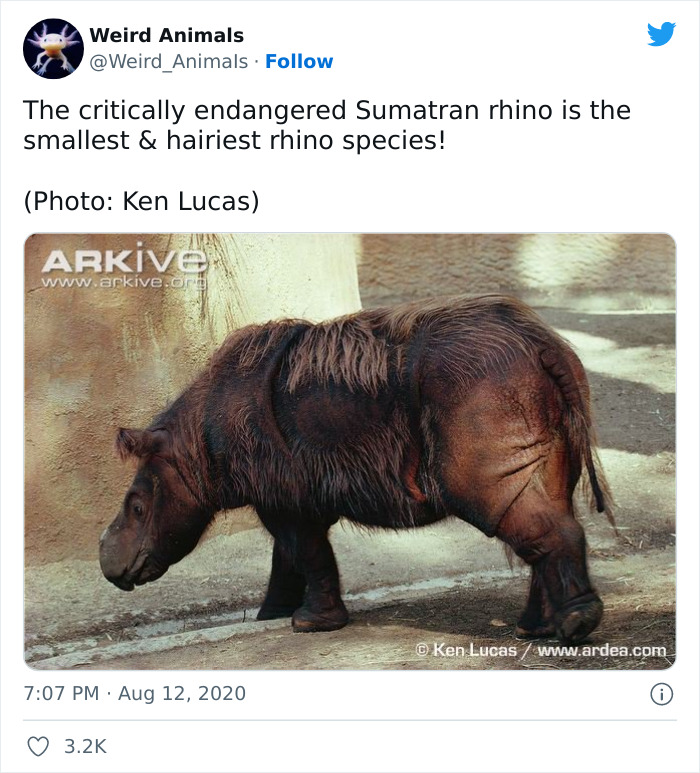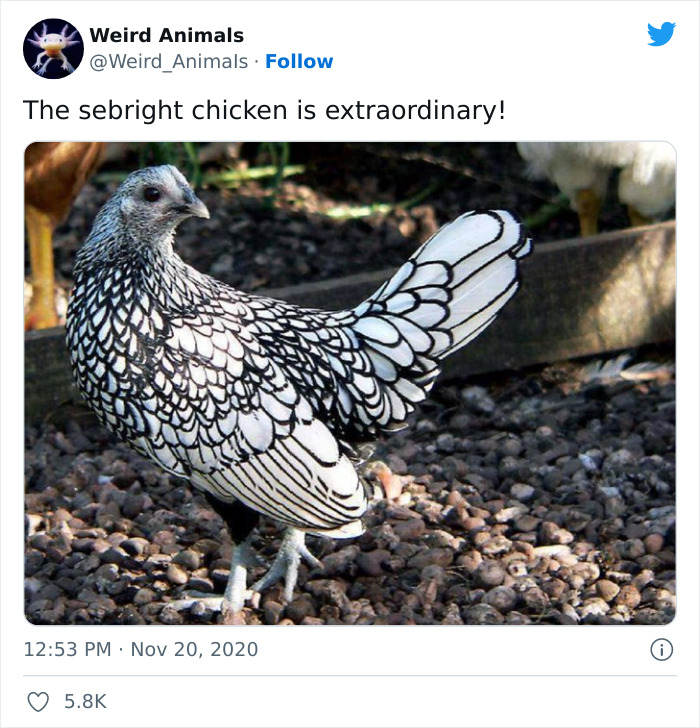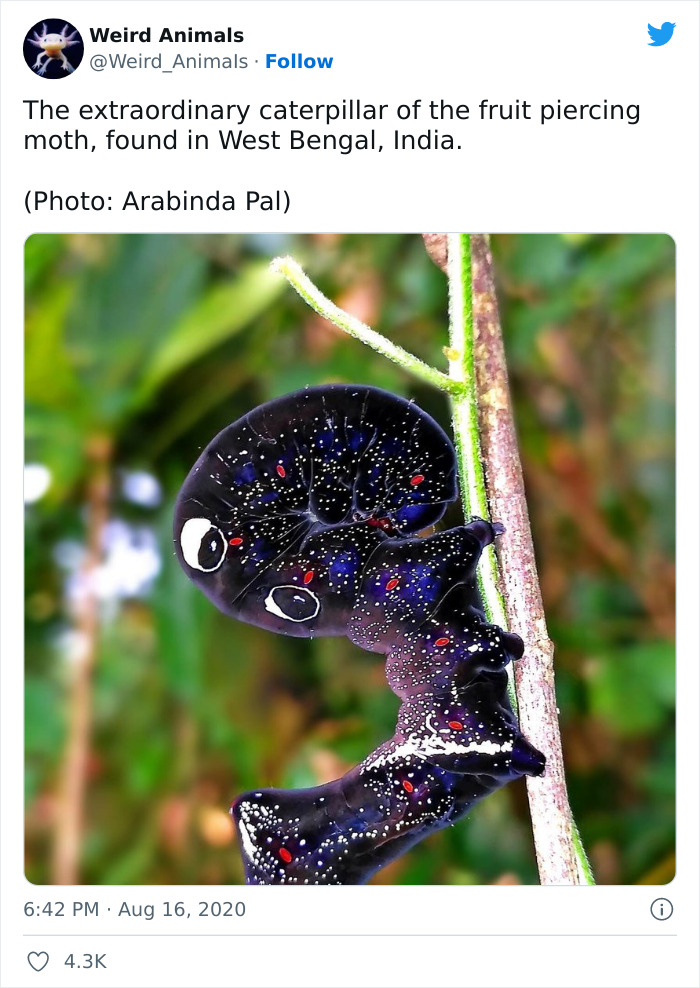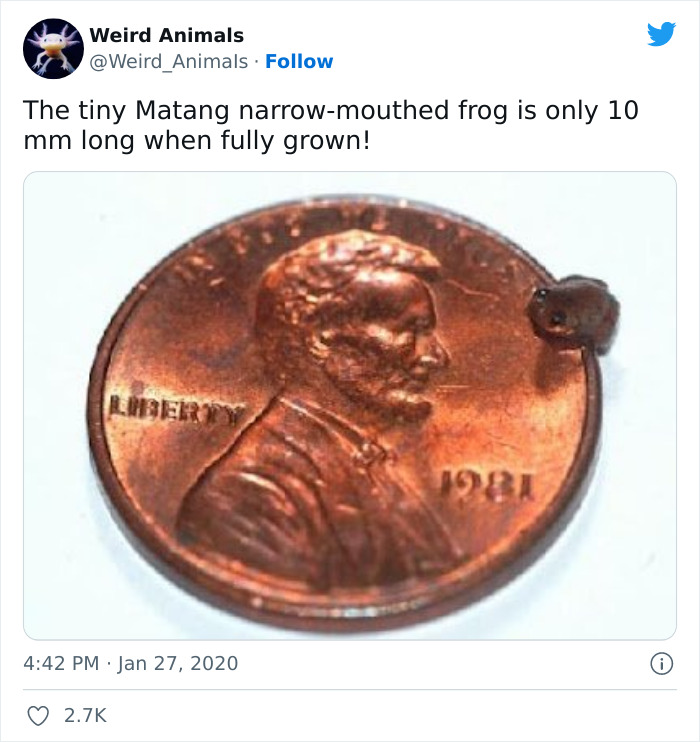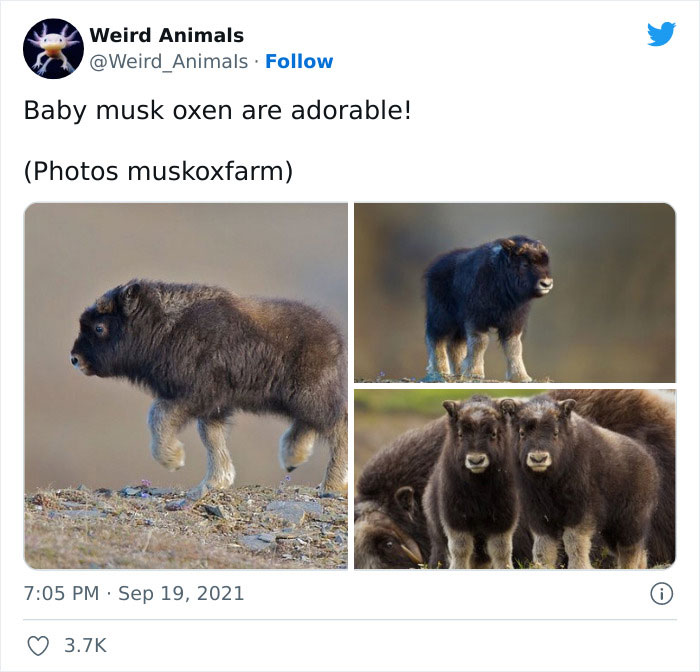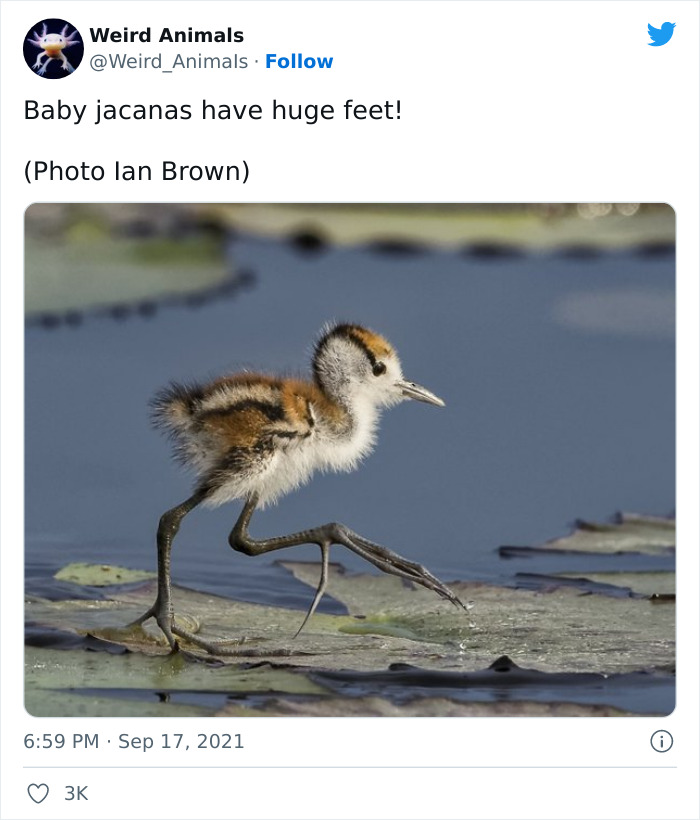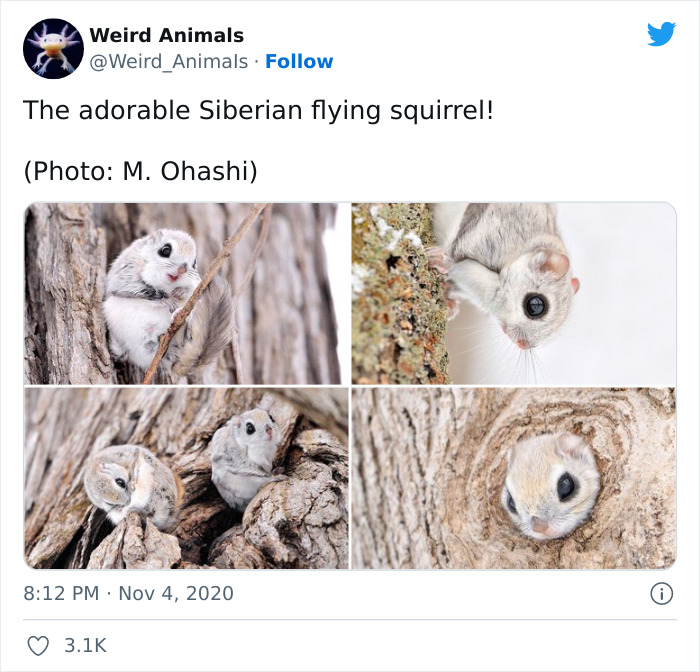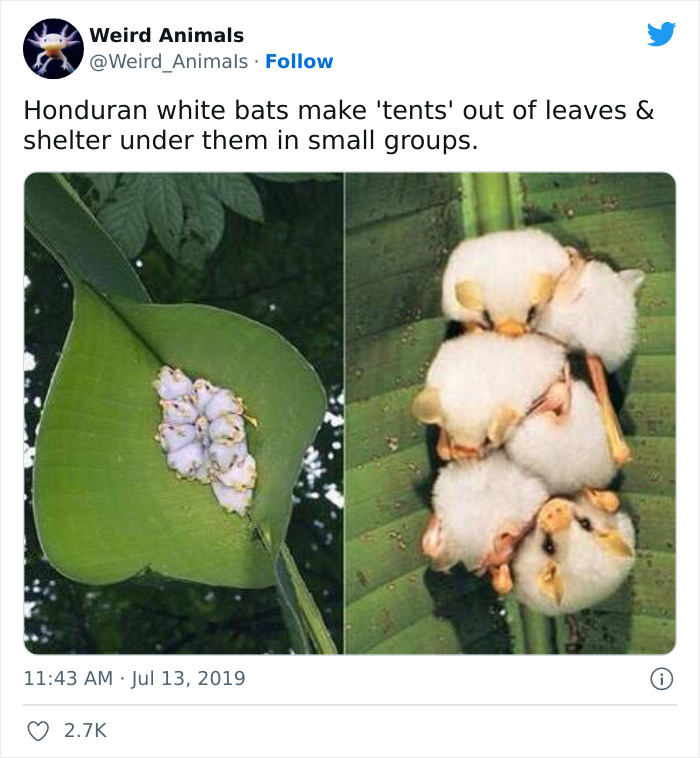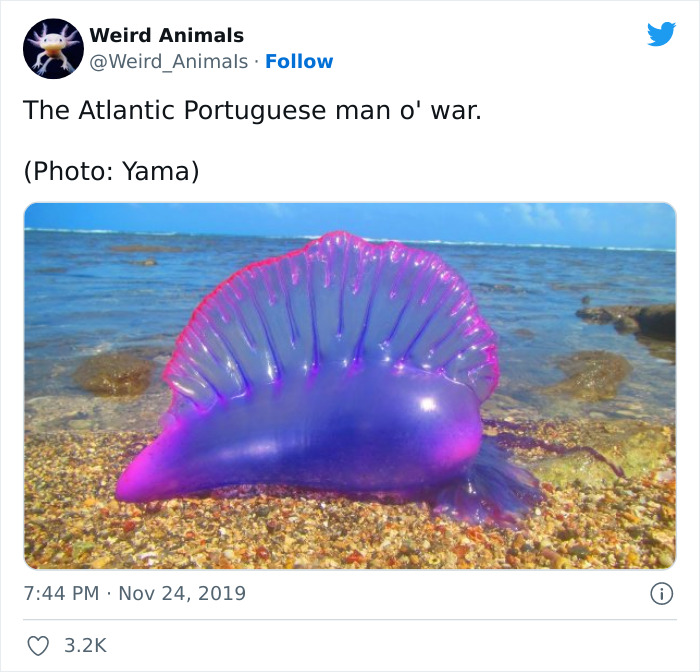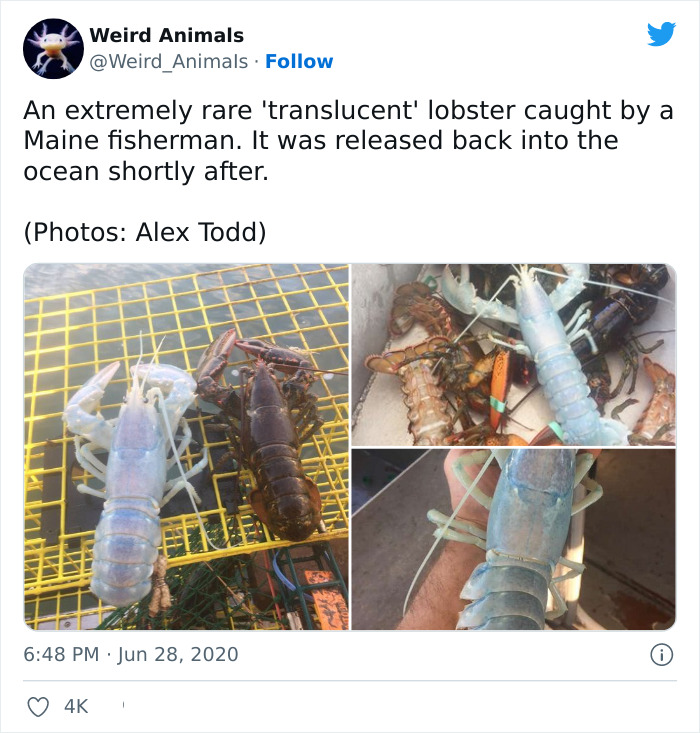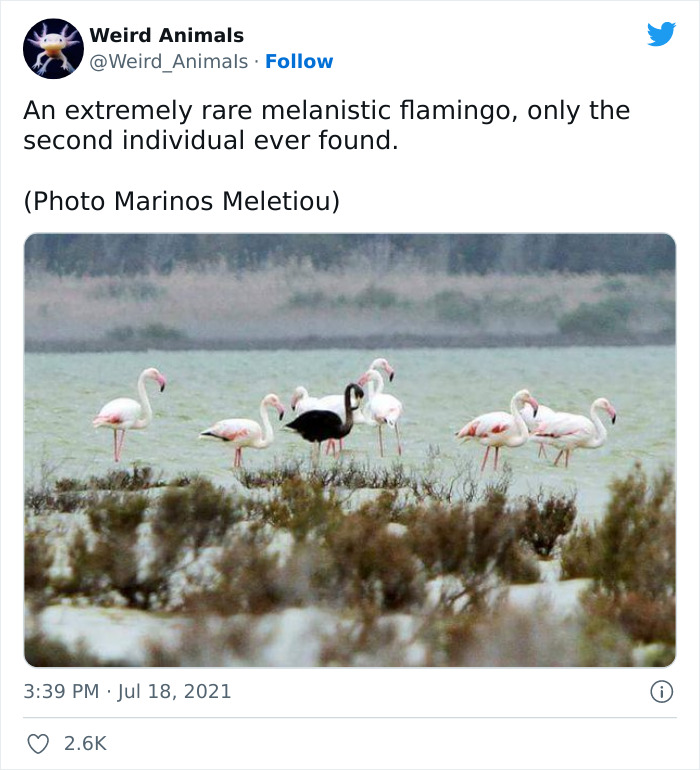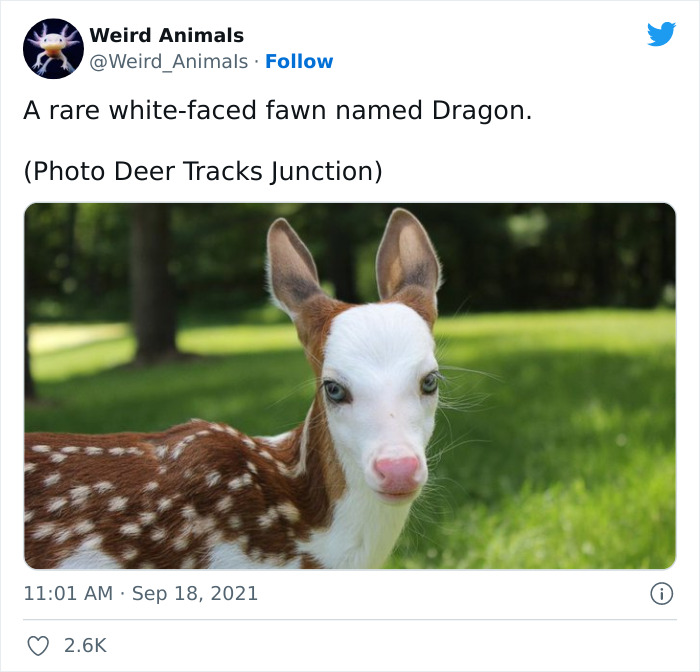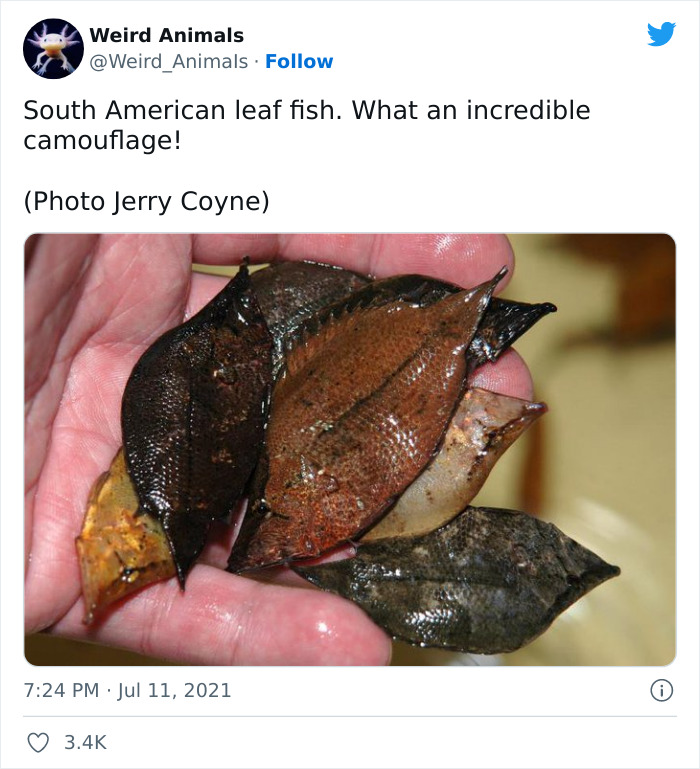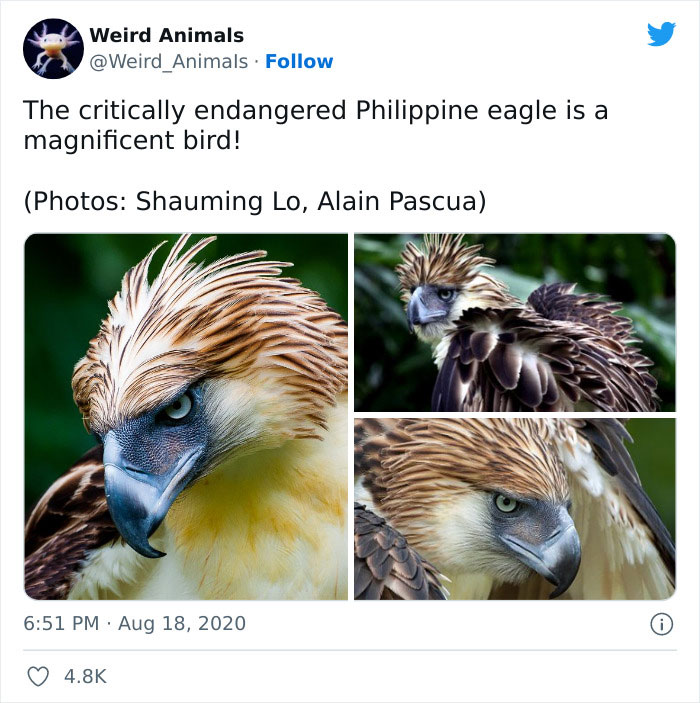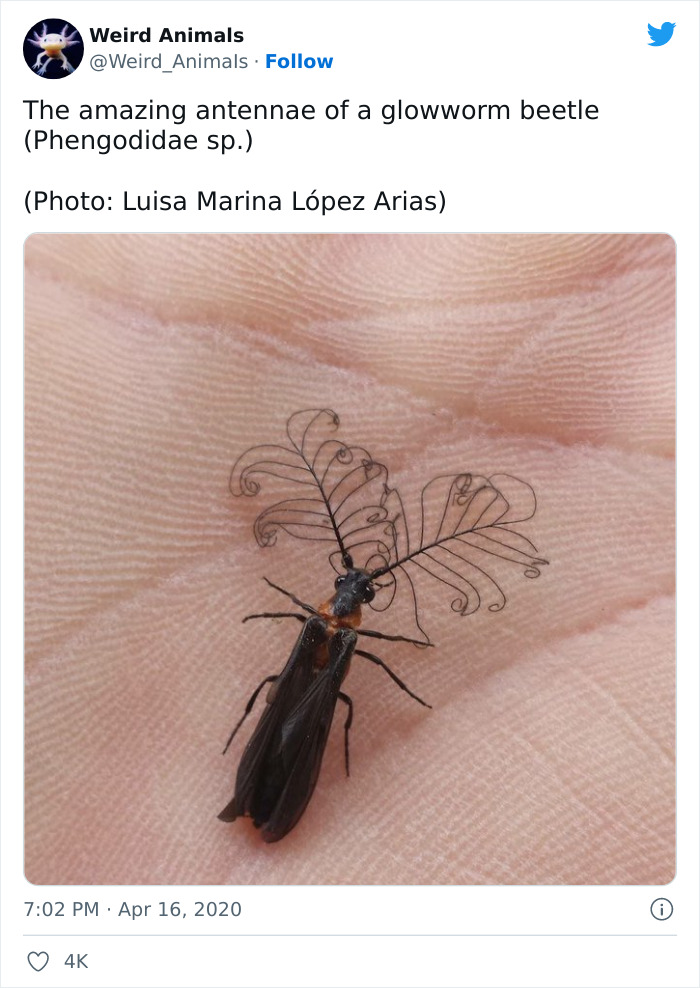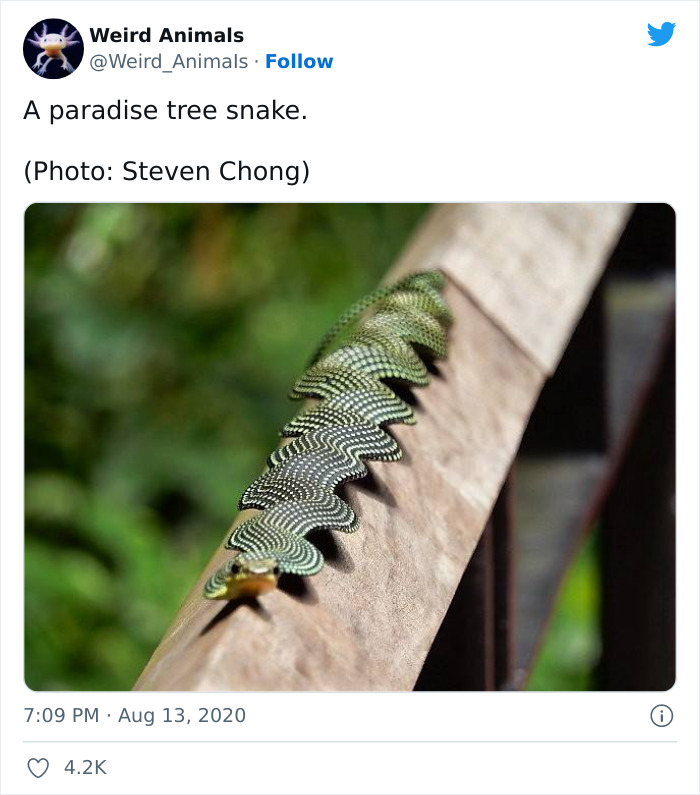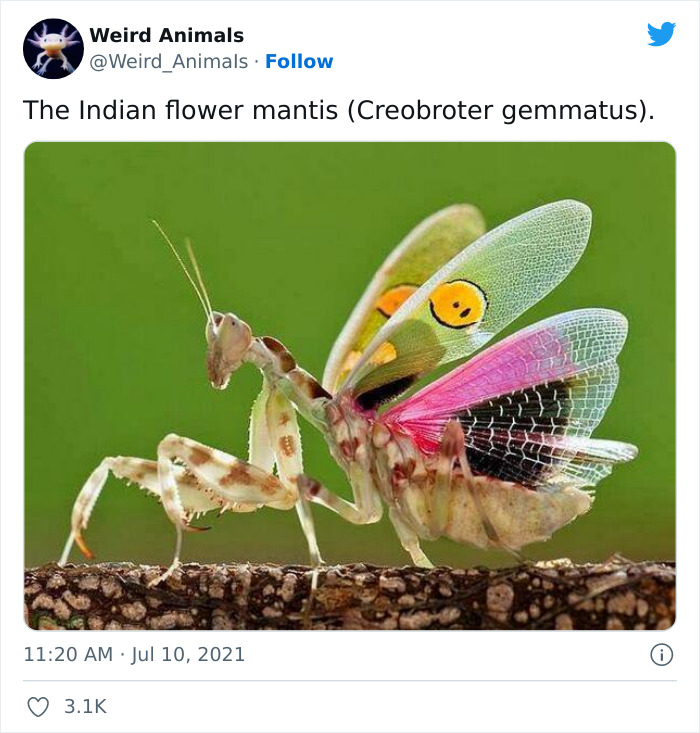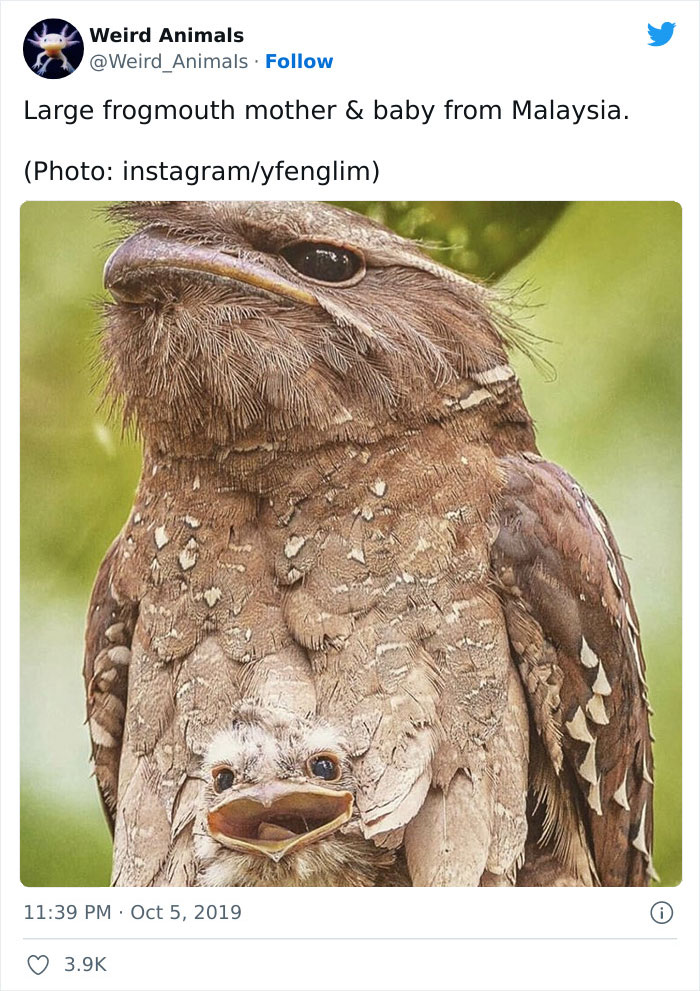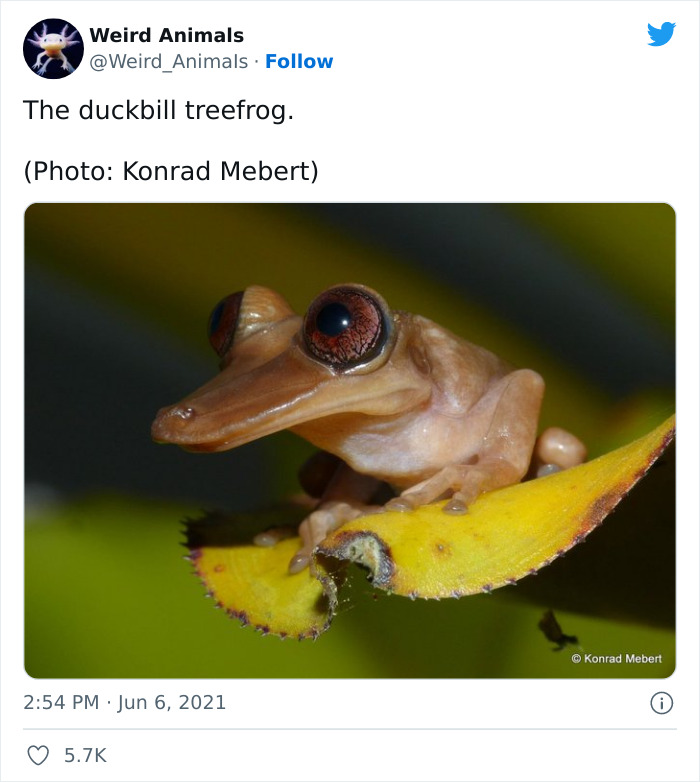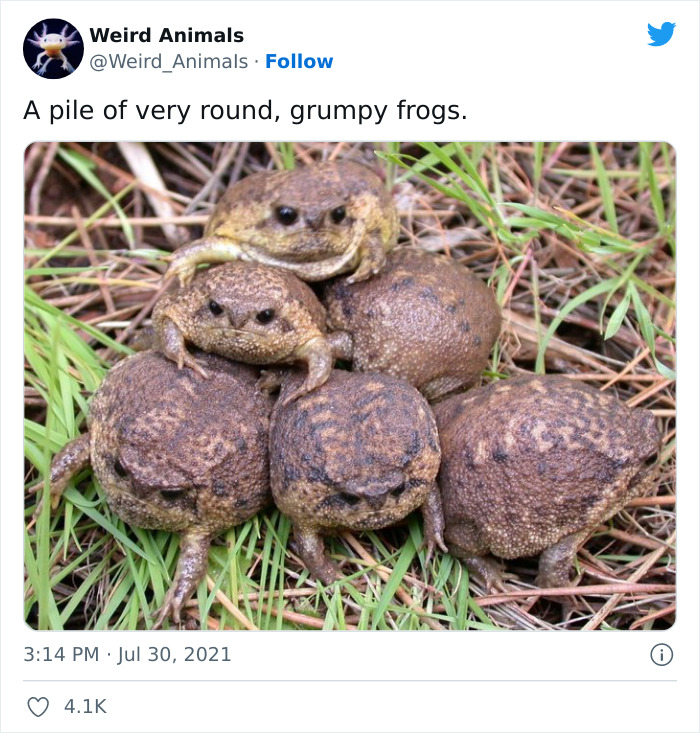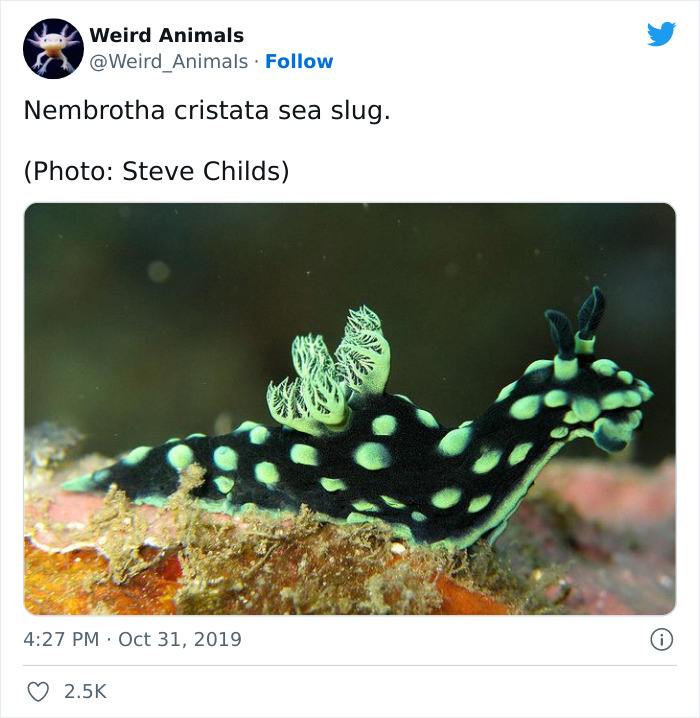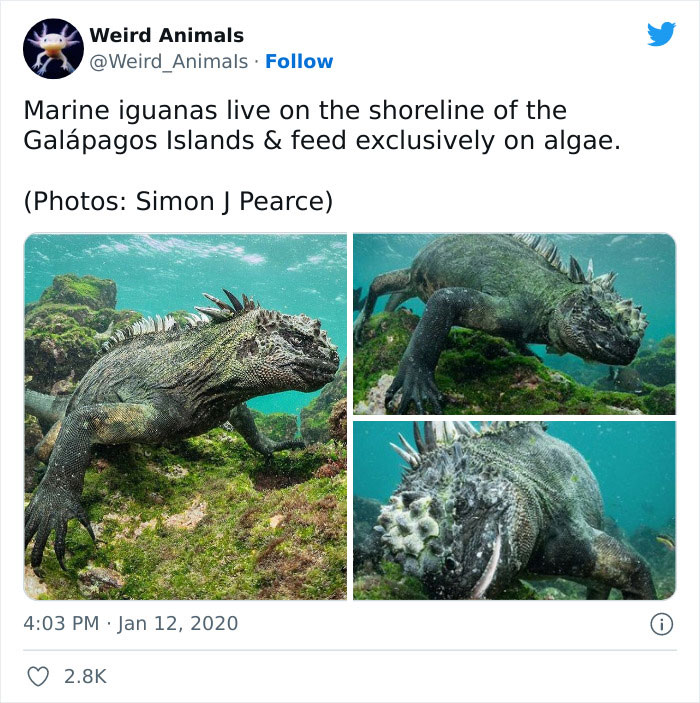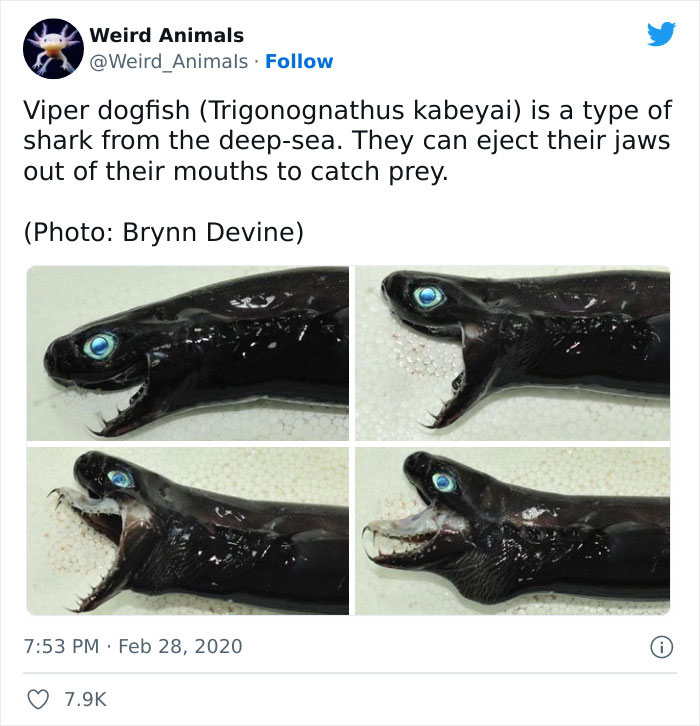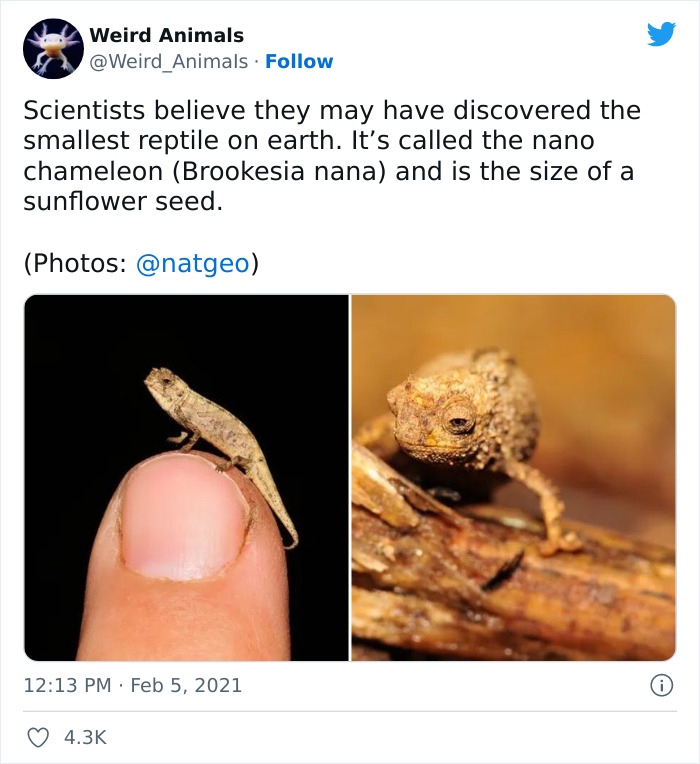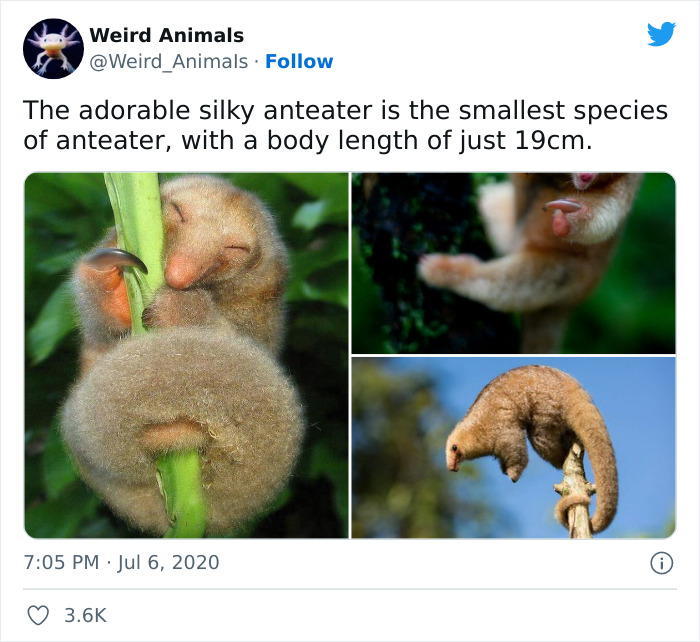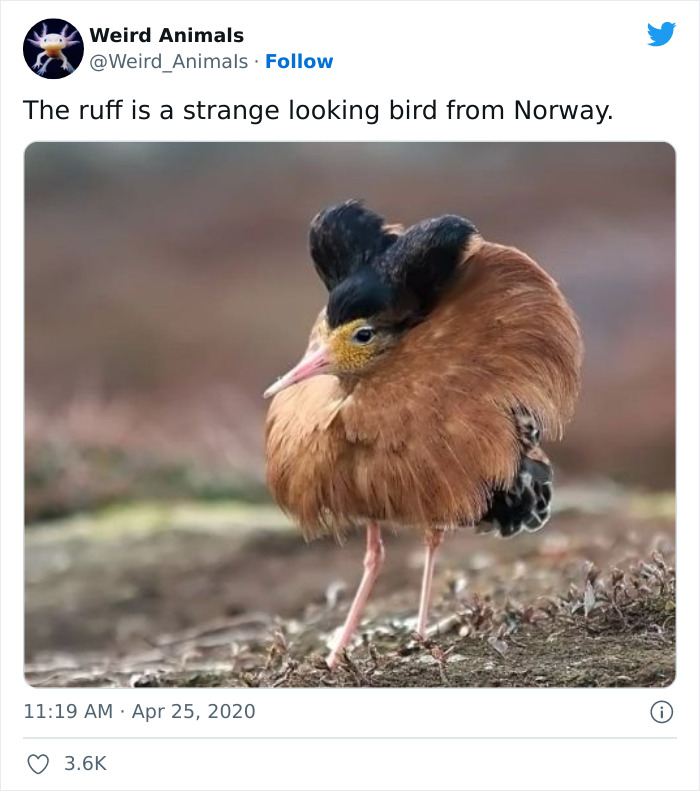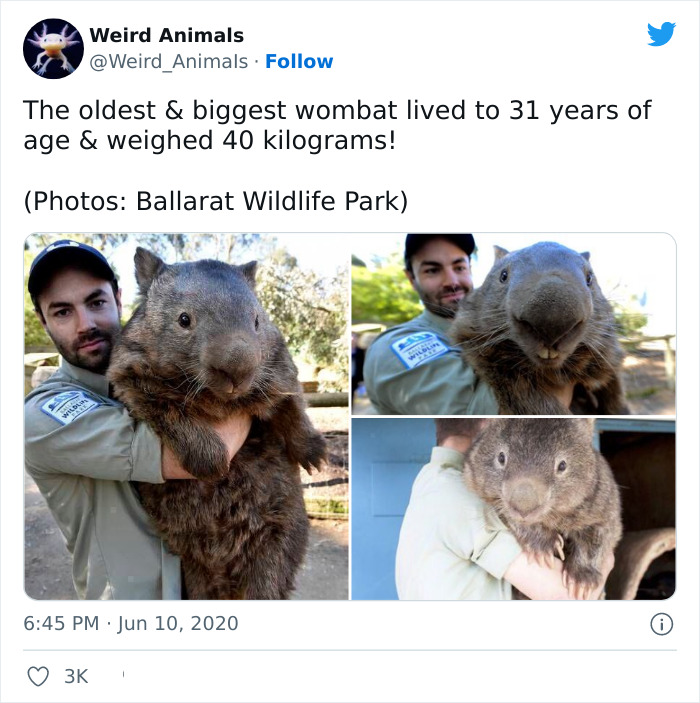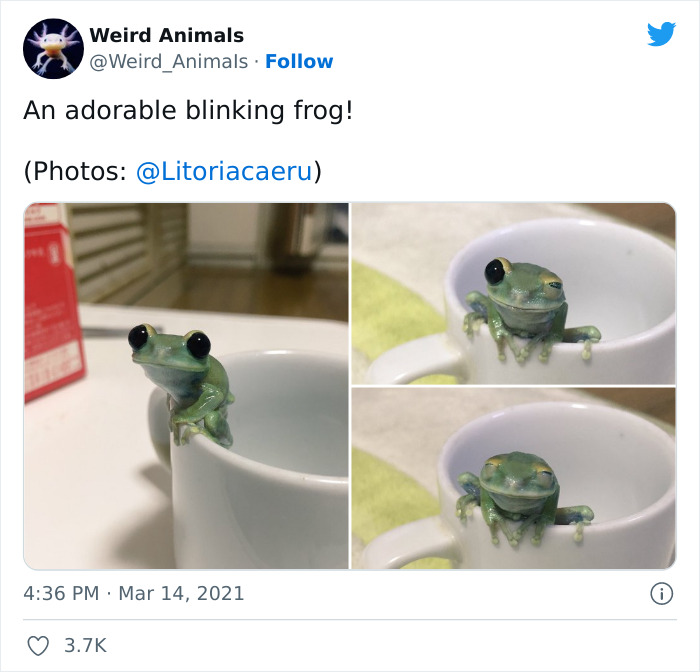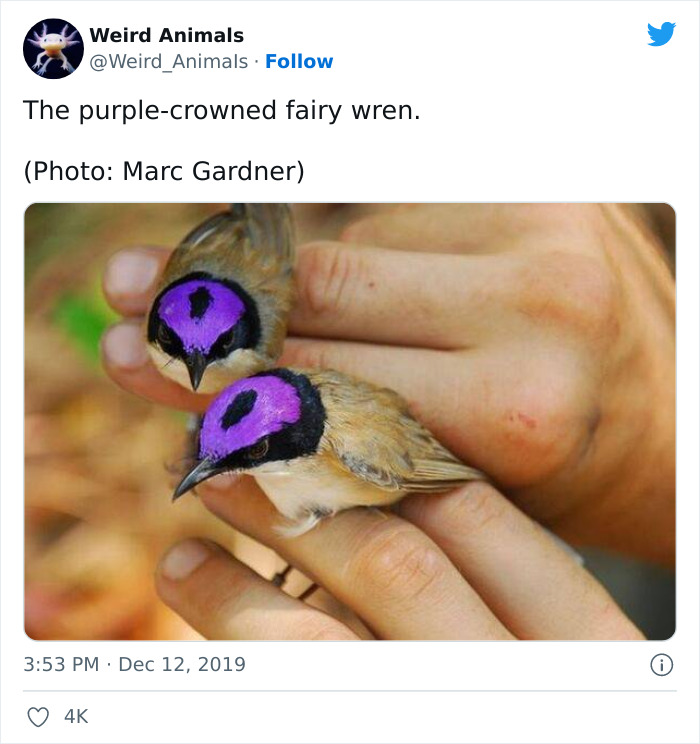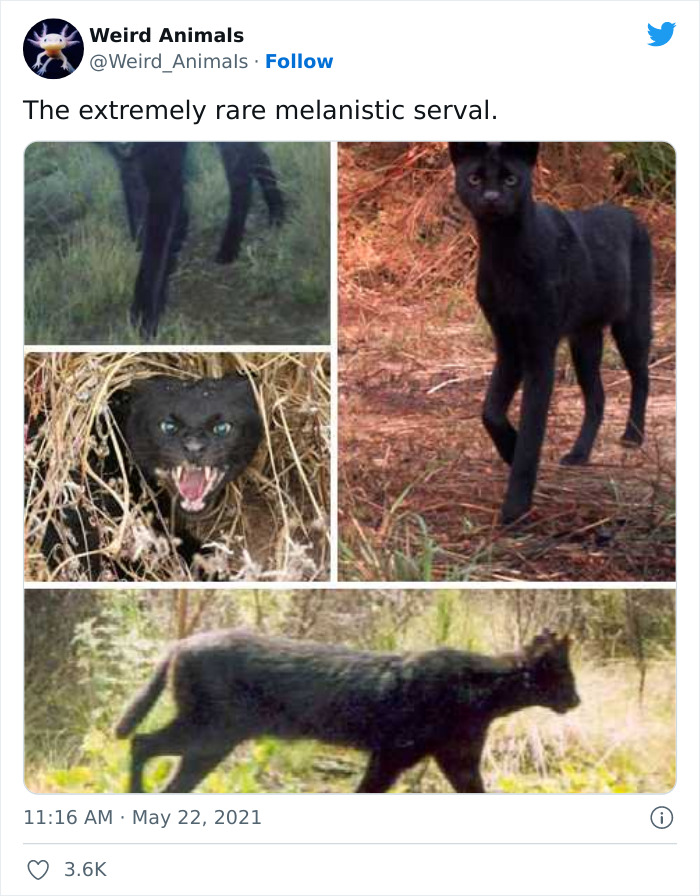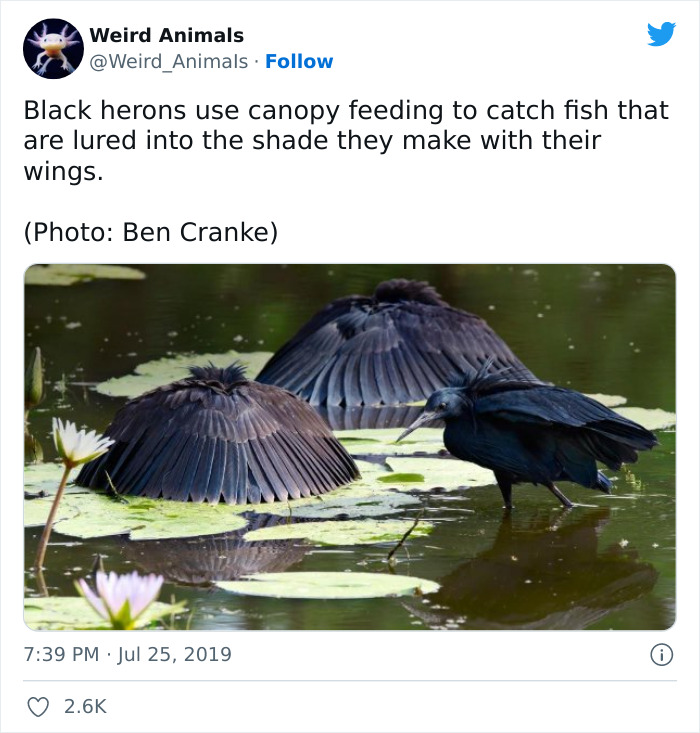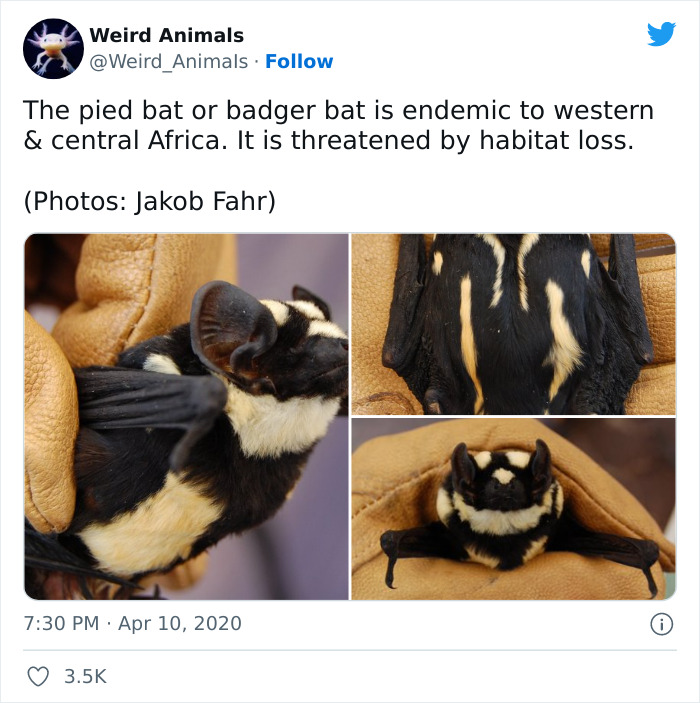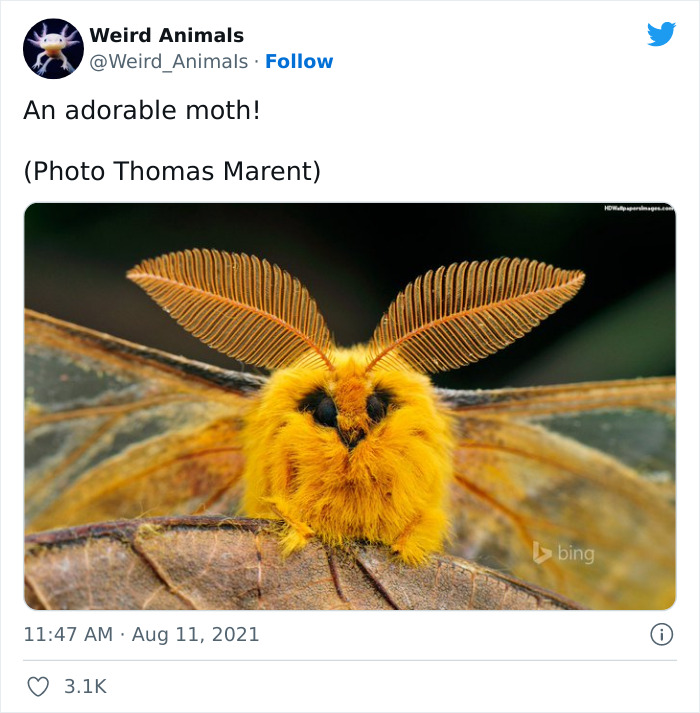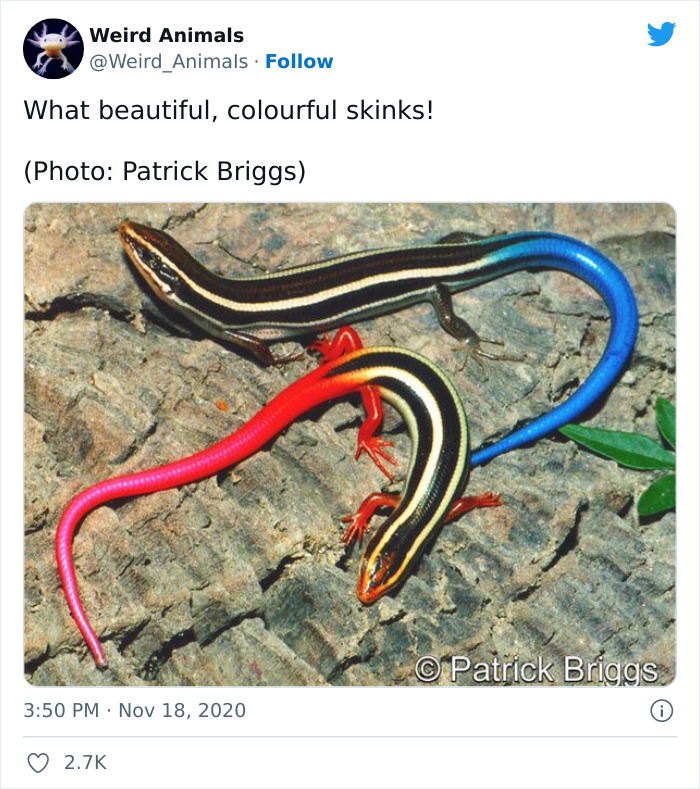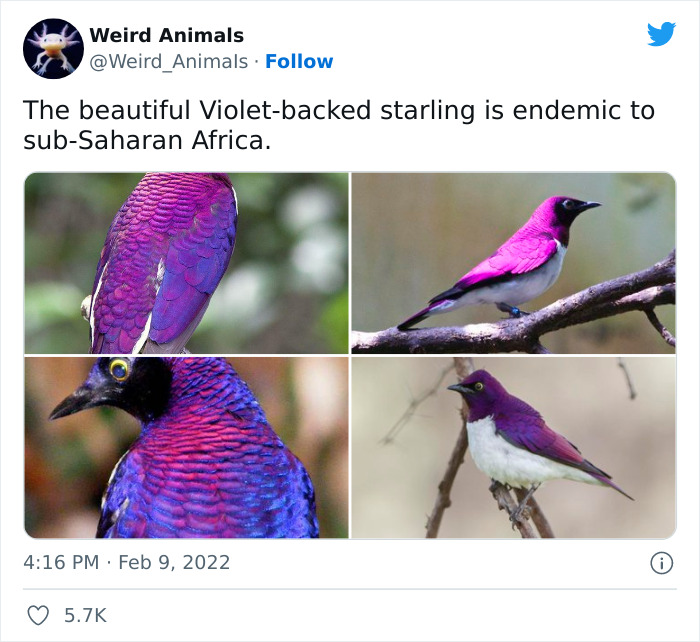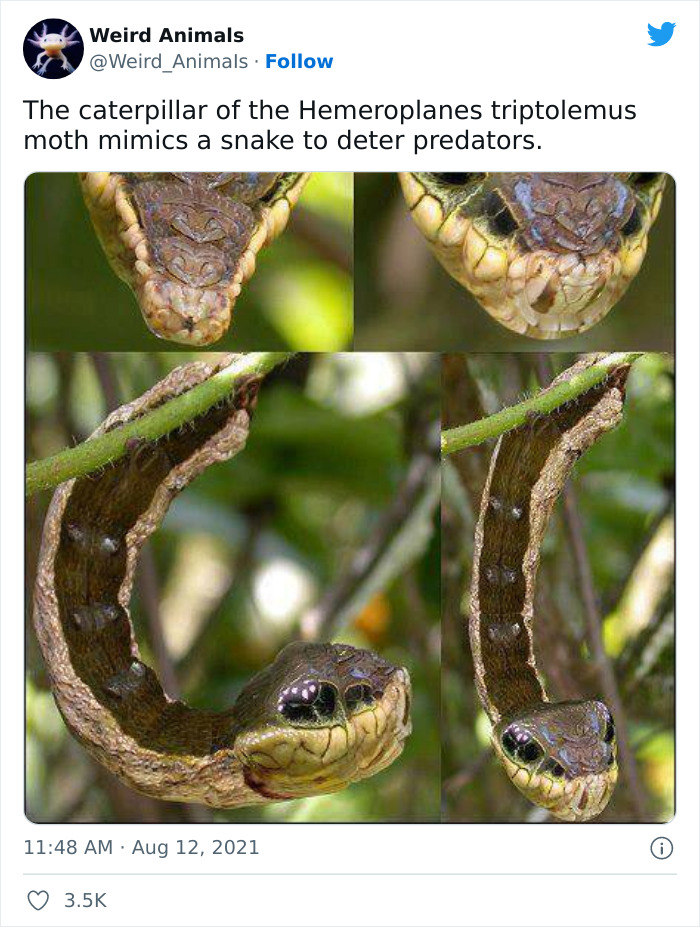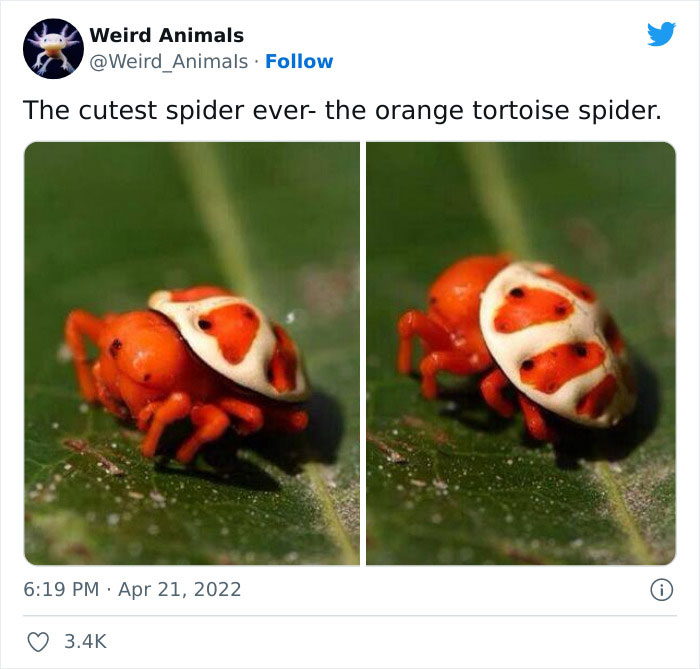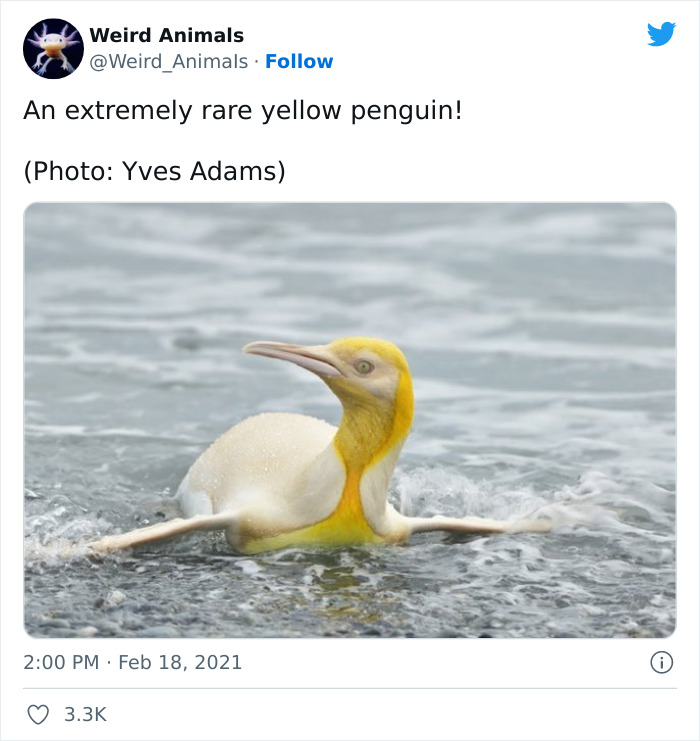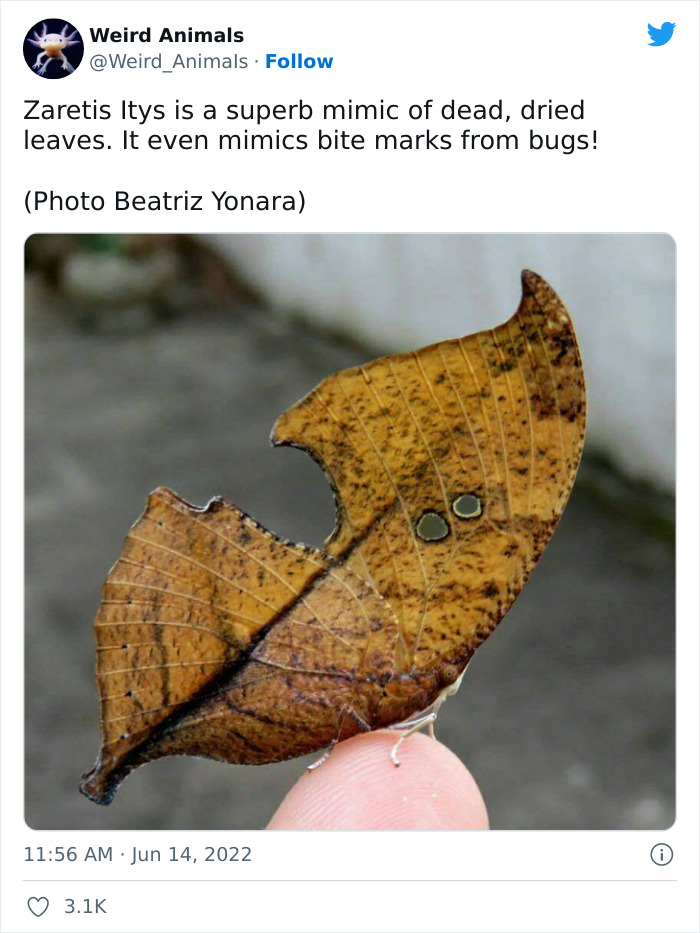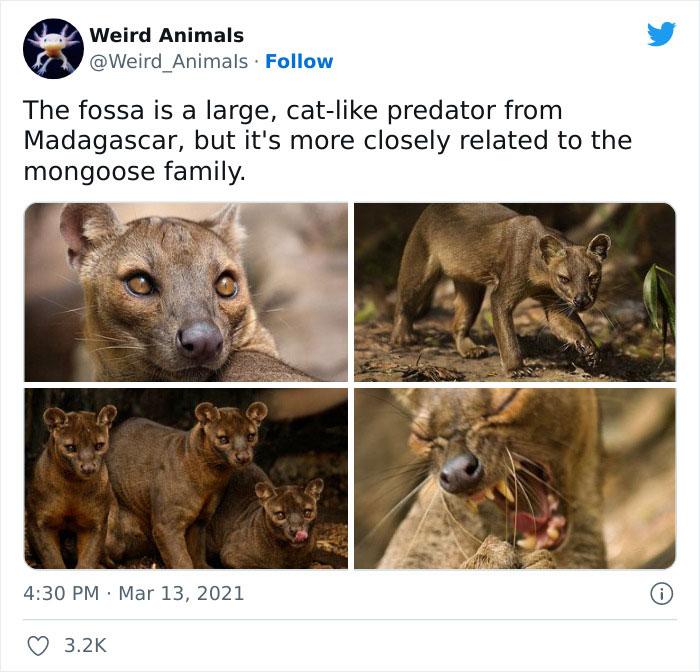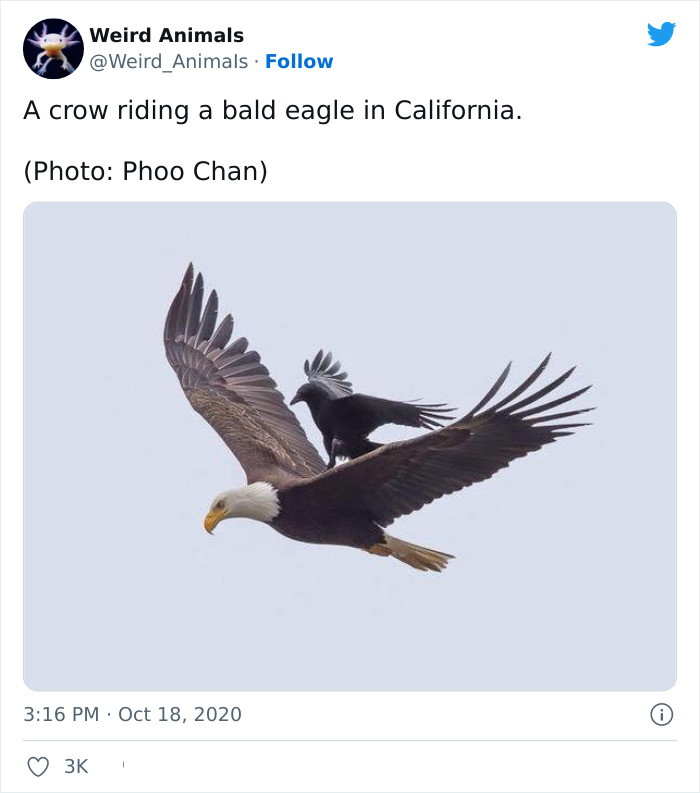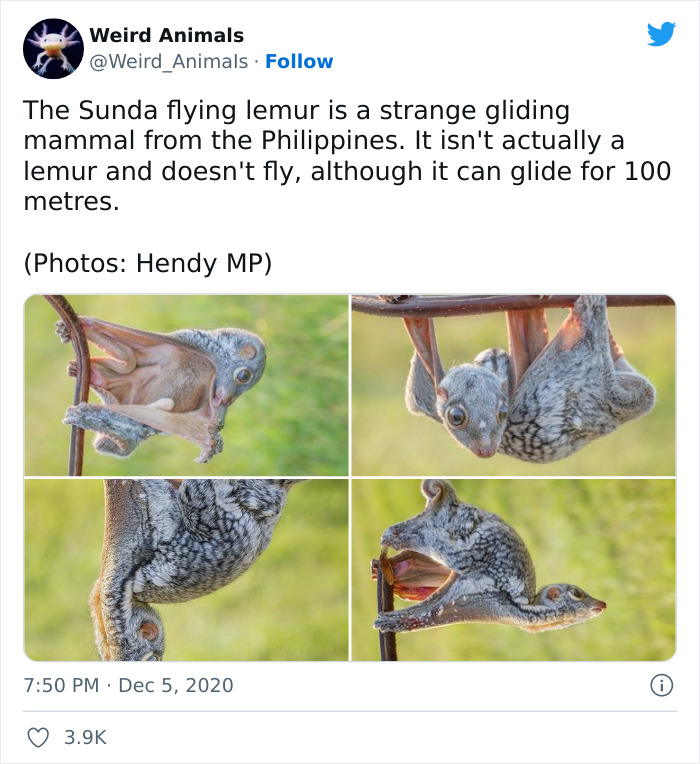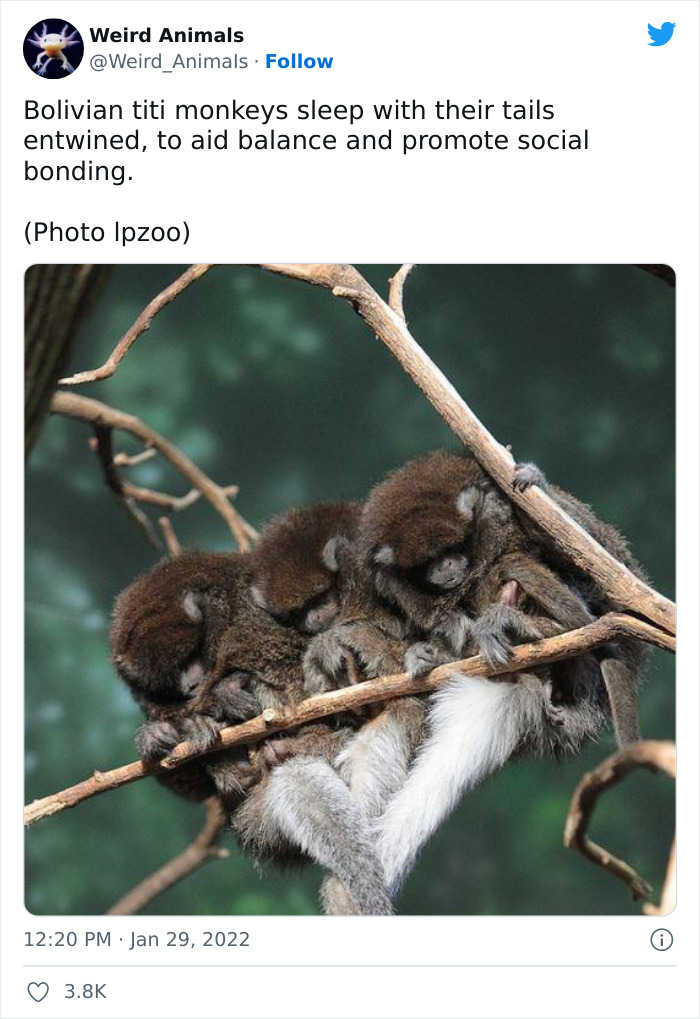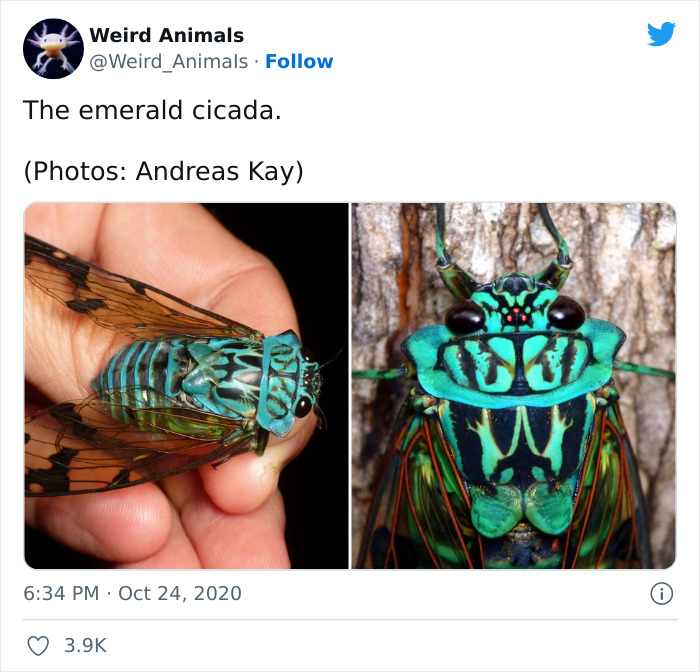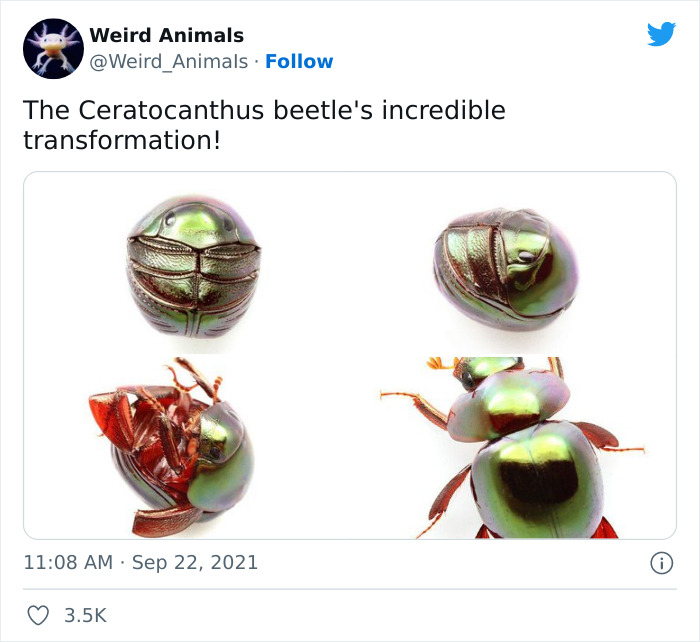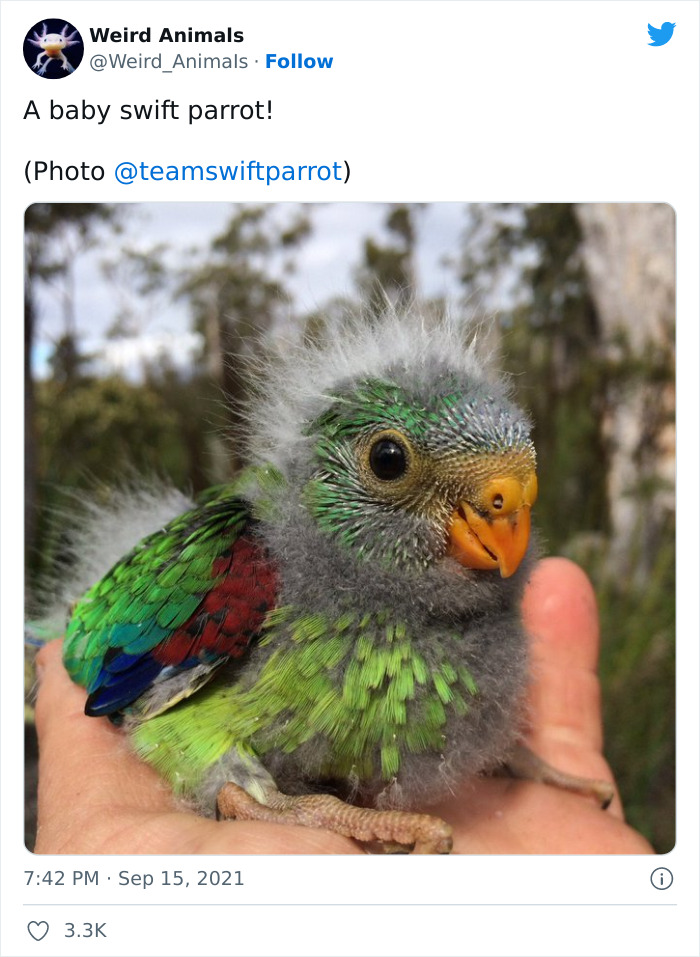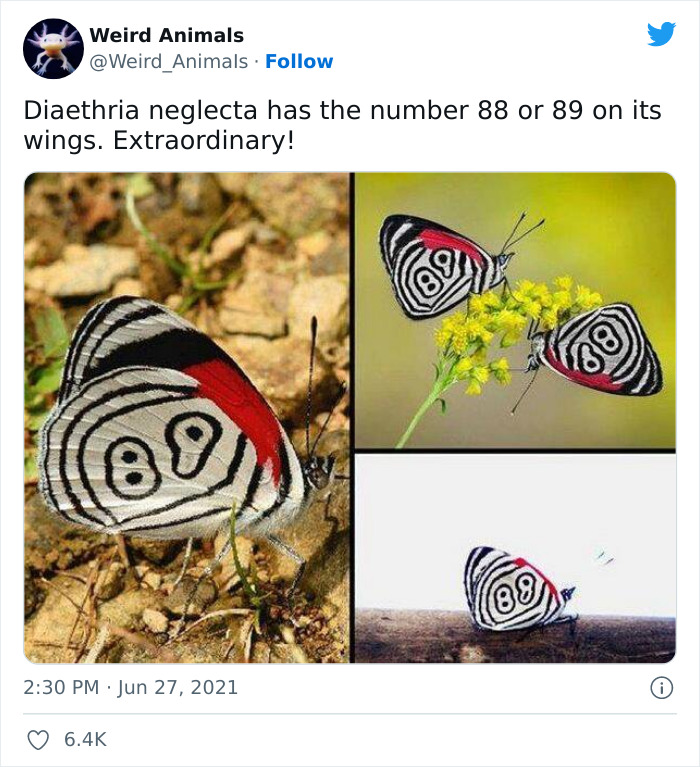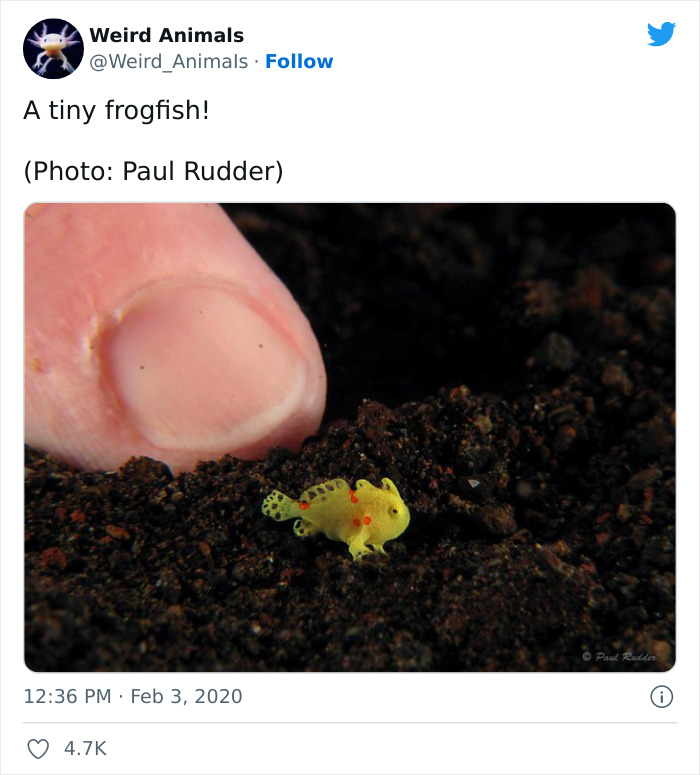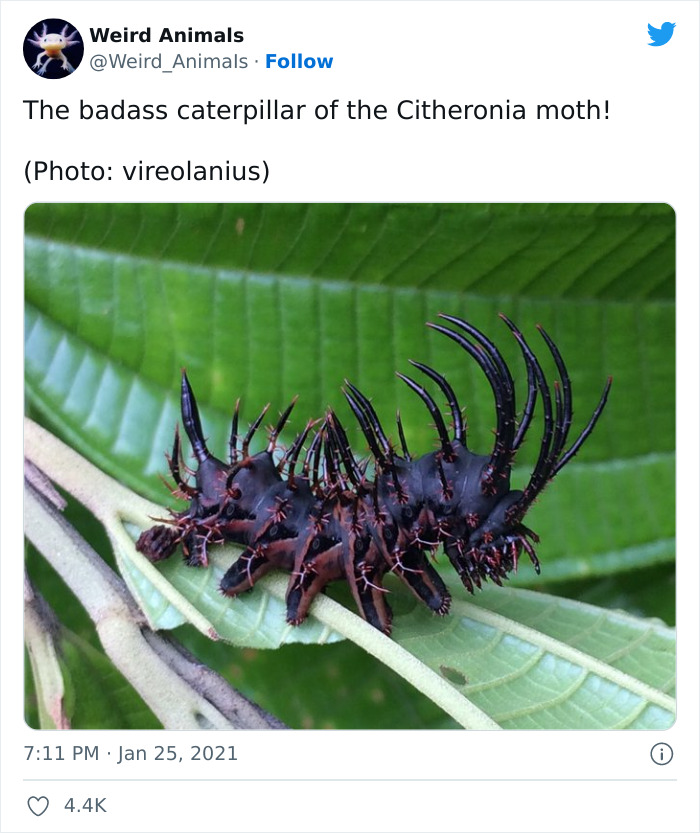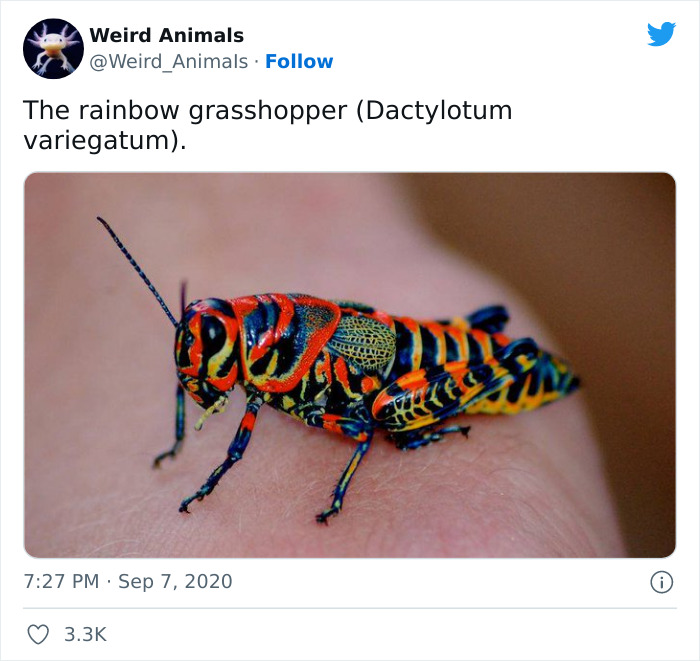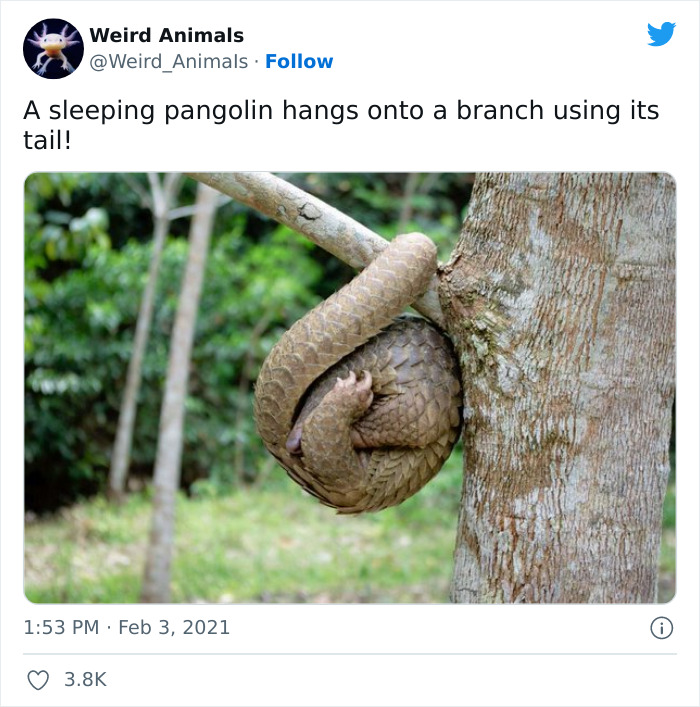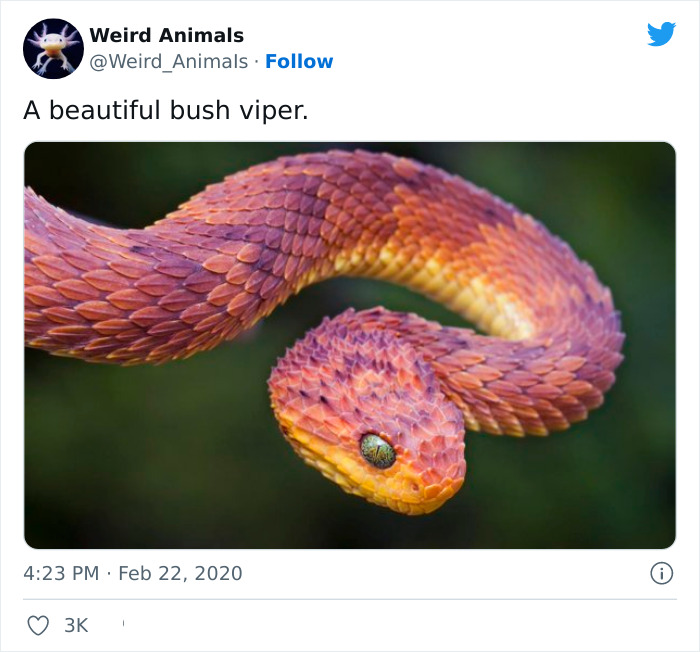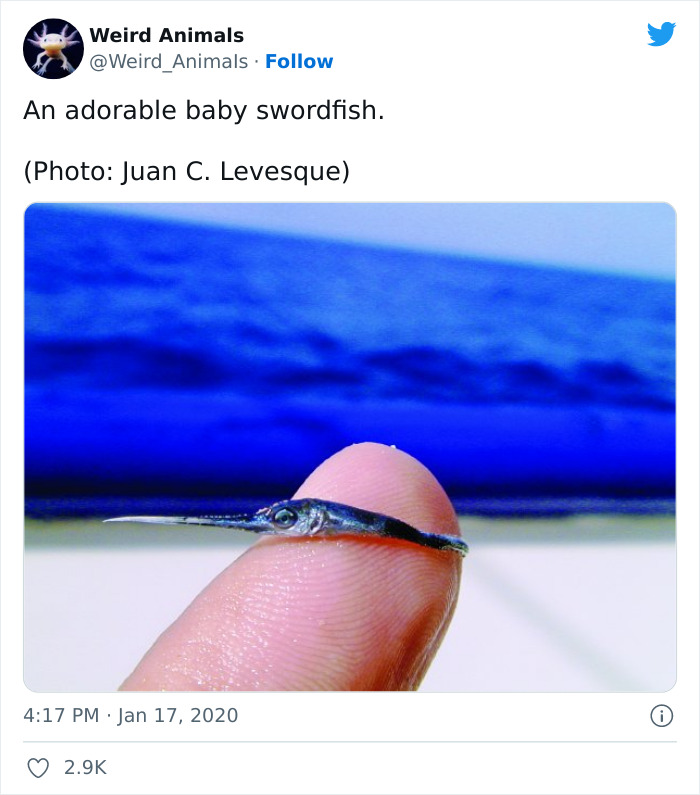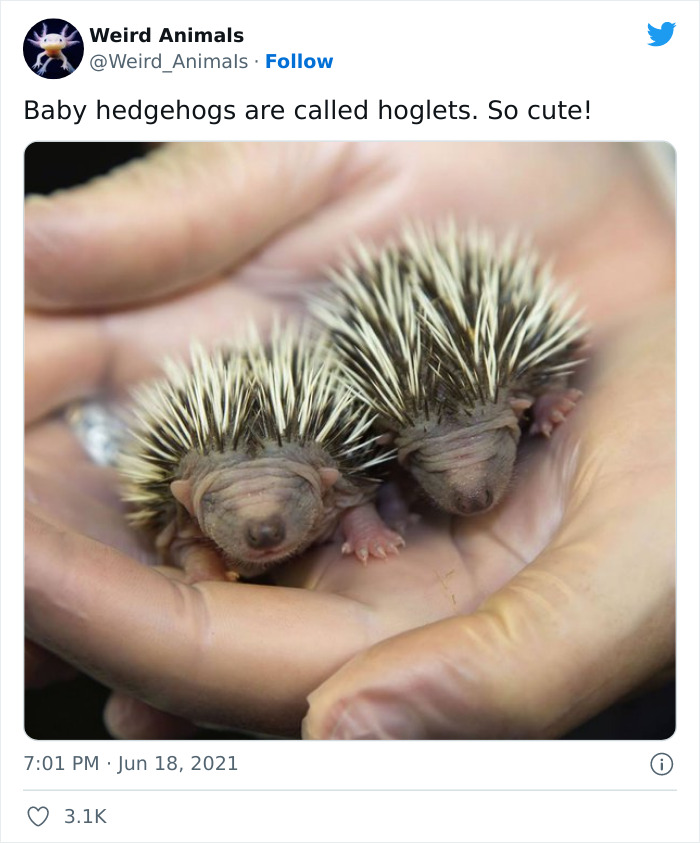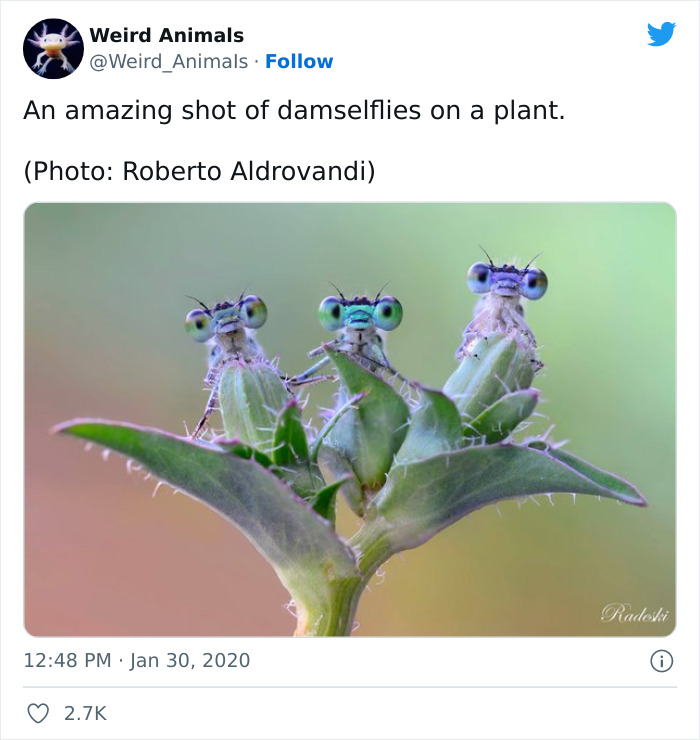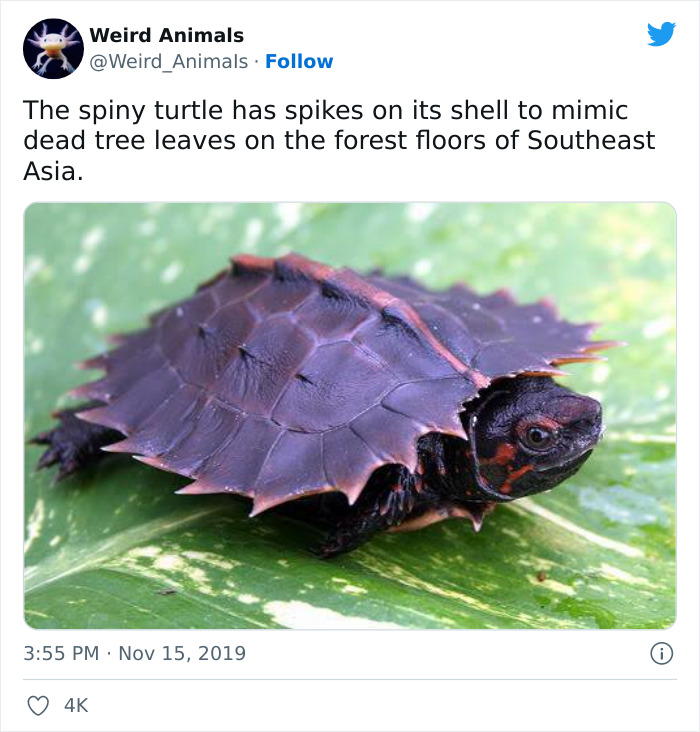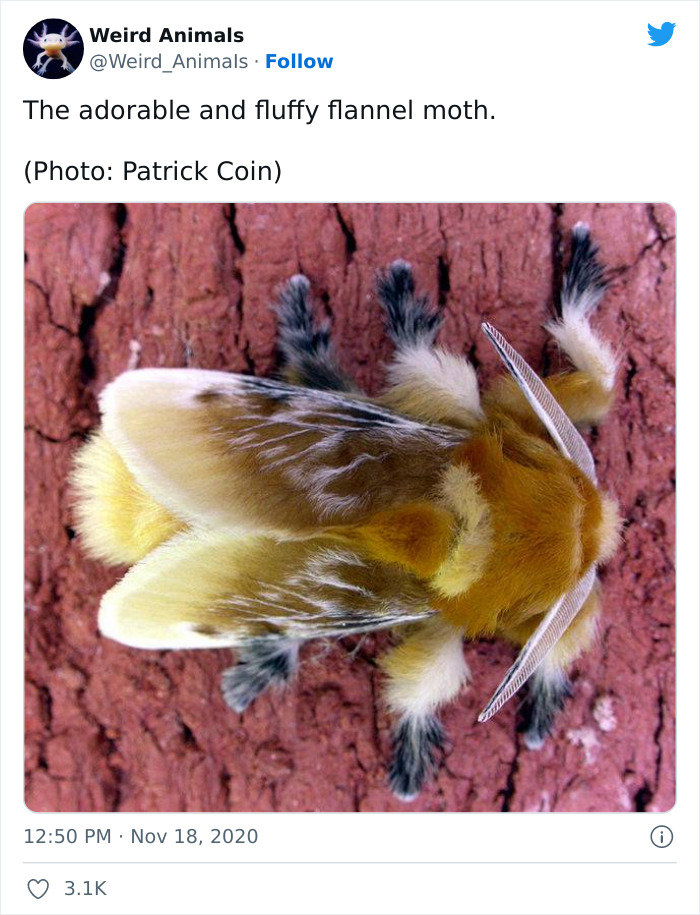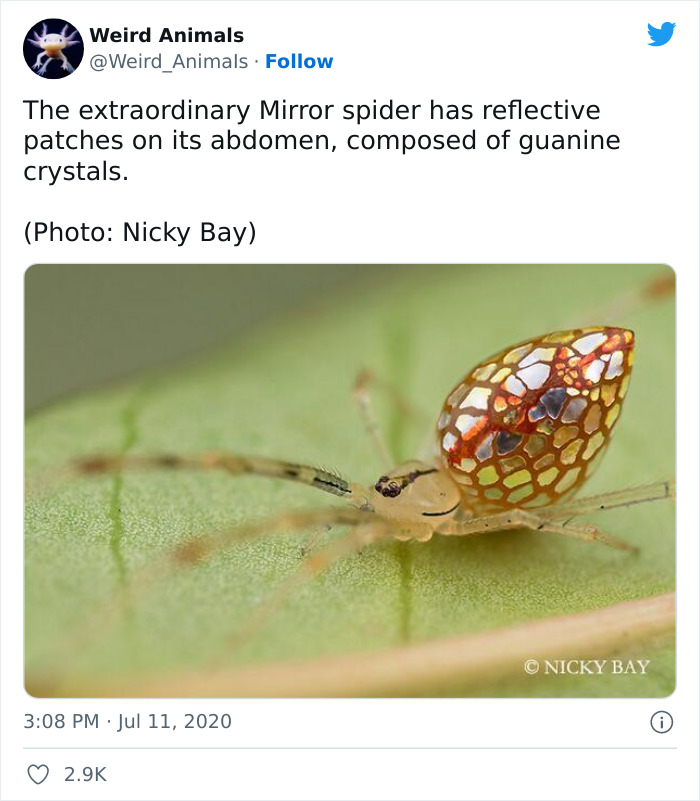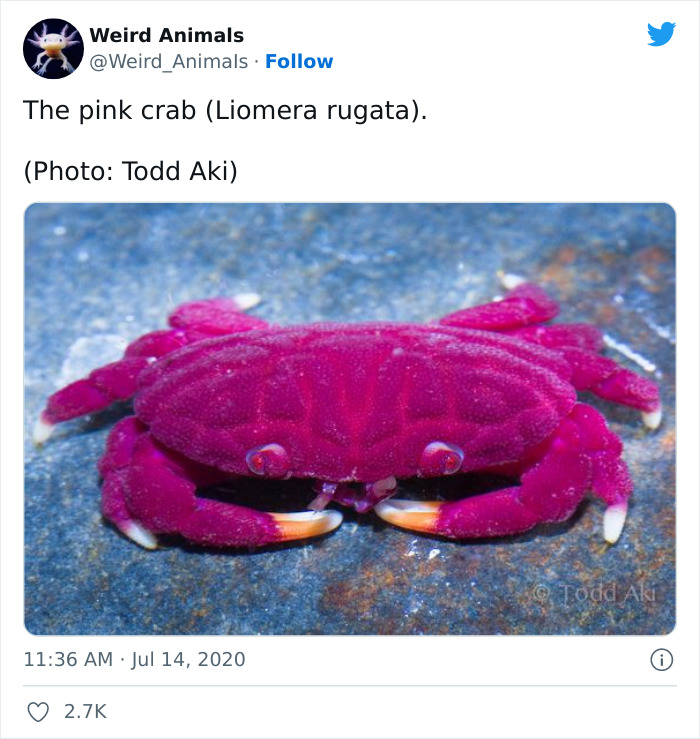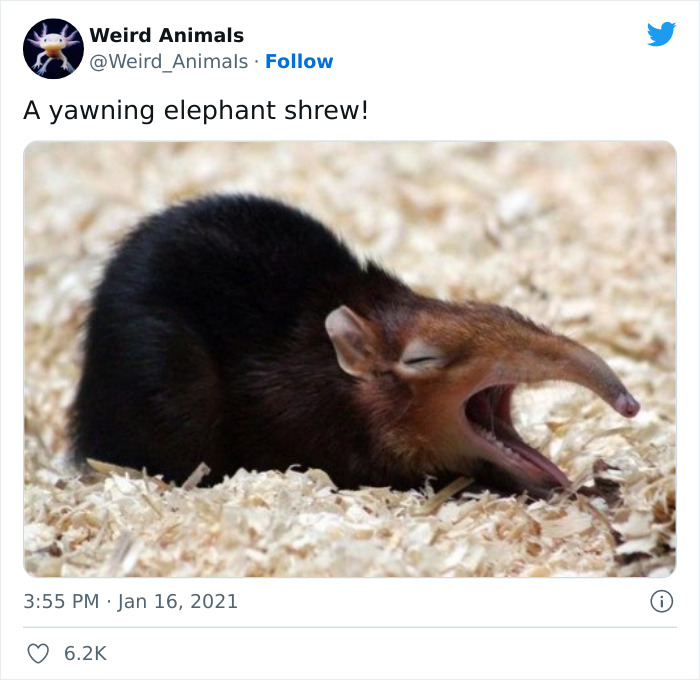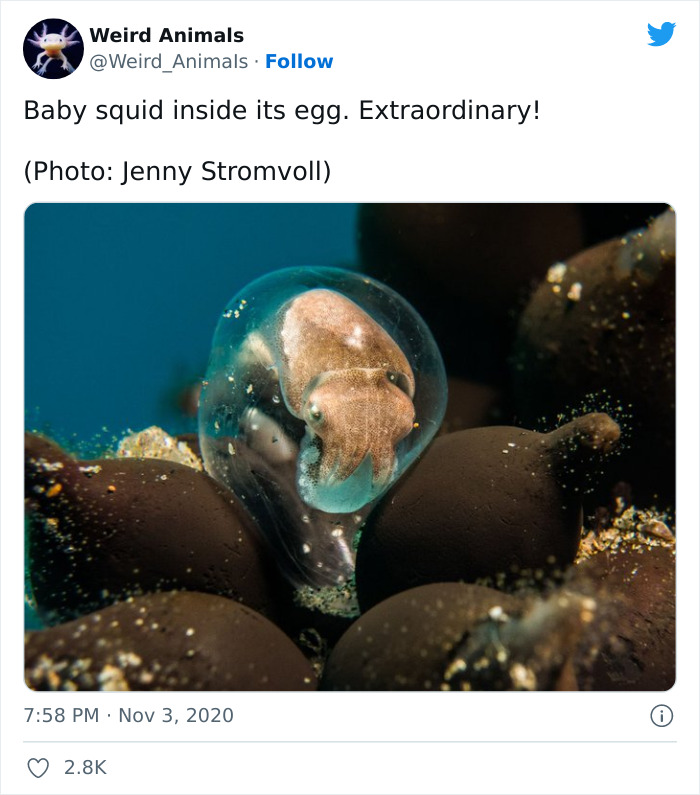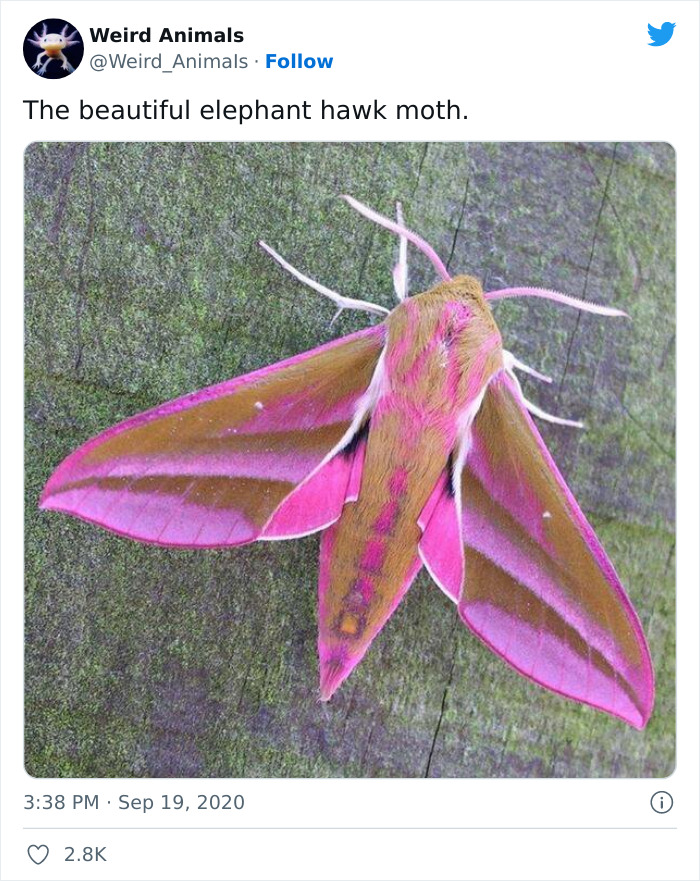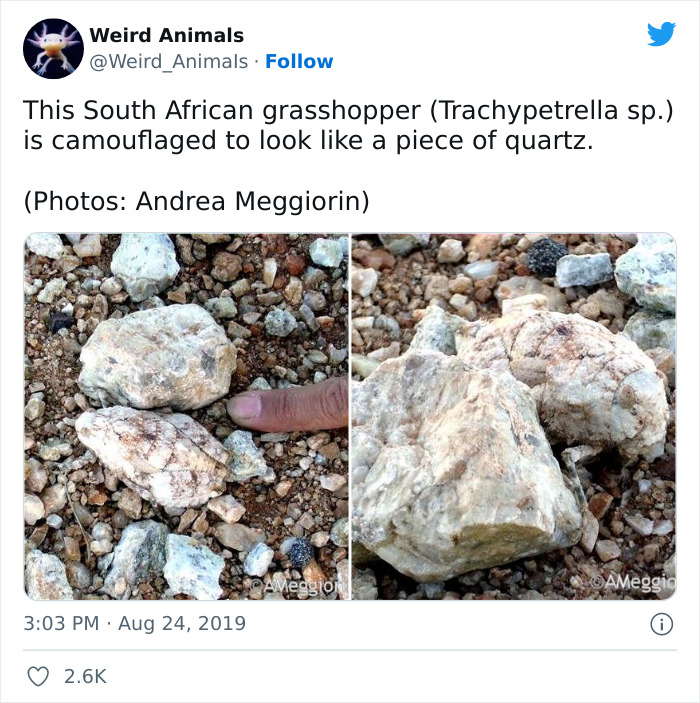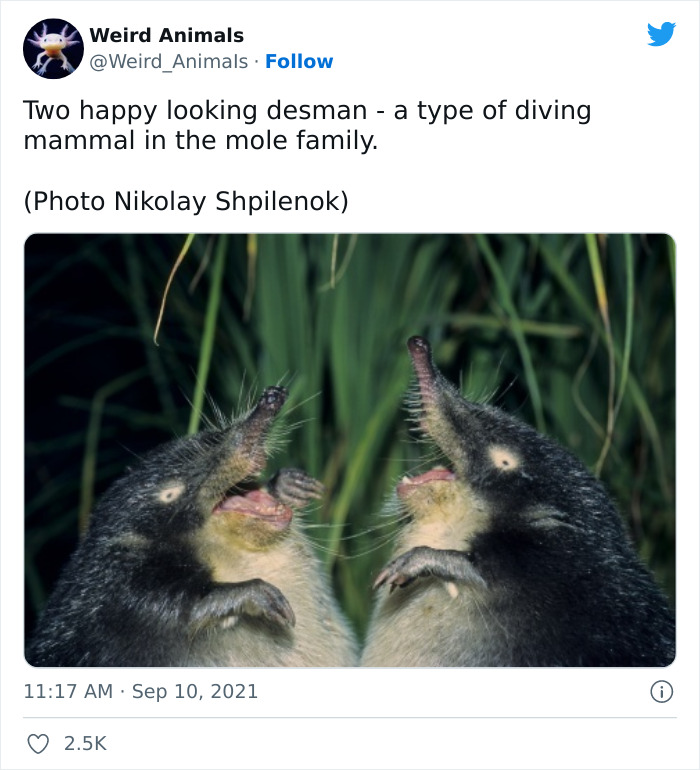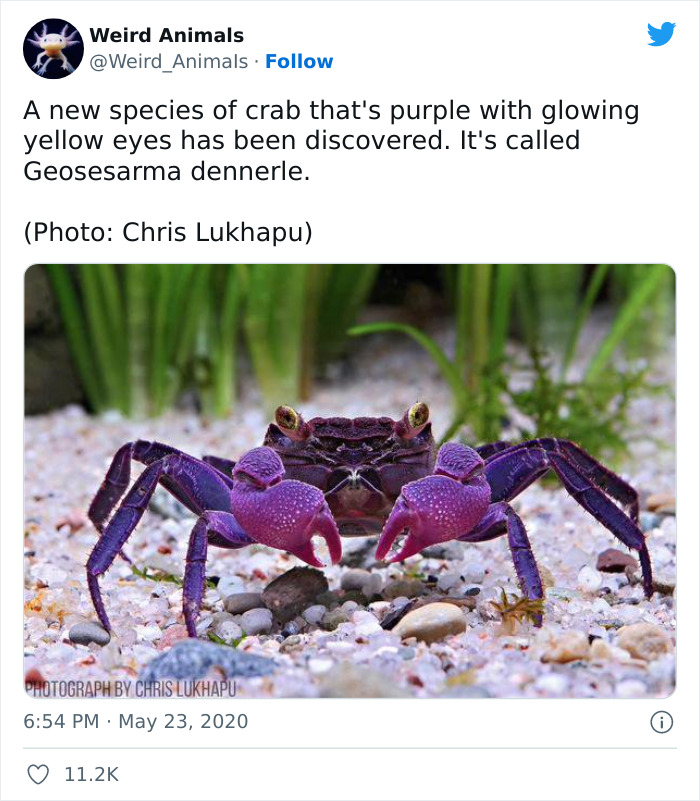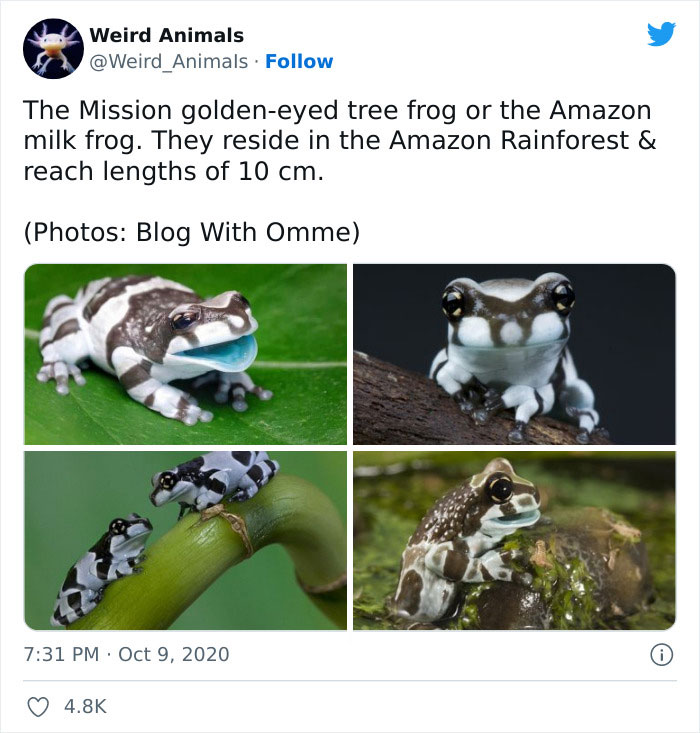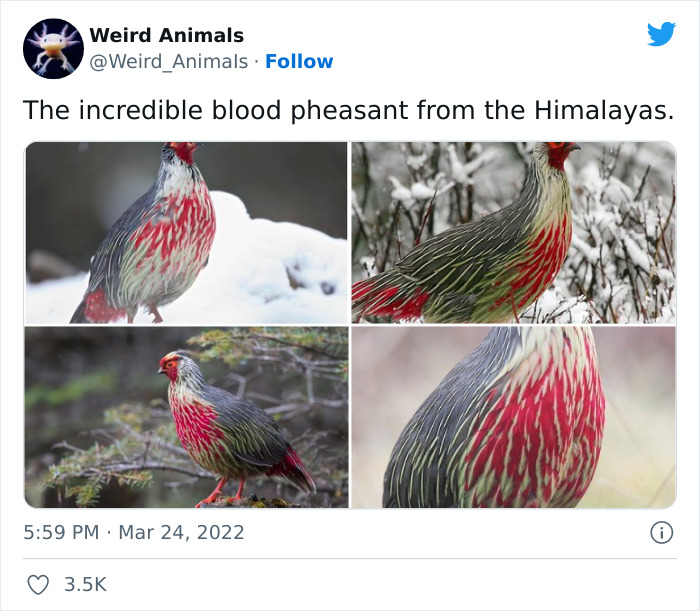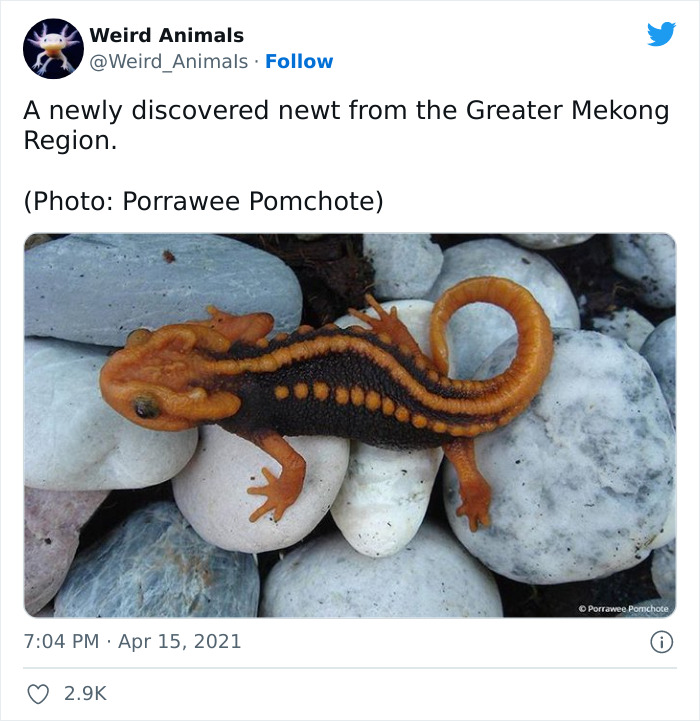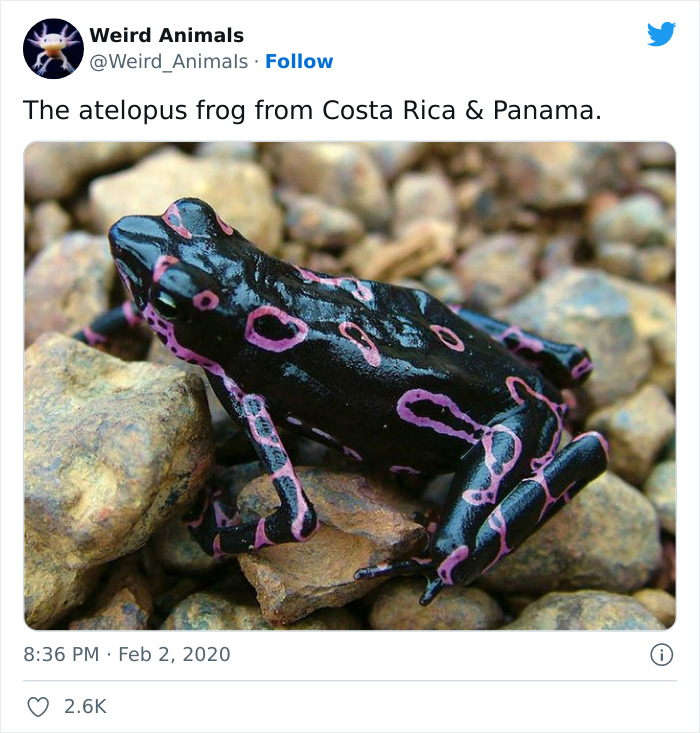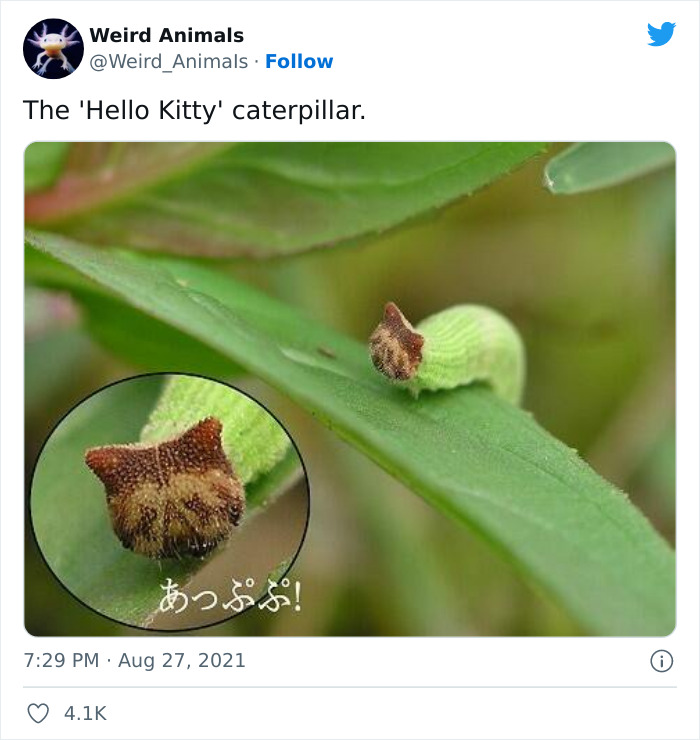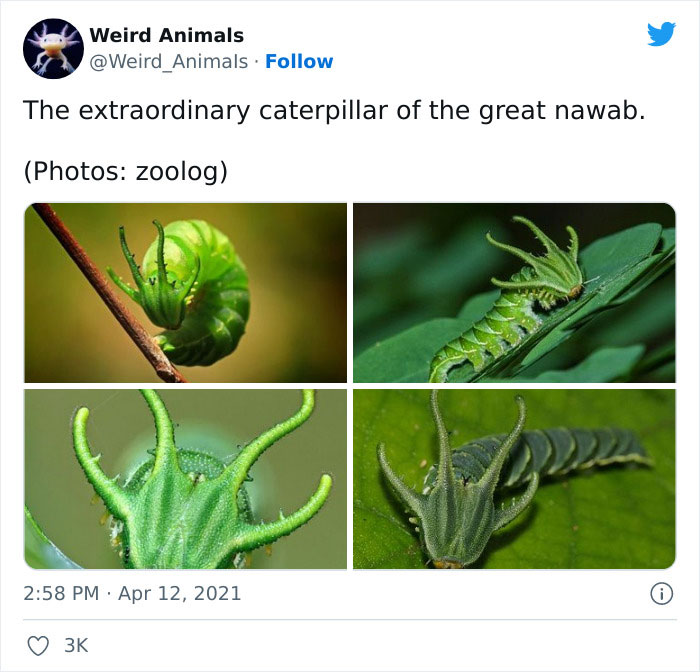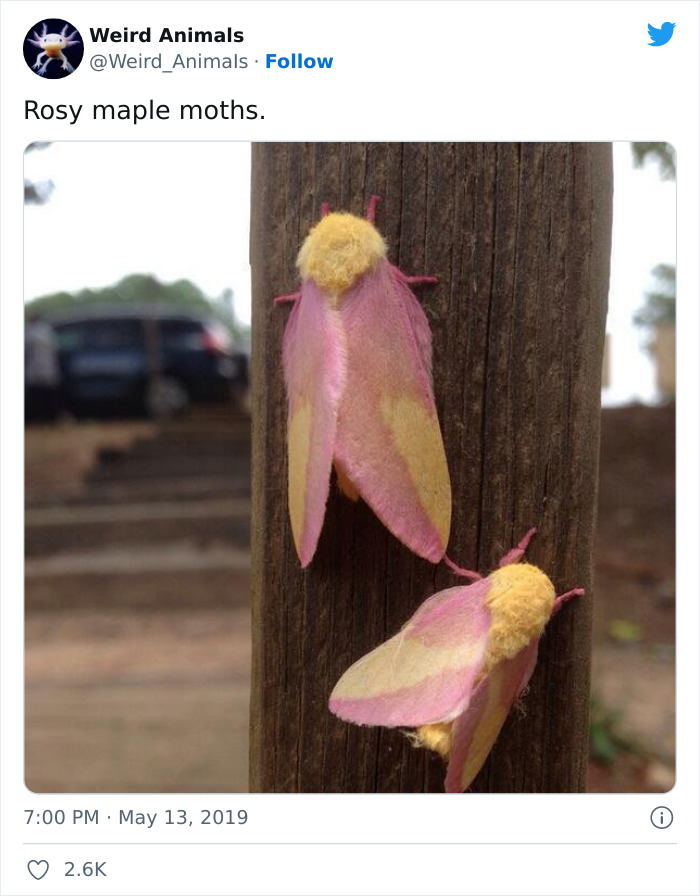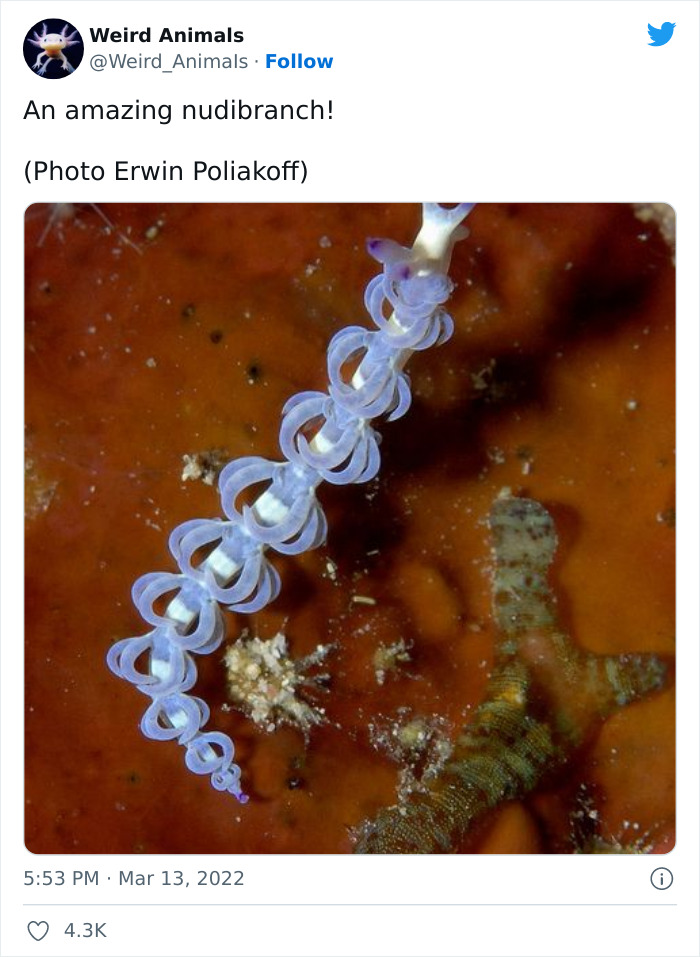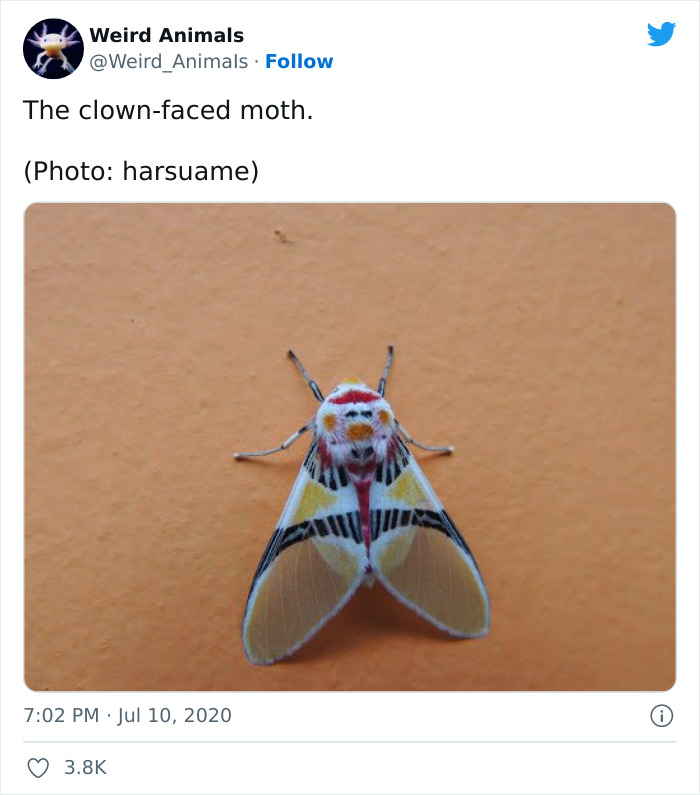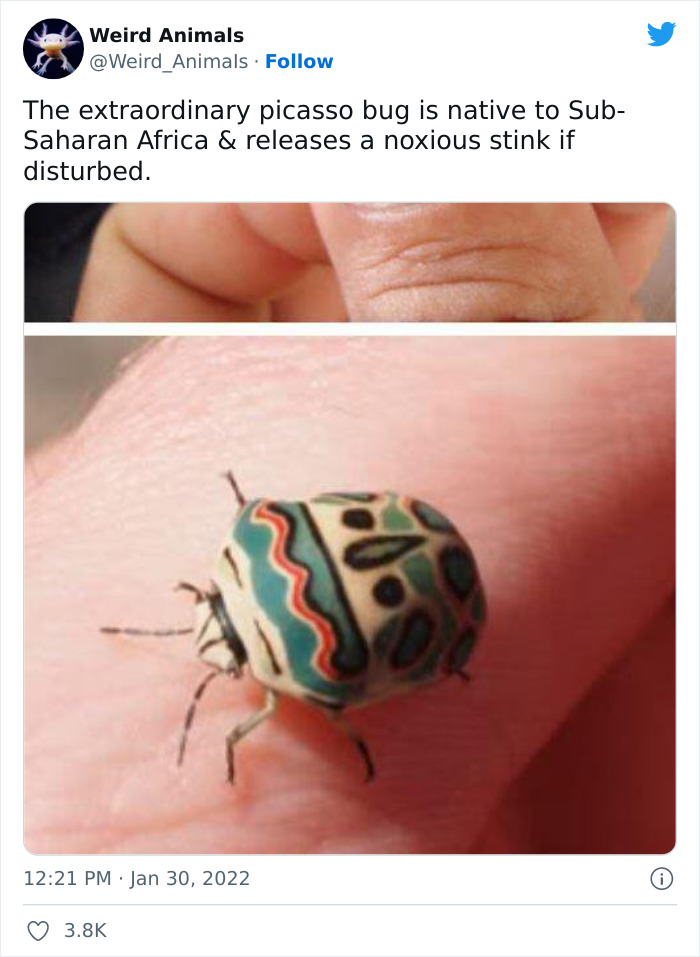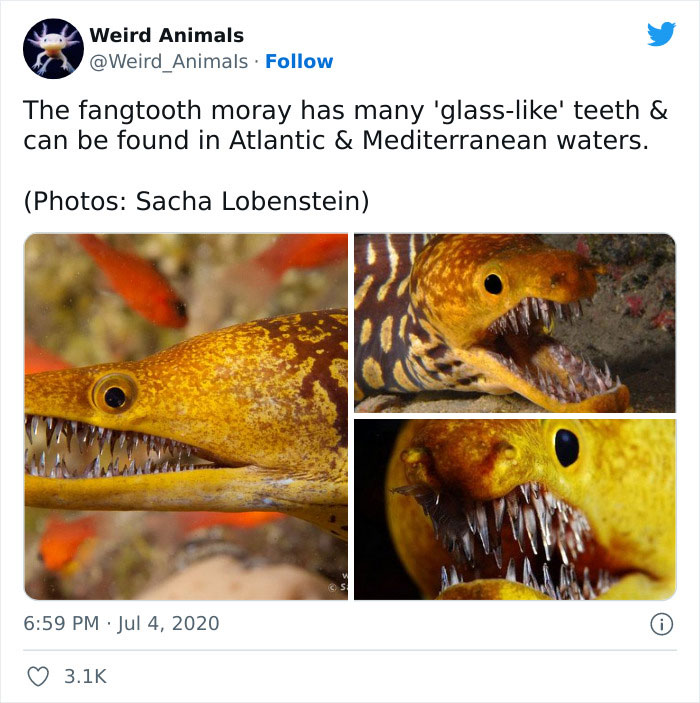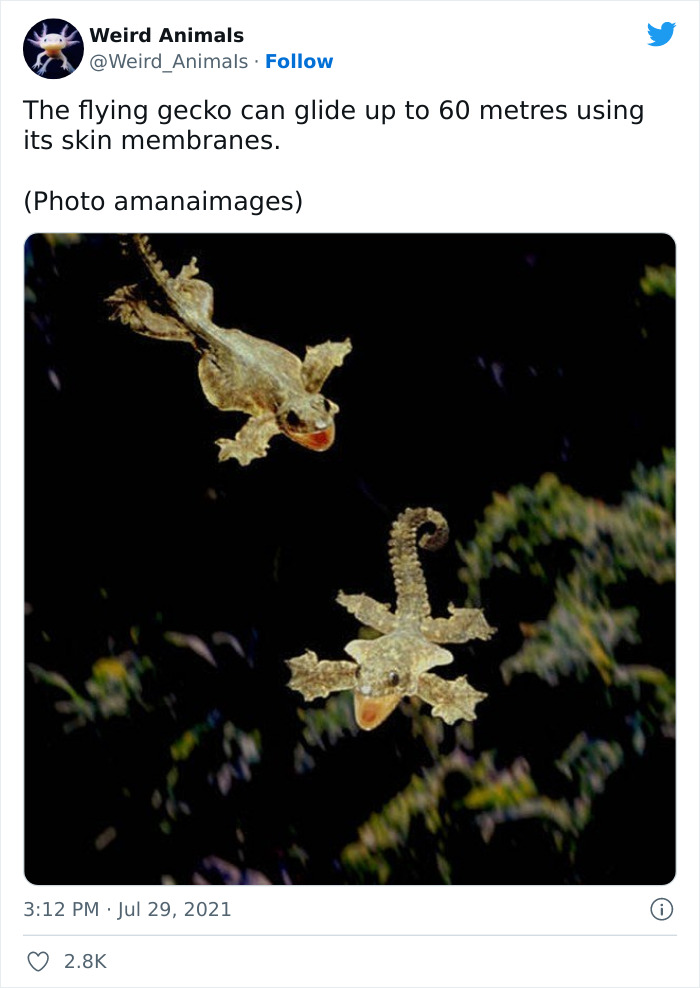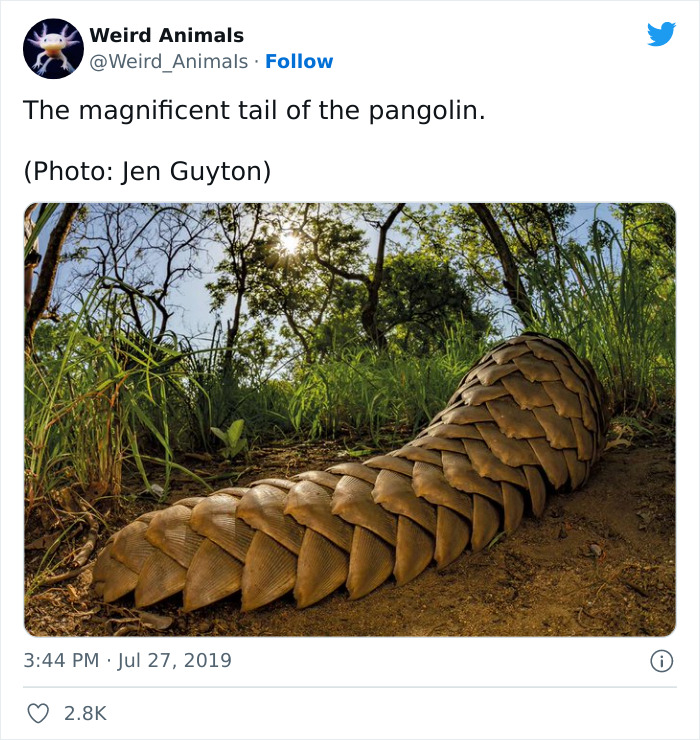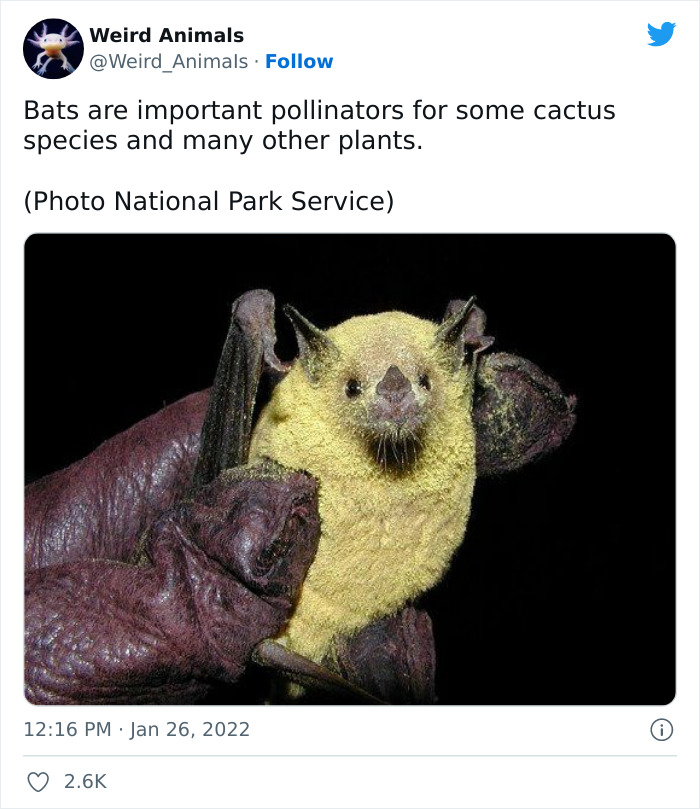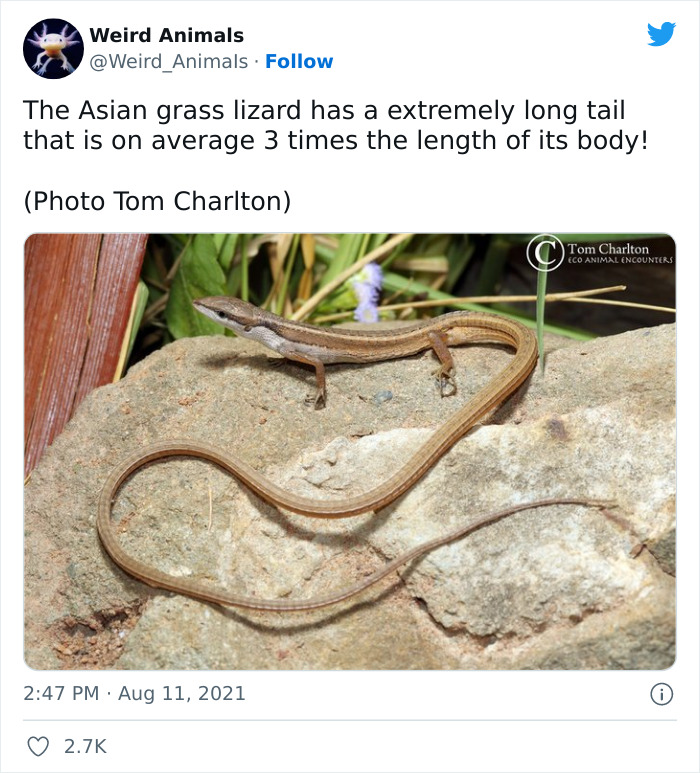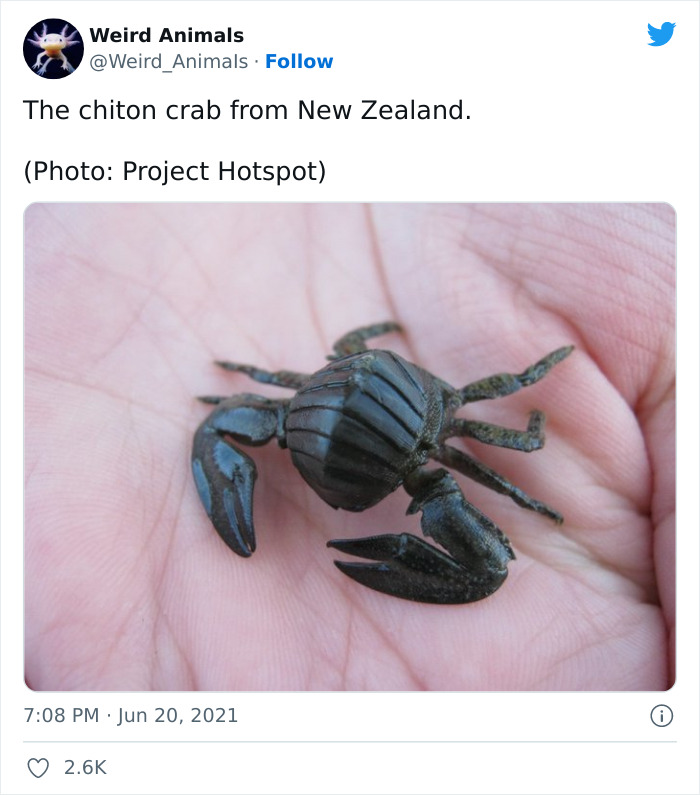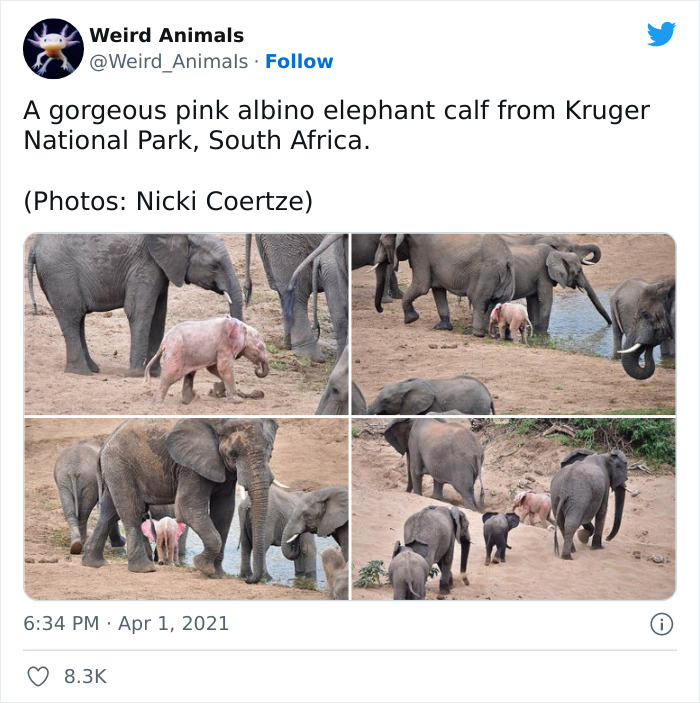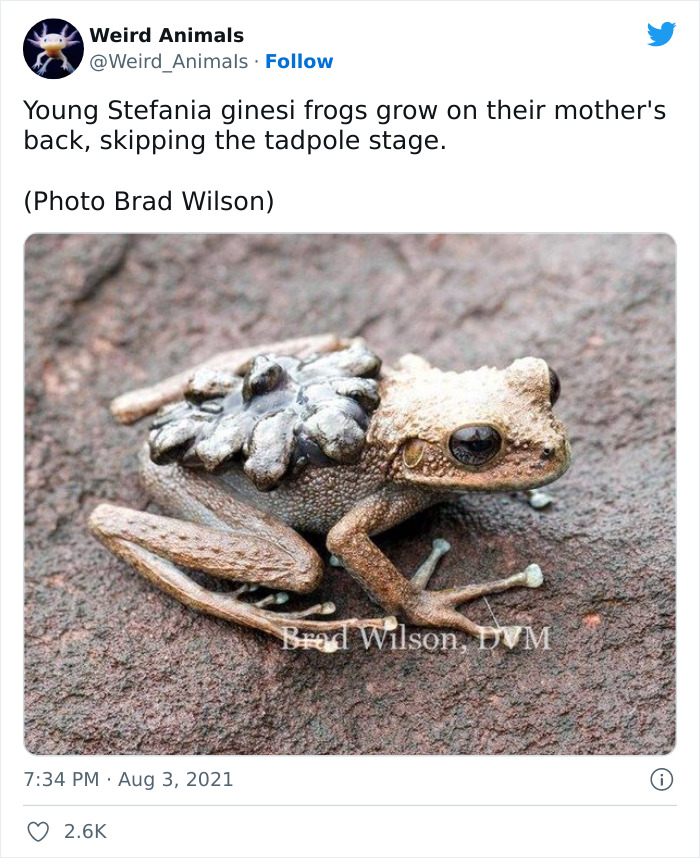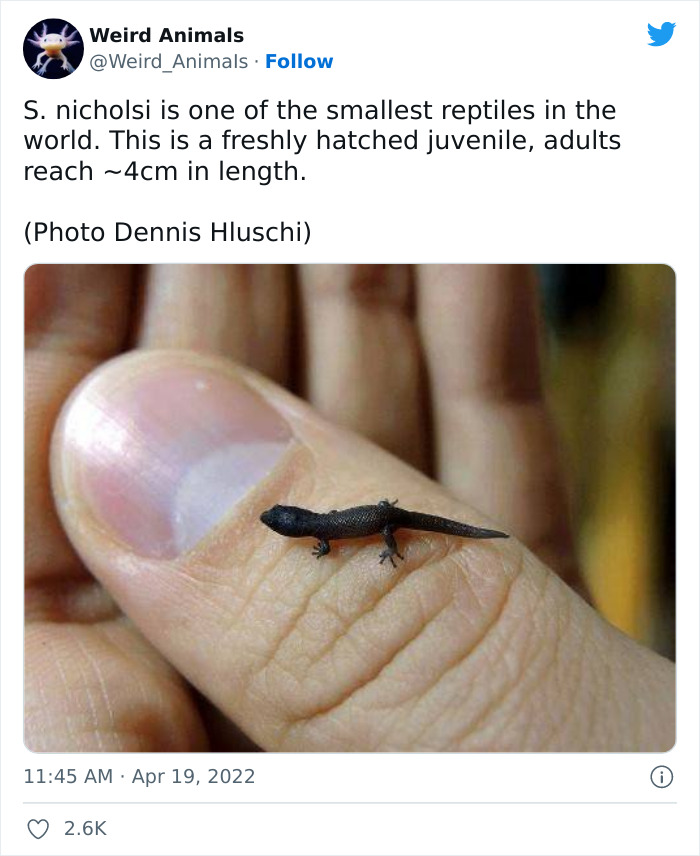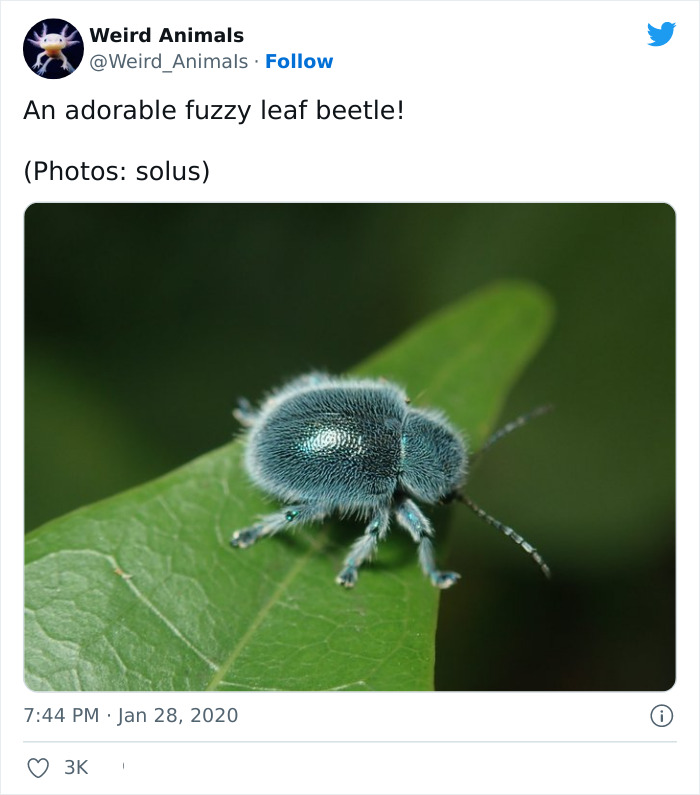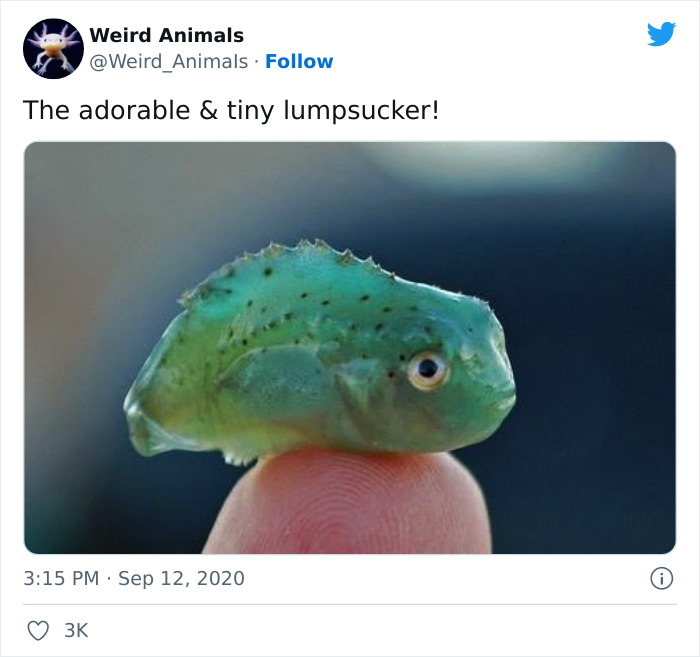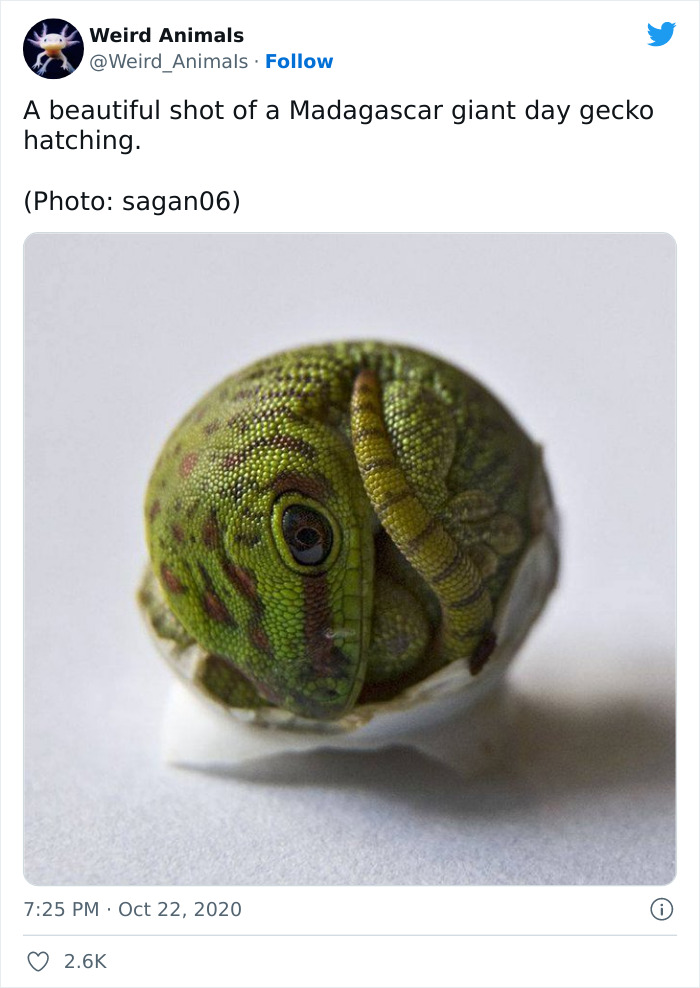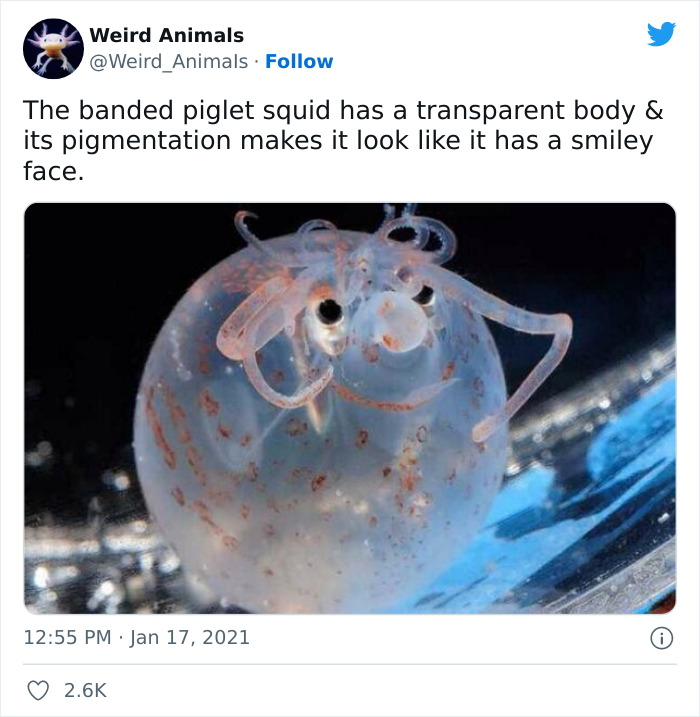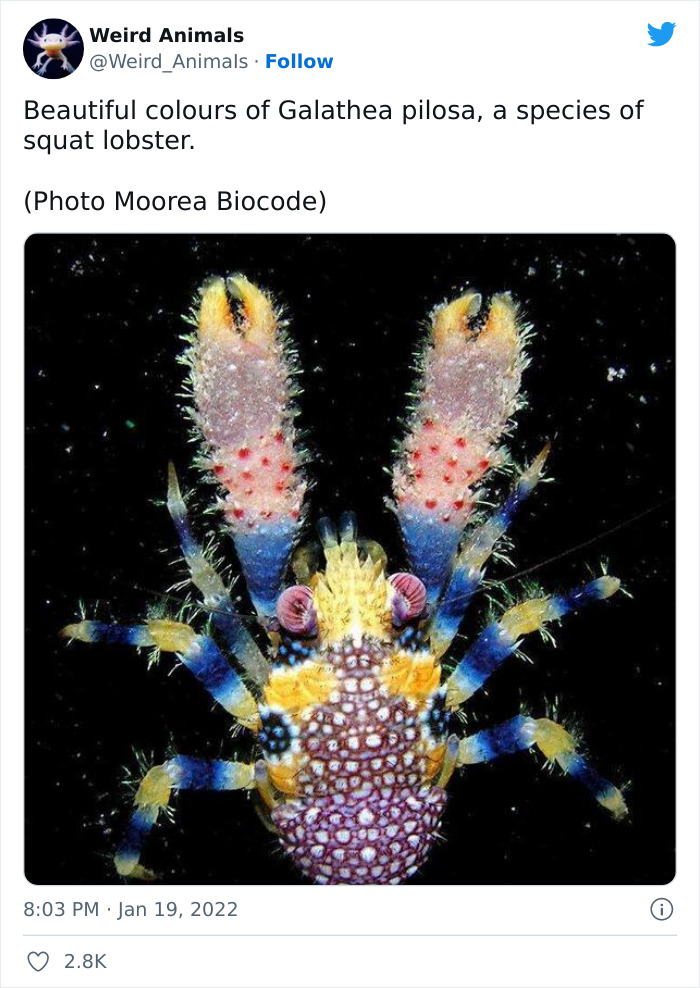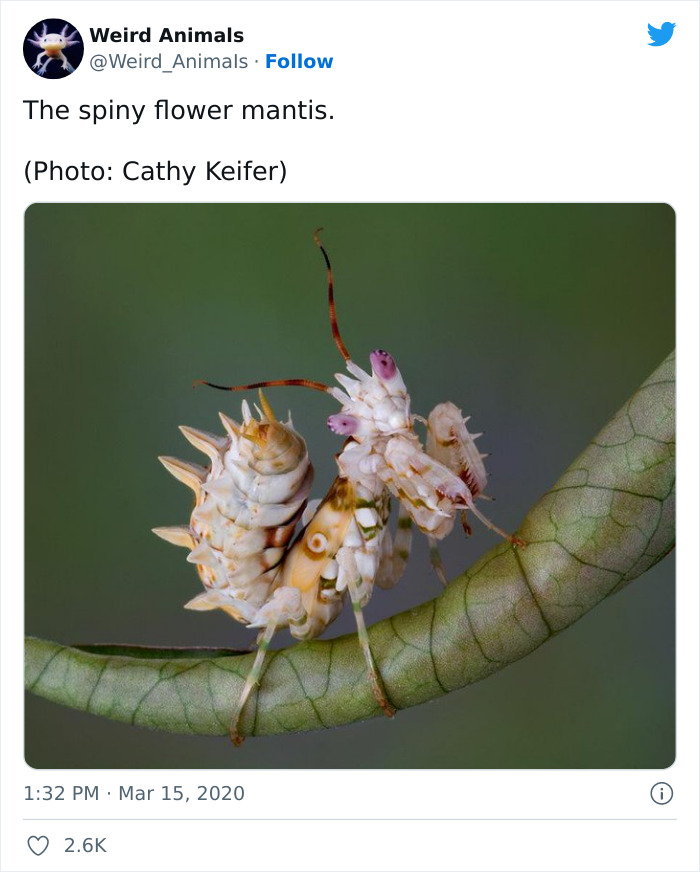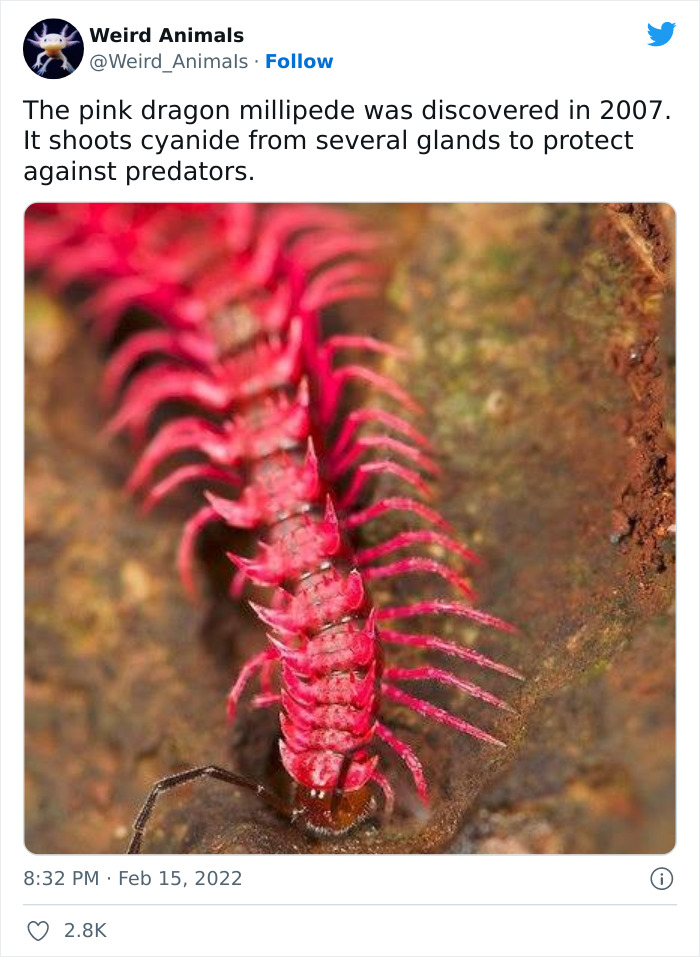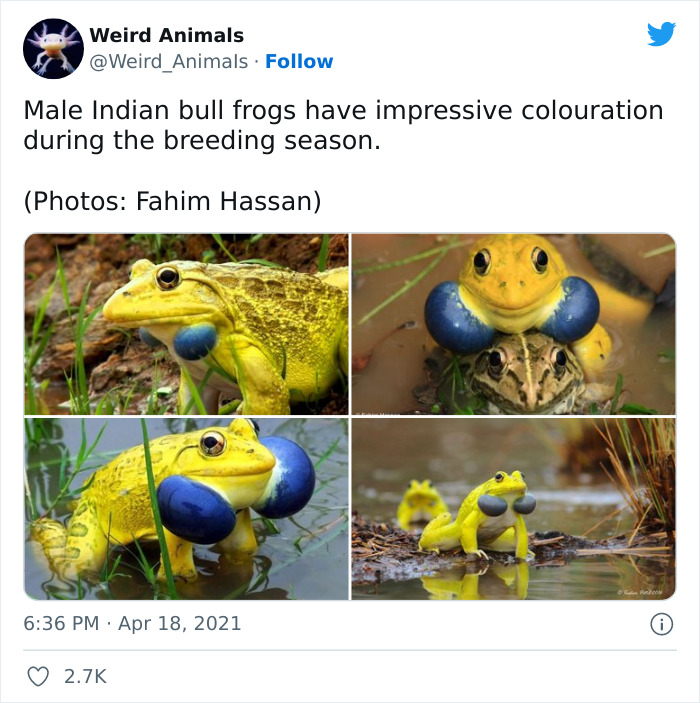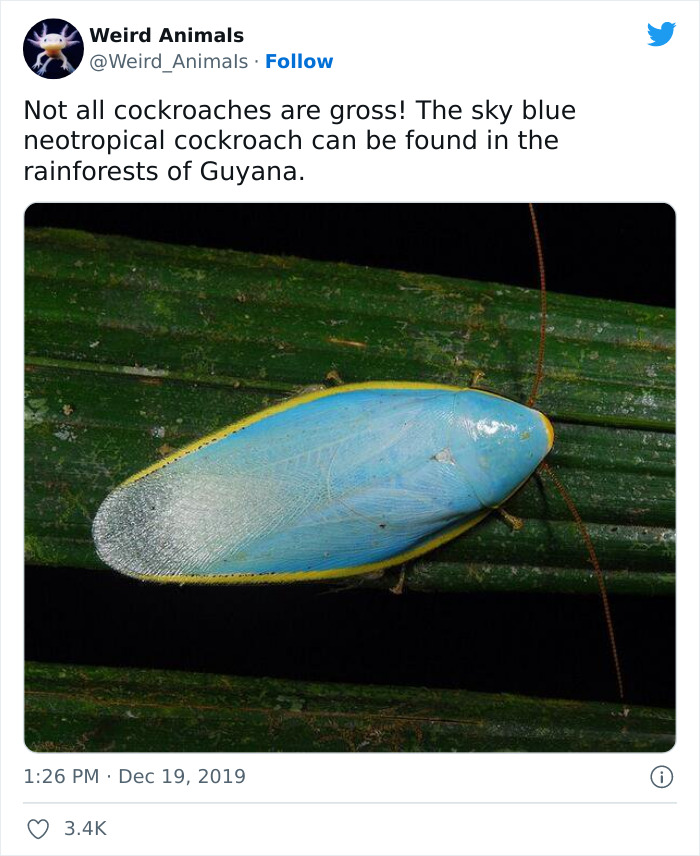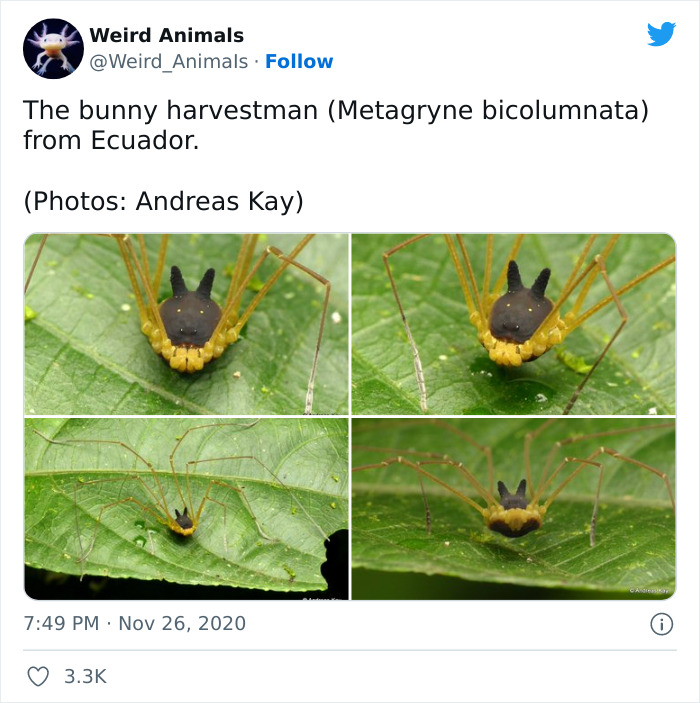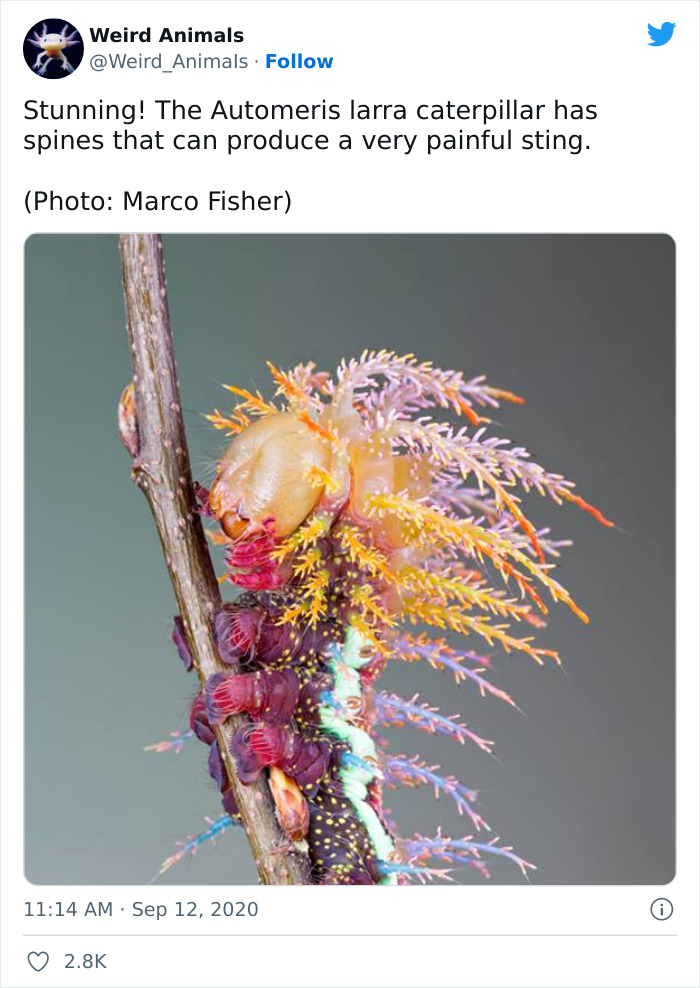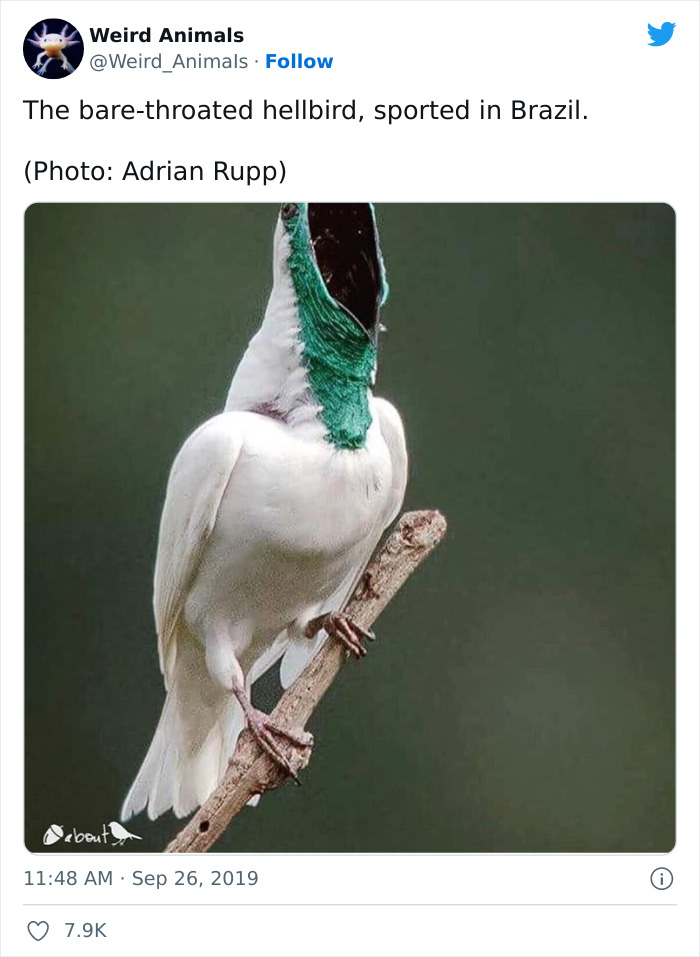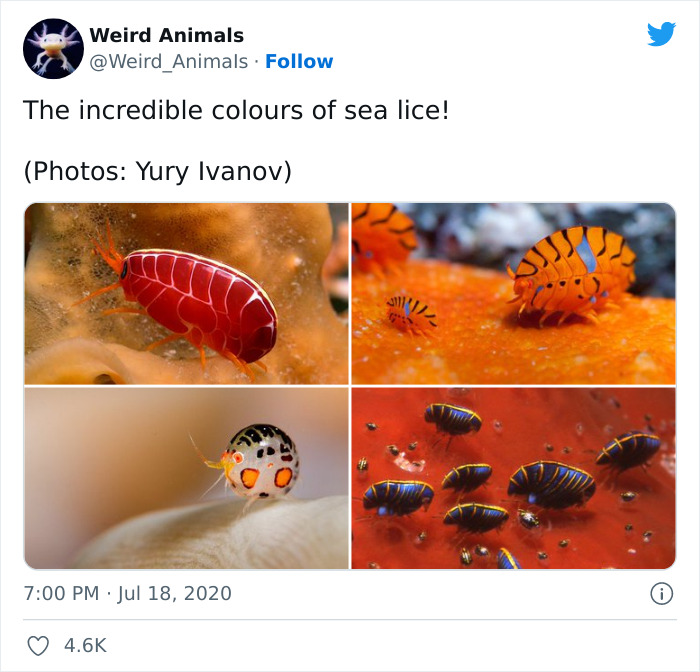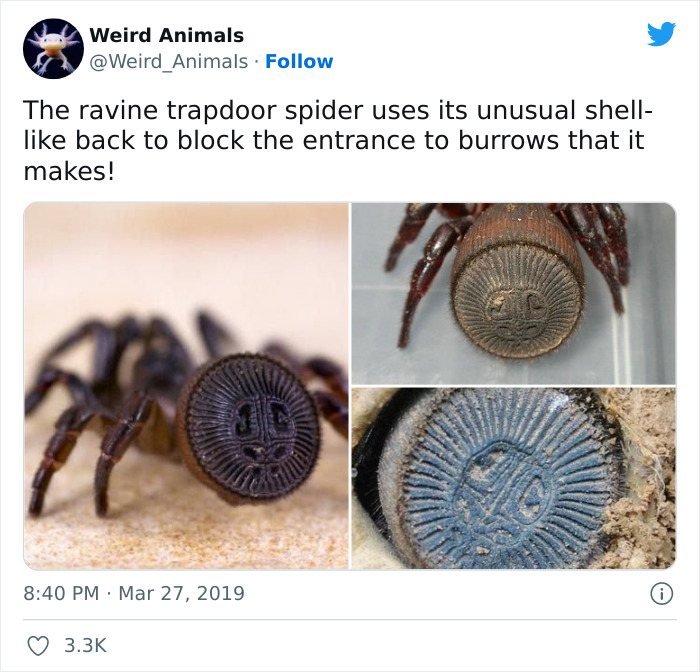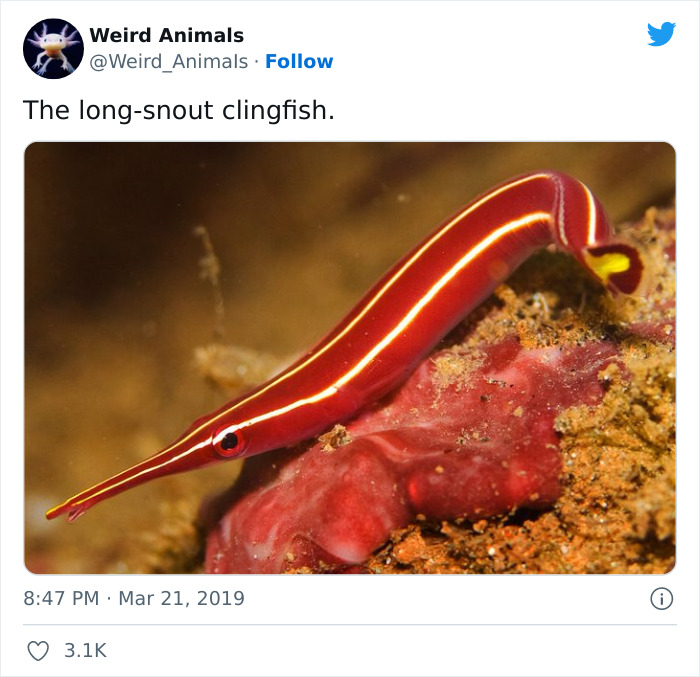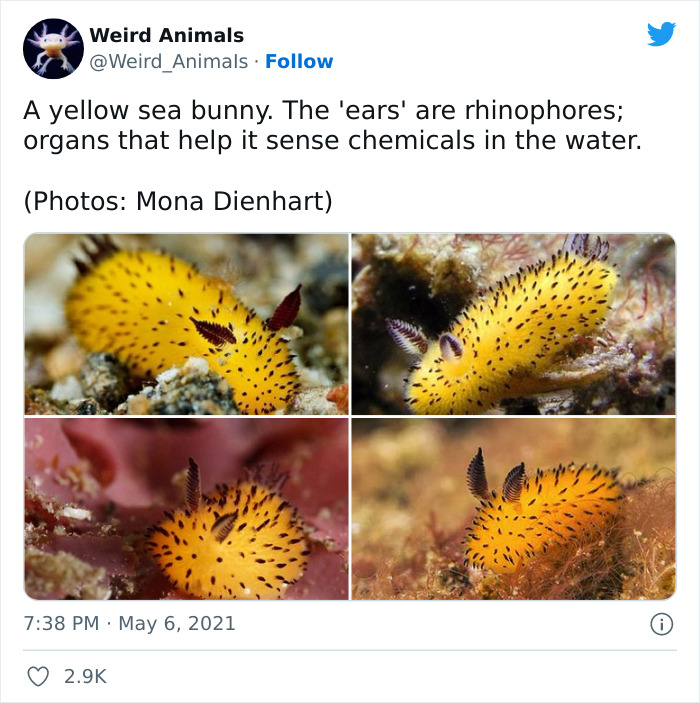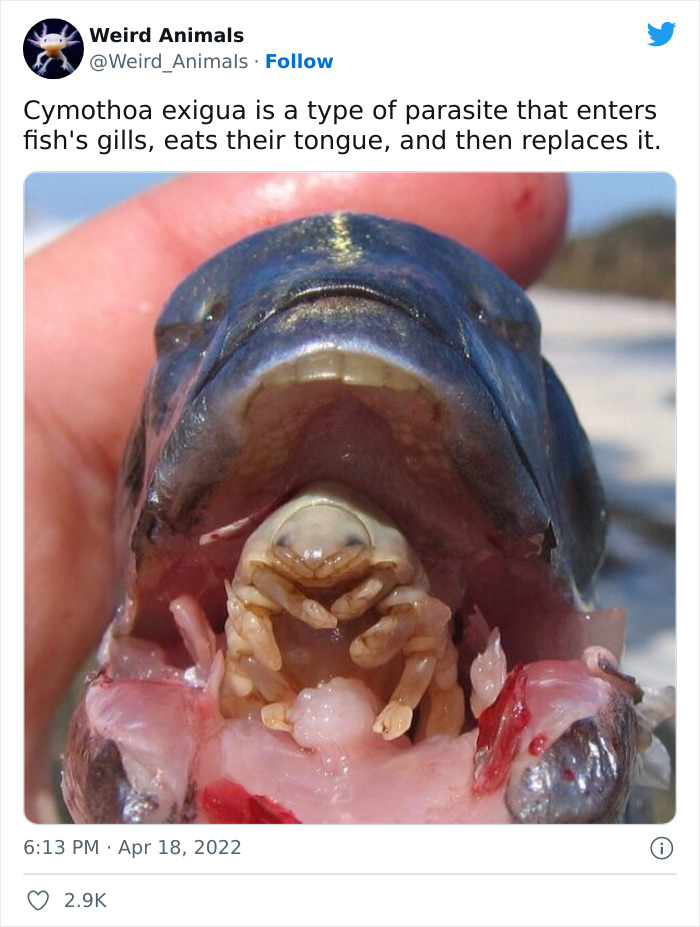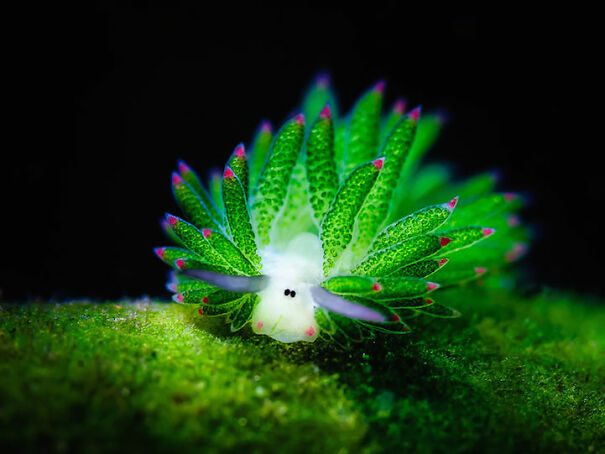Unlike the oceans, almost every corner of Earth's land has been visited by people. Using the latest technology, scientists can even explore remote places that are difficult for us to travel to, such as areas that are very cold, very wet, very dry, or very high.
But take a regular person a bit further away from their home, and we will soon start feeling as if we're entering the great unknown. Terra incognita for our knowledge and experience.
So in an attempt to accentuate the beauty of Mother Nature, let's take a look at the wonderful creatures who inhabit it. The Twitter account 'Weird Animals' is excellent for such a task. It posts photos of species most have never even heard of, and they really help to achieve the goal of 'Weird Animals,' specified in the account's bio section, which is to highlight the wonders of evolution and the extraordinary diversity of life.
More info: Twitter
This post may include affiliate links.
As you can see, our planet really is home to an incredible diversity of creatures.
According to the team at Our World in Data, a scientific online publication that focuses on large global problems such as poverty, disease, hunger, climate change, existential risks, and inequality, there are several ways we can answer the question of how much life is on Earth.
We could, for instance, count the number of species, population sizes or the number of individual organisms, but these metrics can make it difficult to compare between taxa: small organisms may have a large population but still account for a very small percentage of Earth's organic matter.
and this solves the ancestral question: they are black with white stripes
For a meaningful comparison, we can, instead, look at biomass—it is measured in tonnes of carbon as it is a key building-block of life. In this case:
- plants – mainly trees – dominate Earth: they account for more than 82% of biomass;
- surprisingly in second place is the life we cannot see: tiny bacteria sum up to 13%;
- whilst our perceptions are often focused on the animal kingdom, it accounts for only 0.4%;
- humans make up just 0.01% of biomass, so we'd need about 70 trillion of us to match the Earth’s collective biomass.
These are the kittens! Adults look fierce and fabulous. caracal-62...47ee80.jpg 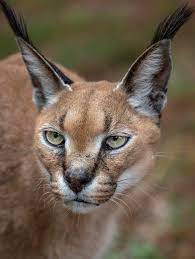
But if we want to get more specific, then we can start with the International Union for Conservation of Nature (IUCN) Red List. It tracks the number of described species and updates the figure annually based on the latest work of taxonomists.
In 2021, it listed 2.13 million species on the planet, including 1.05 million insects, over 83,000 mollusks, over 11,000 birds, and over 6,000 mammals. These figures, however, might be a bit too high. This is because some species end up being synonyms – the description of already-known species, simply given a separate name.
There is a continual evaluation process to remove synonyms (and most are eventually), but often, species are added at a faster rate than synonyms can be found and removed.
To get a sense of how big this problem is, consider this: one study estimated that around 20% of the described species were undiscovered duplicates. The paper estimated that the 1.9 million described species at the time was actually closer to 1.5 million unique species.
If we were to assume this 20% figure to be true, our 2.12 million described species might actually be closer to just 1.7 million.
Either way, academics believe that these numbers are still an underestimate. One of the most widely-cited figures comes from Camila Mora and colleagues. They suggest that there are around 8.7 million species on Earth today, with 2.2 million of them living in the ocean.
As Robert May said in a paper published in Science:
"If some alien version of the Starship Enterprise visited Earth, what might be the visitors' first question? I think it would be: 'How many distinct life forms—species—does your planet have?' Embarrassingly, our best-guess answer would be in the range of 5 to 10 million eukaryotes (never mind the viruses and bacteria), but we could defend numbers exceeding 100 million, or as low as 3 million."
At first, it doesn't seem like a big deal, but the fact that there are so many species that we've yet to discover has real consequences for our ability to understand changes in global biodiversity and the rate of species extinctions. If we don't know that certain species exist, we also don't know that they might have, or will soon, disappear. Some animals will inevitably go extinct before we realize that they existed.
Not rodents, closely related to moles, exclusively found in Africa, lifespan of 4 - 5 years.
Arent these like, poisonous? Hey Raquelle wanna sit on this comfortable sofa?
Load More Replies...Well you can touch them, but it’ll be the last thing you’ll ever touch!
Load More Replies...So fascinating! They’re not actually an individual, they’re a colony. Absolutely amazing and beautiful. Not very good to touch though.
They can't actually swim so that fin on top acts as a sail, letting them catch the wind and move around the oceans.
I see these in Florida when i visit sometimes. One year they had a Man-o-War warning for the beach. There were literally thousands of then all over the beach just drying int he sun. just walking barefoot was horribly dangerous cuz of their toxin in the tendrils.
Not sure if it’s the same species but when I went to the Gulf of Mexico there were tons that washed onto the beach. Locals would walk by and step on them popping them like a balloon. It was quite loud! (They are very venomous and there’s no chance of saving them once they wash ashore. Popping them helps them dry up and be less of a beach hazard.)
I’m pretty sure this is the one that could kill you with one single touch
Trust me--you don't want to get near that thing. They will hurt you!!
In French we call them "vessies de mer" which translates to "sea bladder". Very weird but on point don't you think XD
Common on Florida beaches. Children think they are balloons and want to pick them up. Very, very painful. What you don't see in the picture are the long, thin stingers that are used to paralyze their prey.
No looks harmless its not is like a jellyfish with huuuuuuuuuge tentacles
I hope they aren't endangered because of us. Because how could anyone hurt something so beautiful?
This is the only picture I have found where it's body is flat. Yet the picture looks real, so I guess the snake is able to flatten if the are scaling an edge and need to keep balanced.
I didn't see the Dumbo octopus on here. Please check them out they are so cute
The ravine trapdoor spider creeps me out. Ugh I wish I could unsee that!
So are we voting for things because we genuinely had no idea they existed? Or because they are cute? Regardless, I’ve been watching wildlife documentaries for decades and it still blows my mind that there are creatures out there I have never heard of. I’m looking at you, bobbit worm, Blue planet 2017.
Pro tip: If you want something otherworldly for your next sci-fi media (book, movie, game, what have you) look no further than your own planet!
Actually I found least of the animals weird, but I follow that Twitter account now.
Such a resplendent list... It also confirms my suspicion that my demise will more than likely happen whilst trying to pet something I shouldn't...
I didn't see the Dumbo octopus on here. Please check them out they are so cute
The ravine trapdoor spider creeps me out. Ugh I wish I could unsee that!
So are we voting for things because we genuinely had no idea they existed? Or because they are cute? Regardless, I’ve been watching wildlife documentaries for decades and it still blows my mind that there are creatures out there I have never heard of. I’m looking at you, bobbit worm, Blue planet 2017.
Pro tip: If you want something otherworldly for your next sci-fi media (book, movie, game, what have you) look no further than your own planet!
Actually I found least of the animals weird, but I follow that Twitter account now.
Such a resplendent list... It also confirms my suspicion that my demise will more than likely happen whilst trying to pet something I shouldn't...

 Dark Mode
Dark Mode 

 No fees, cancel anytime
No fees, cancel anytime 


